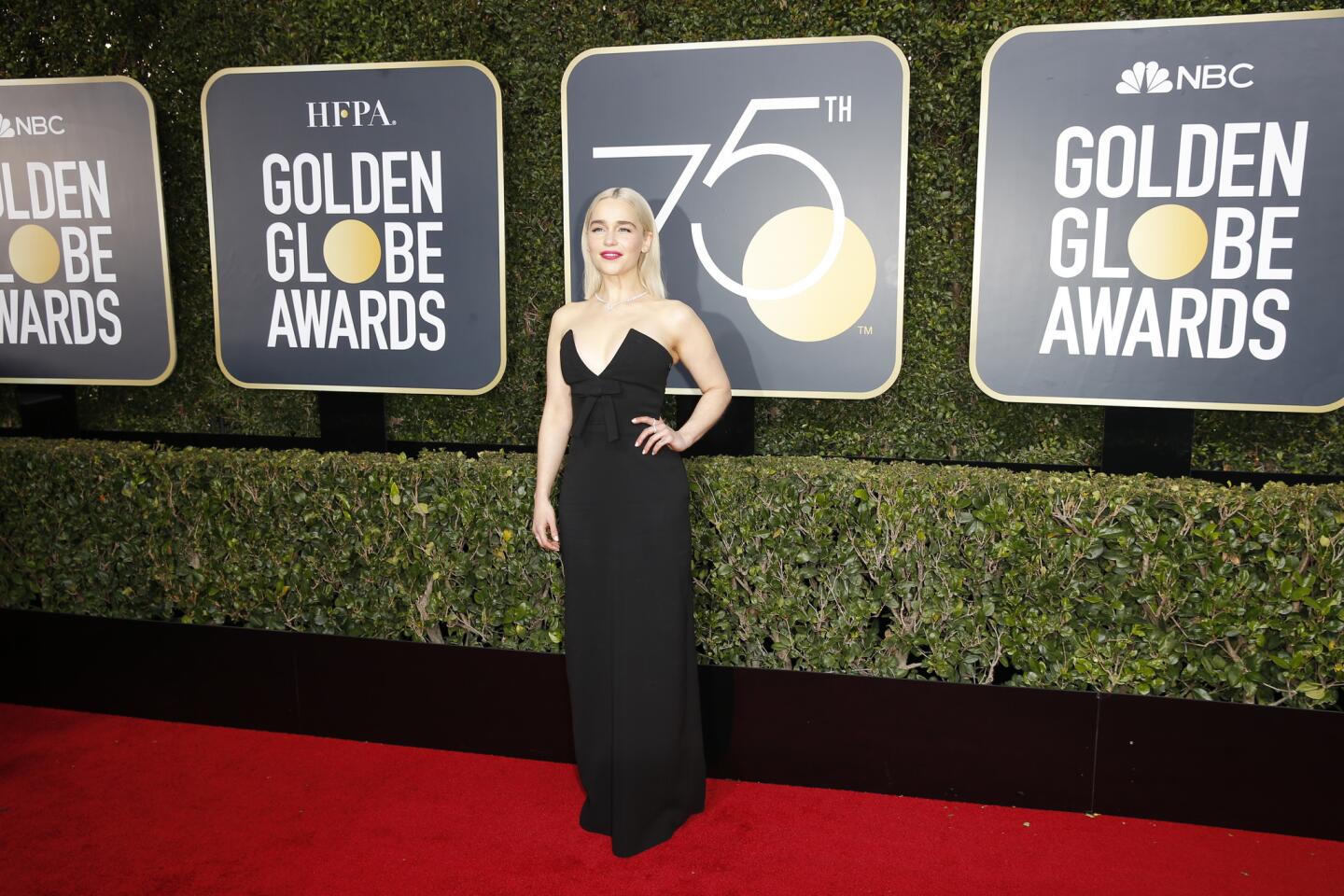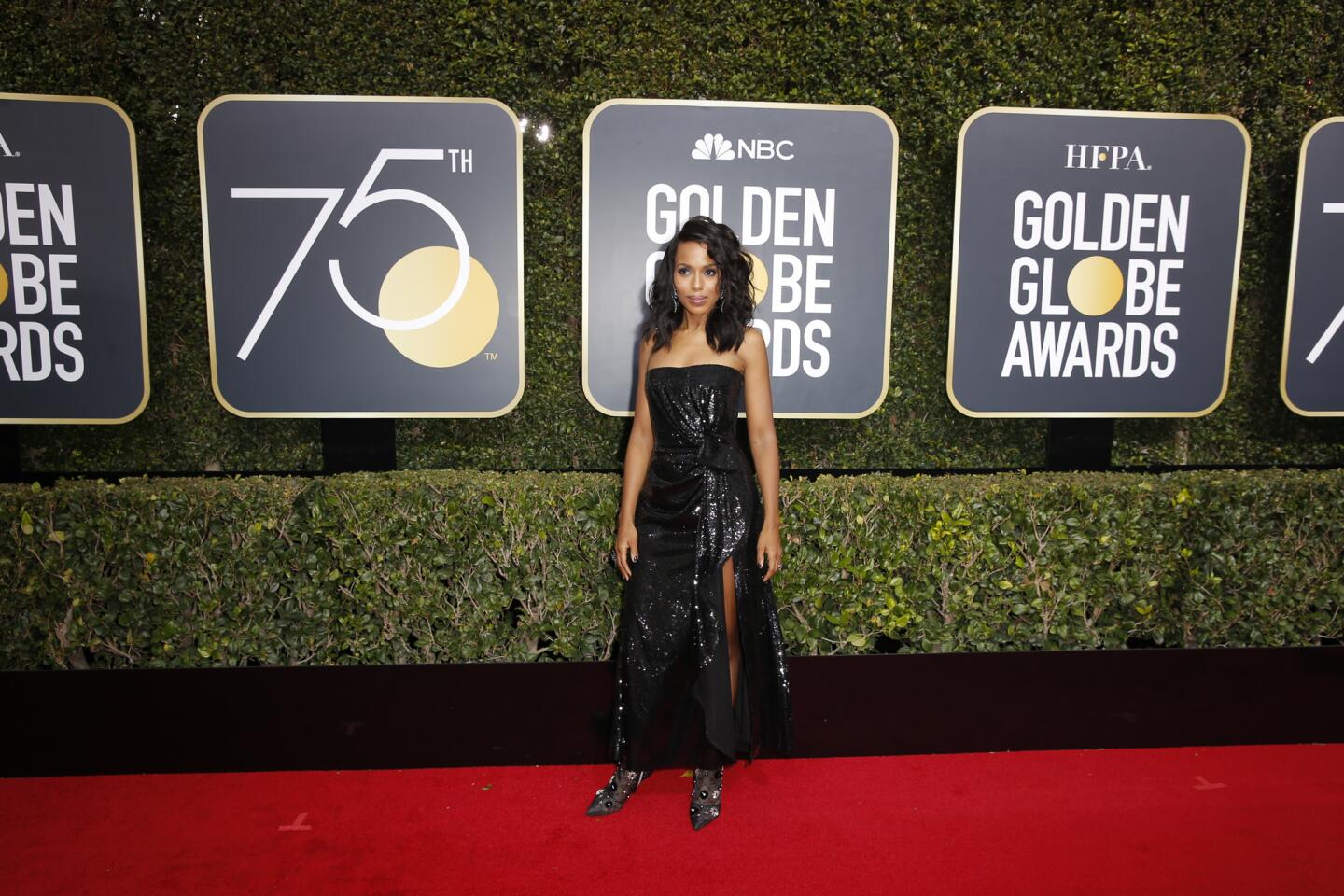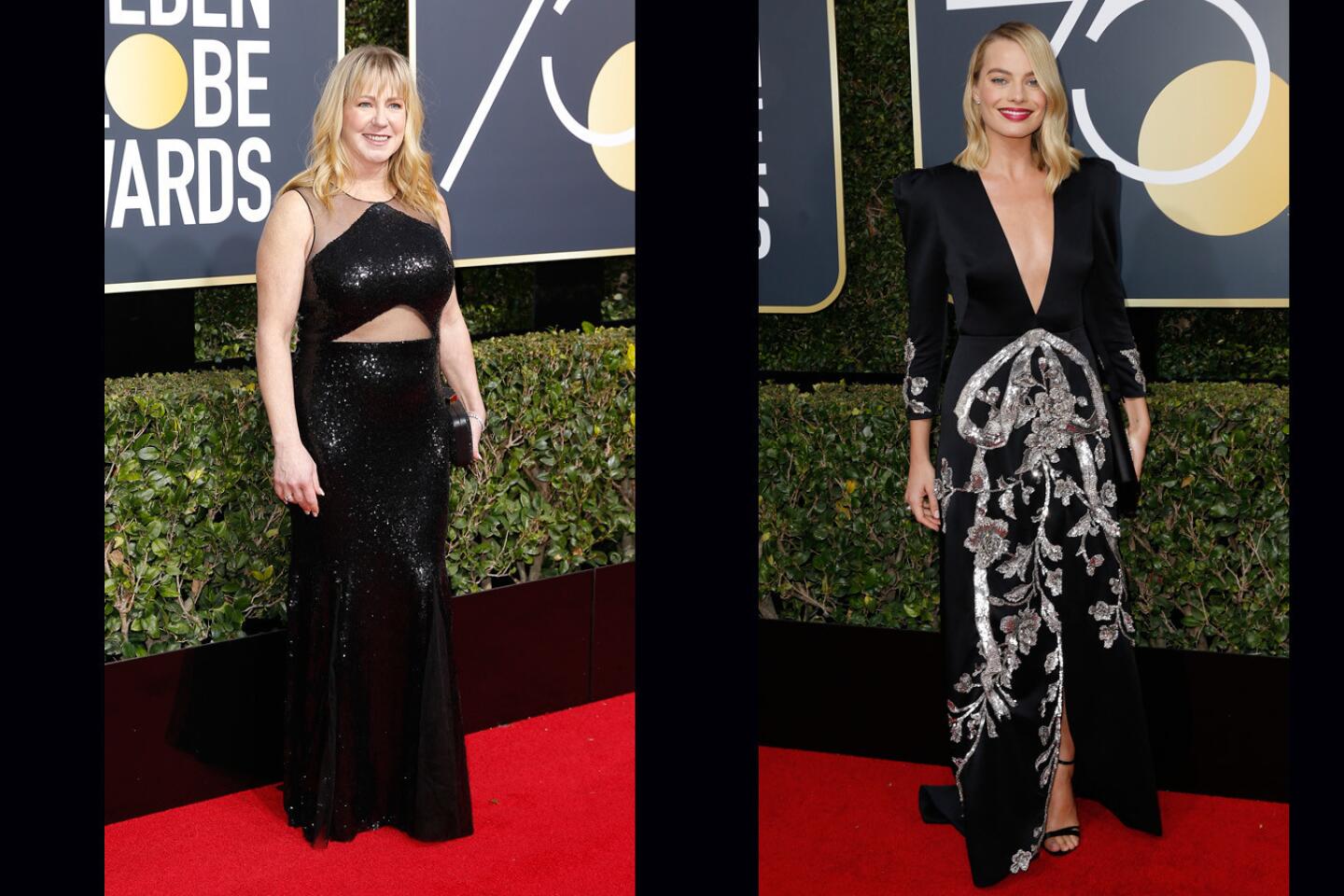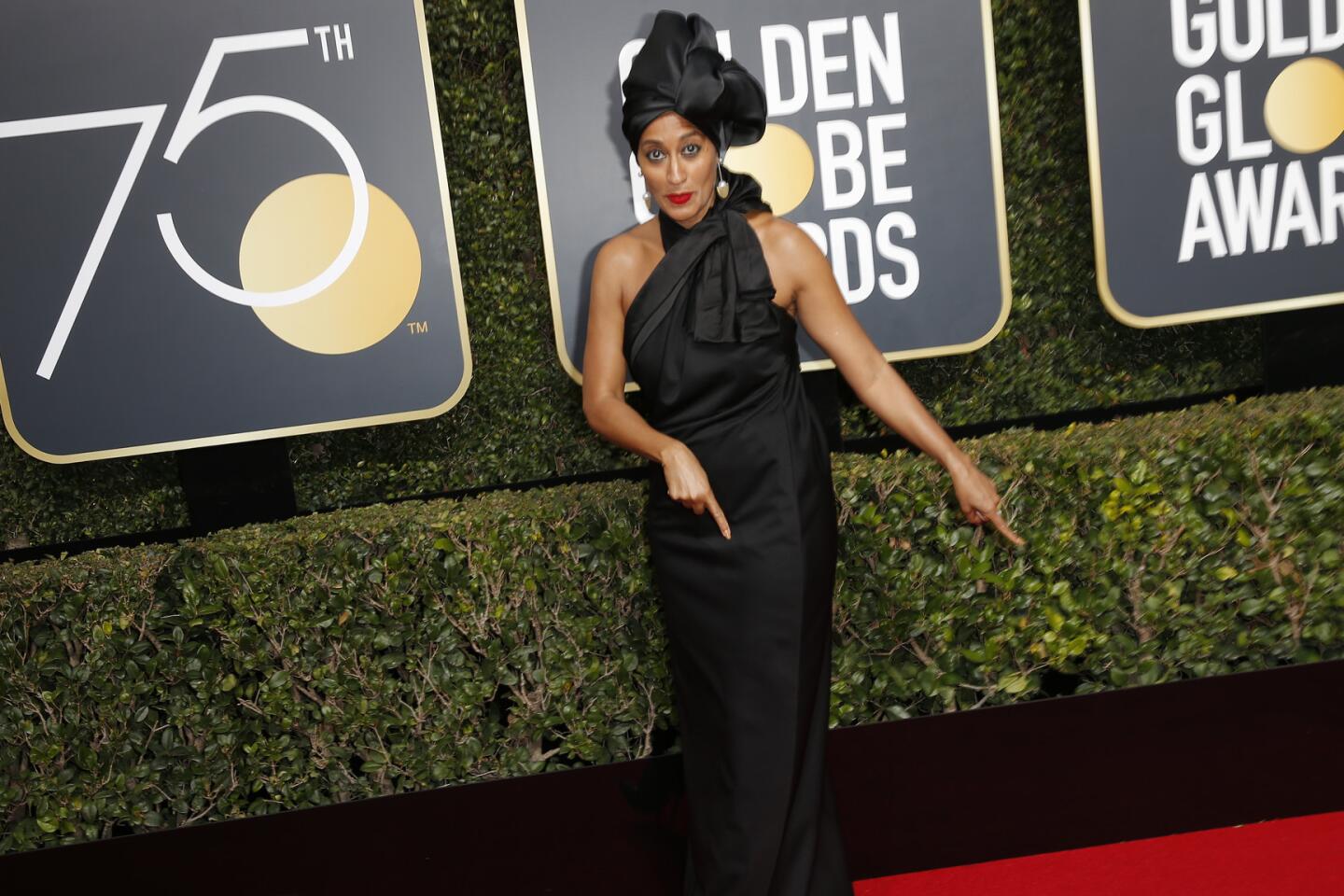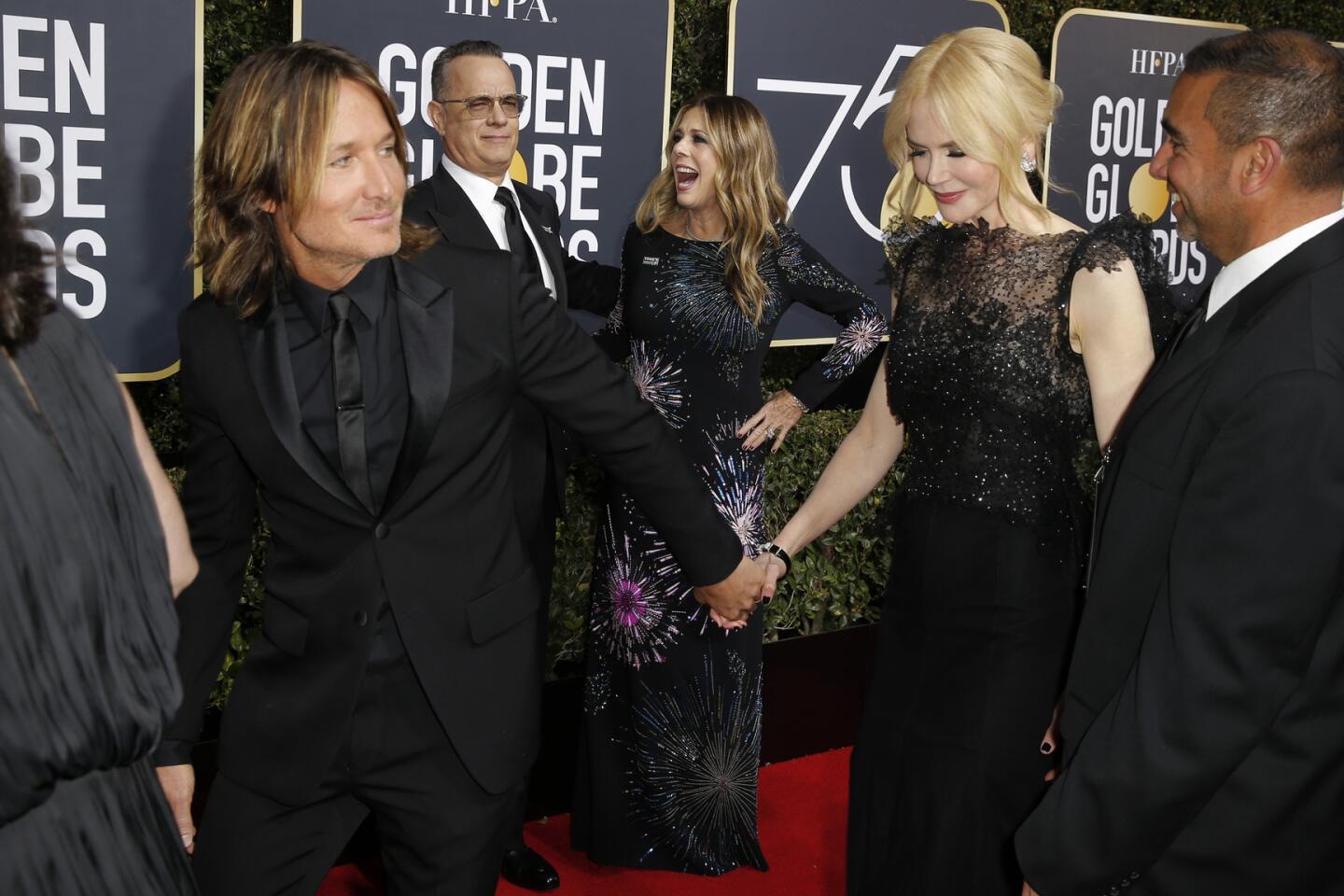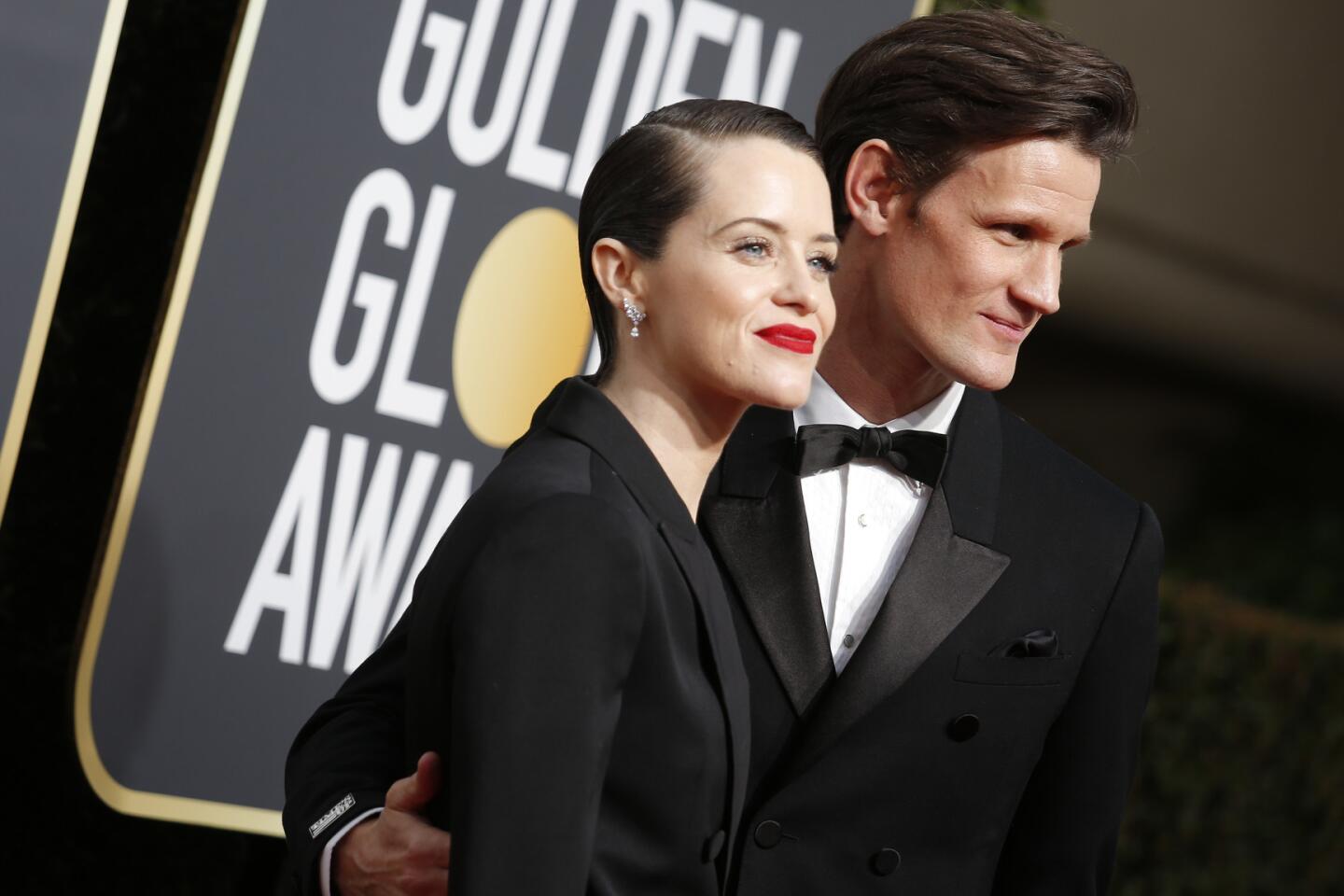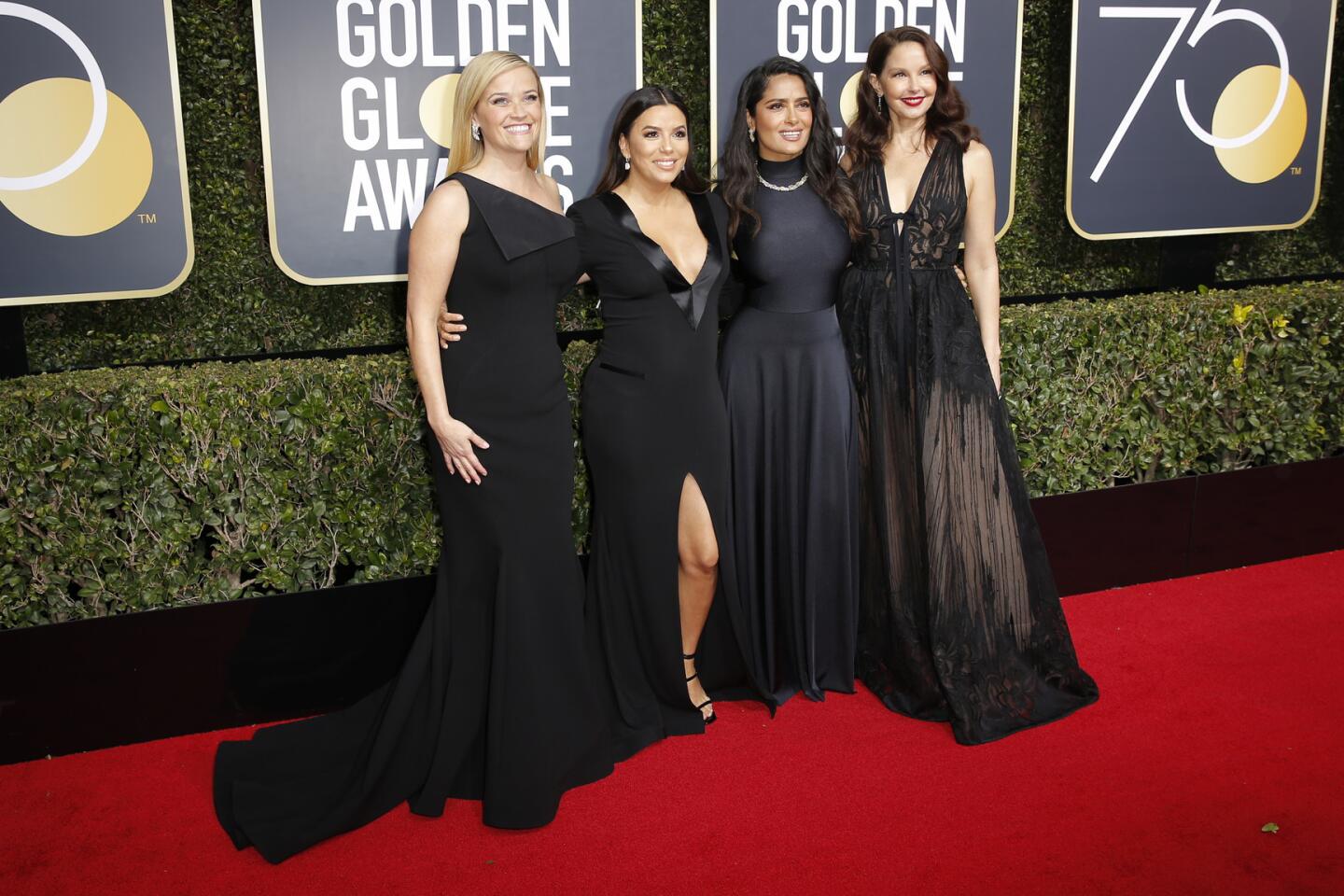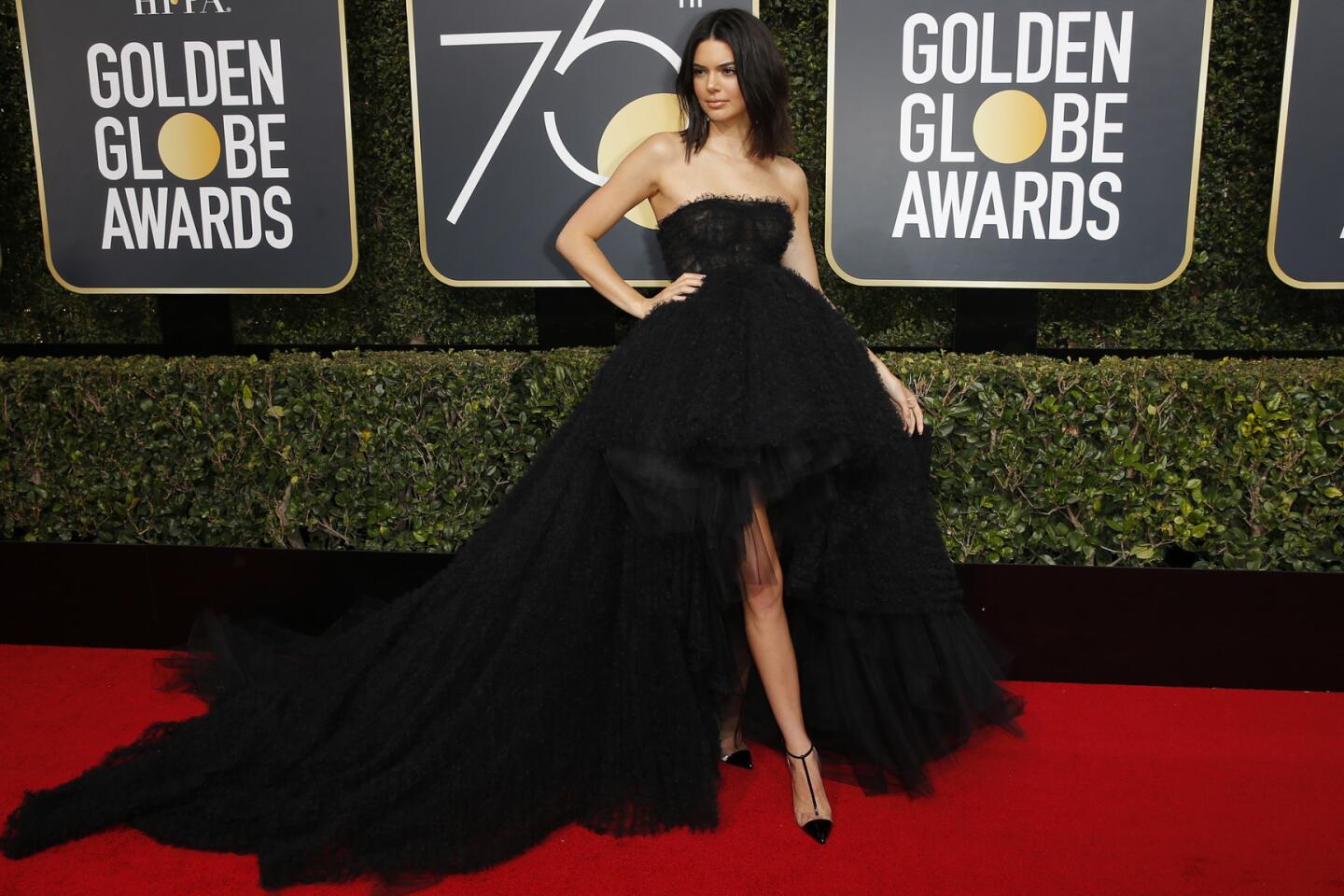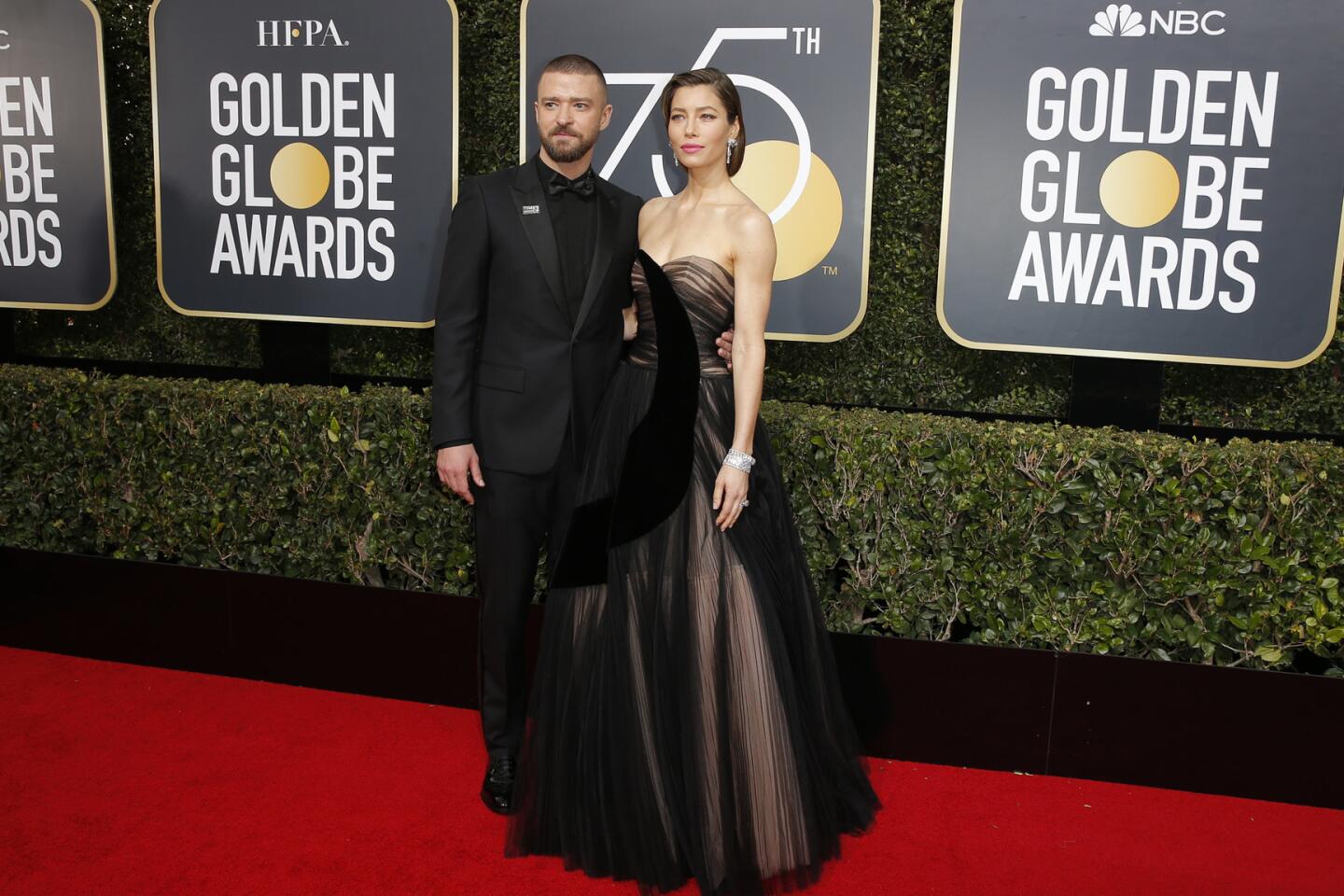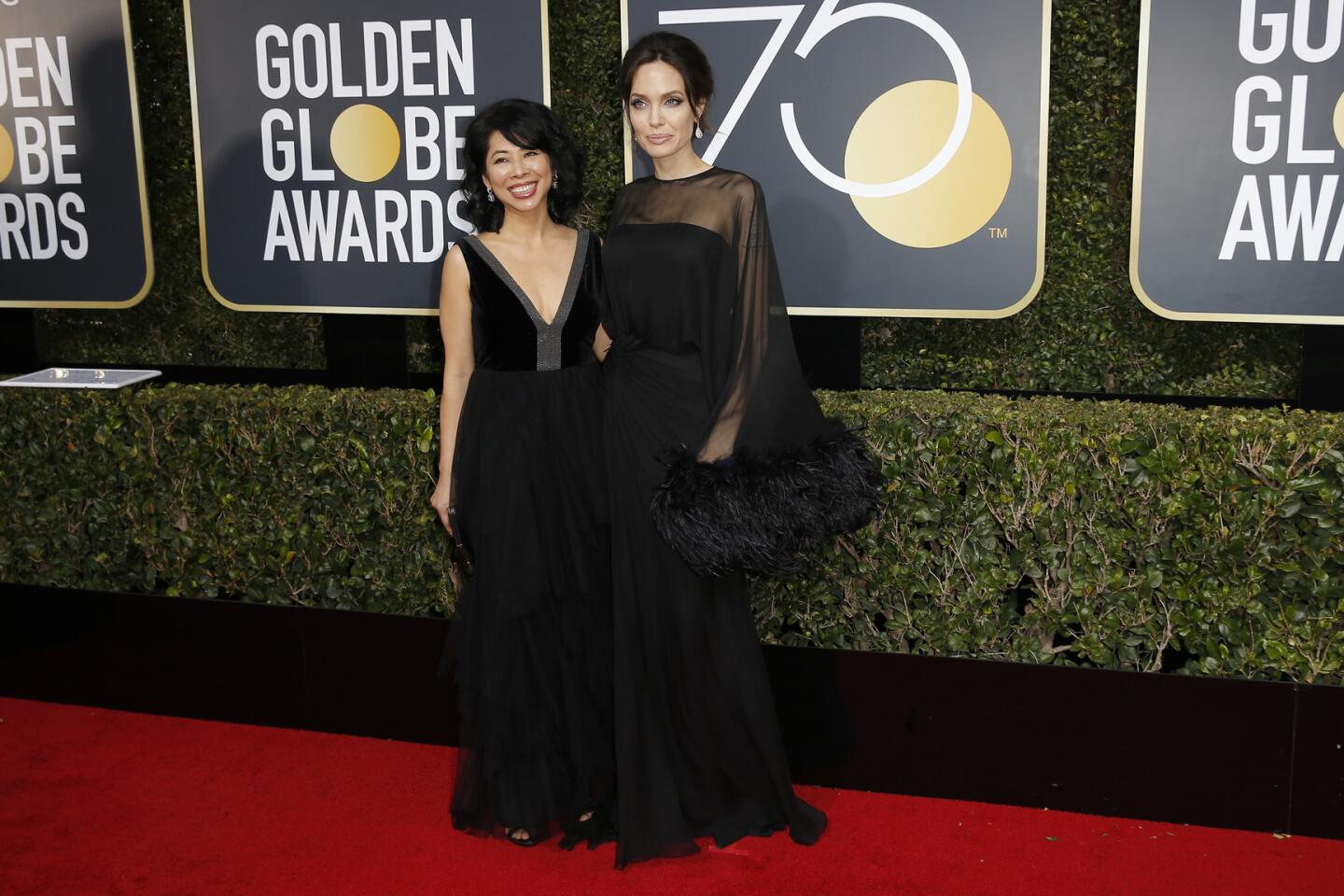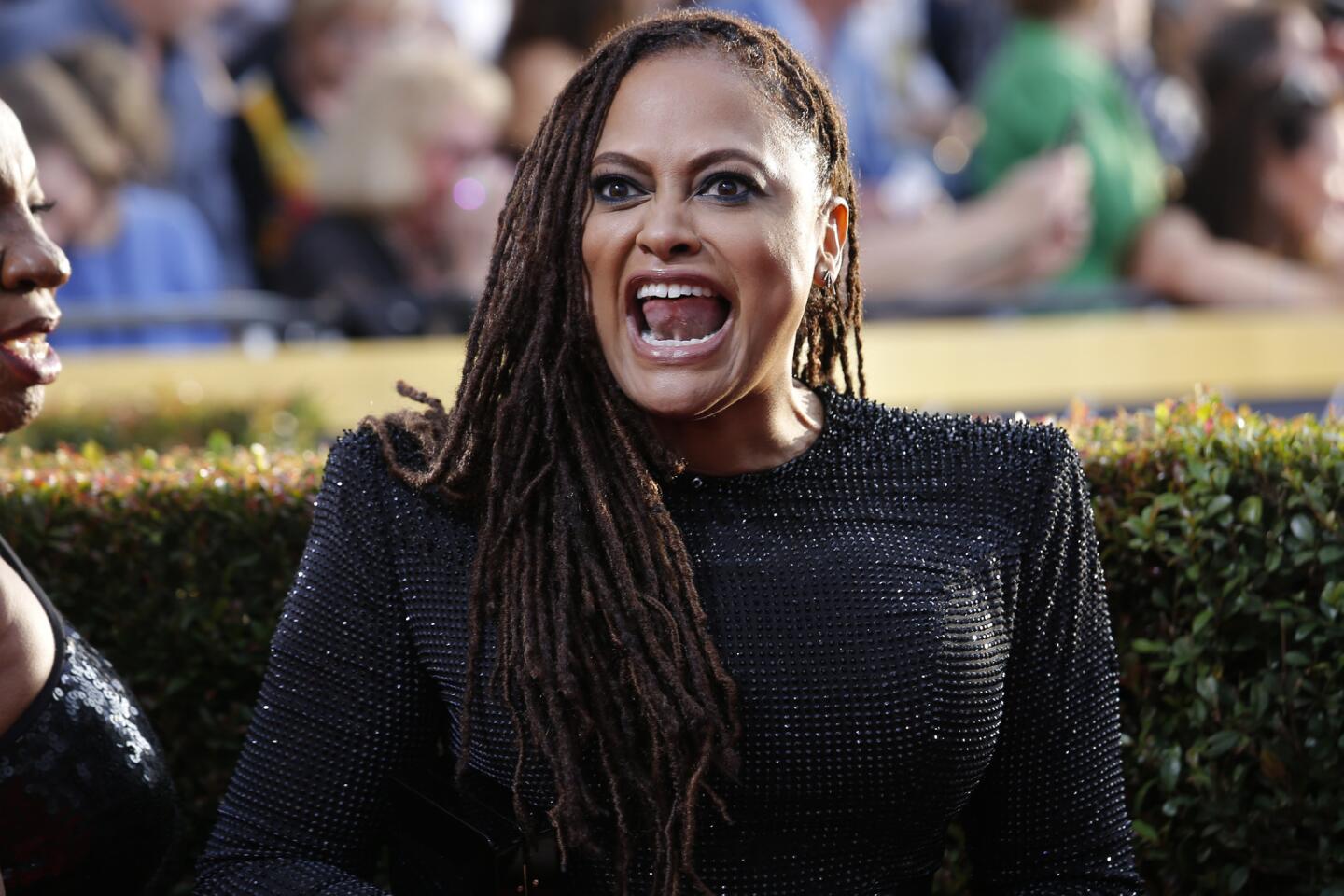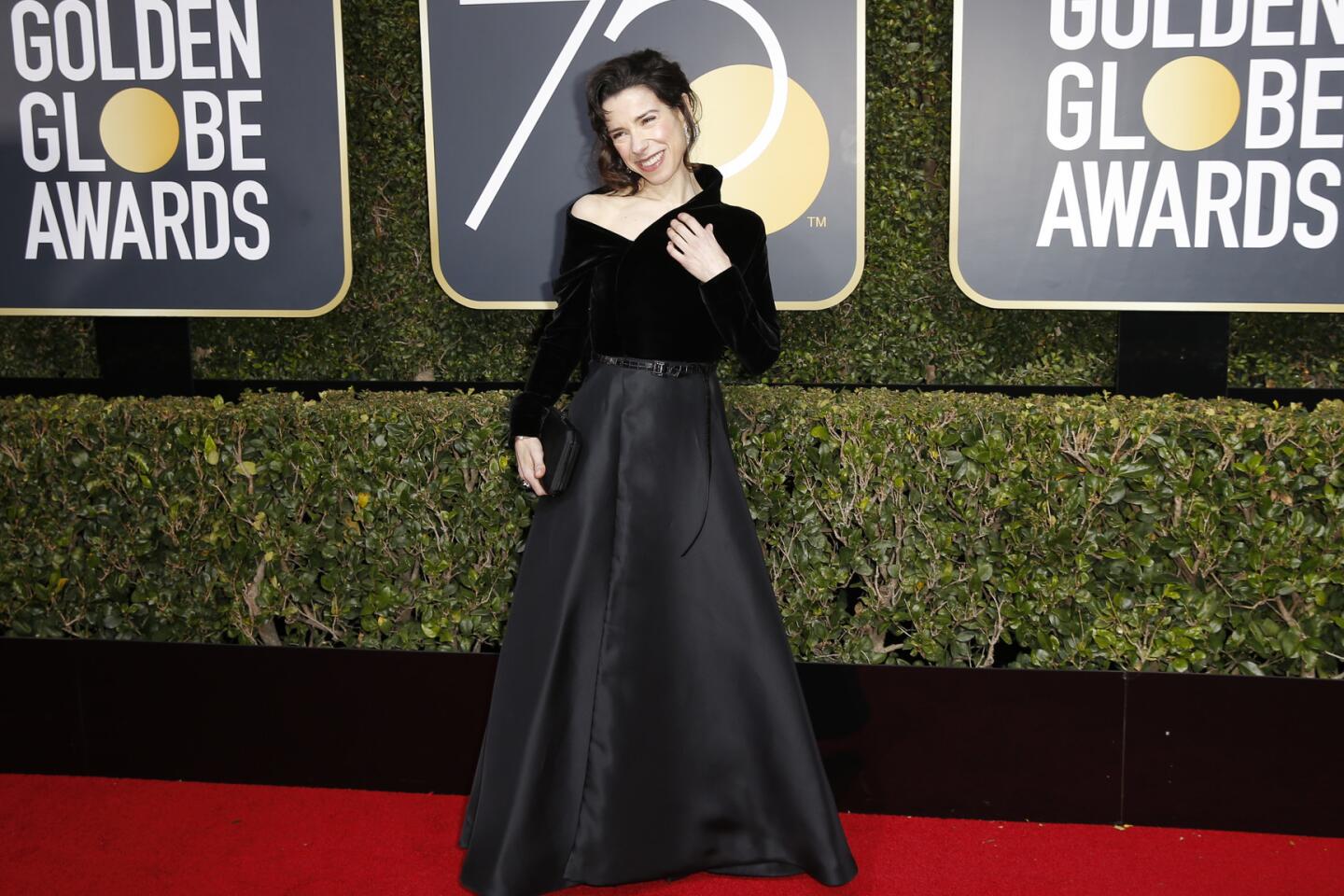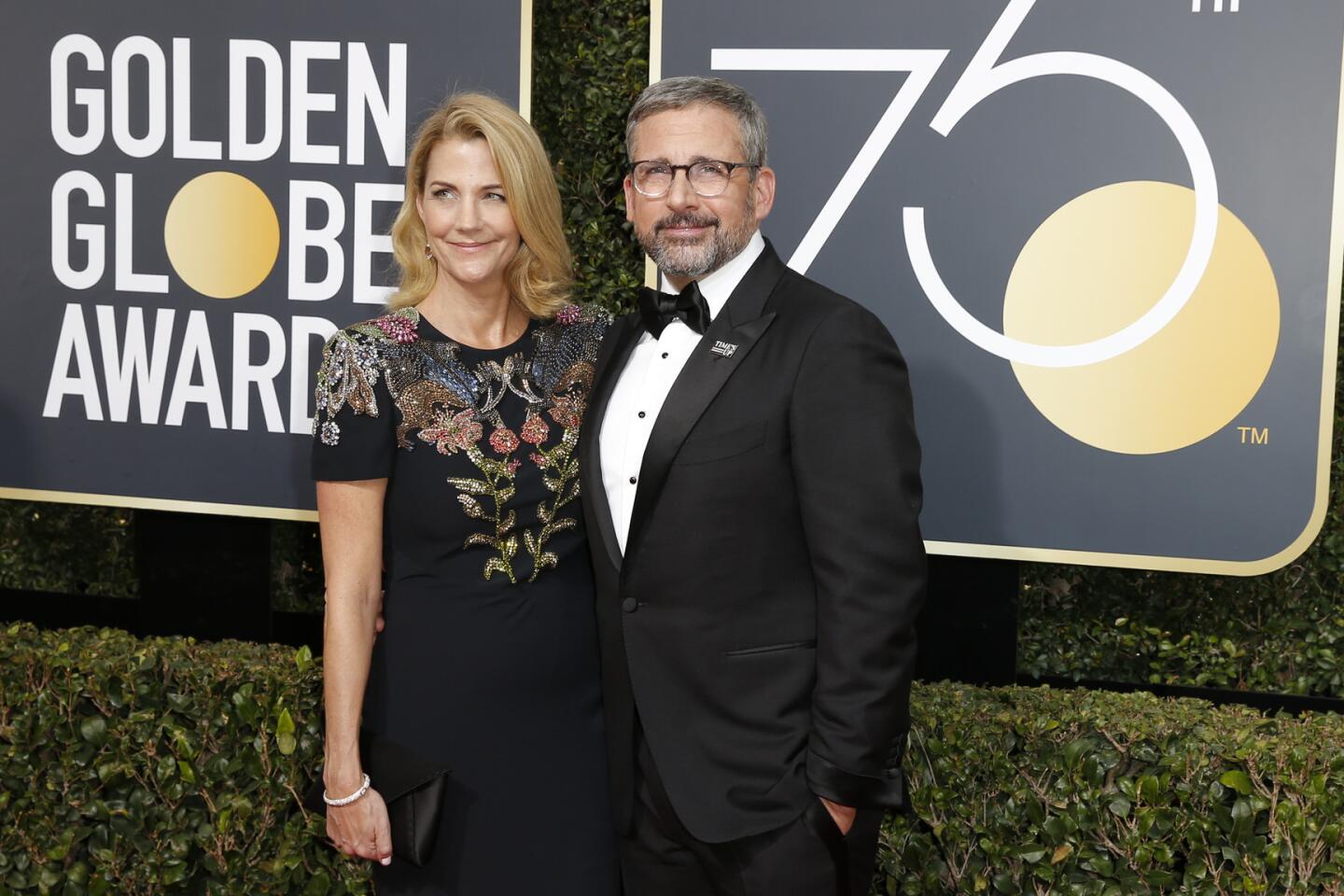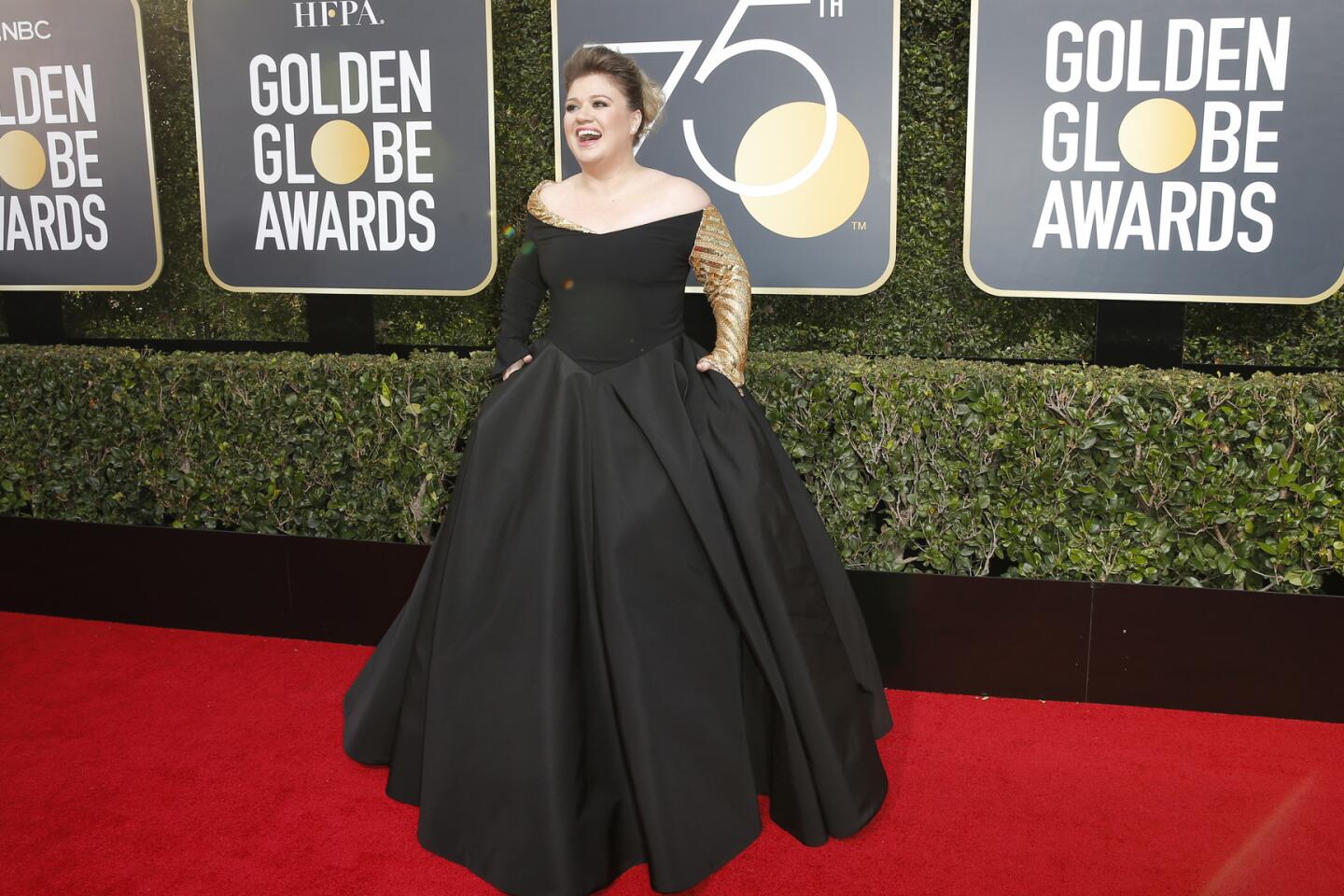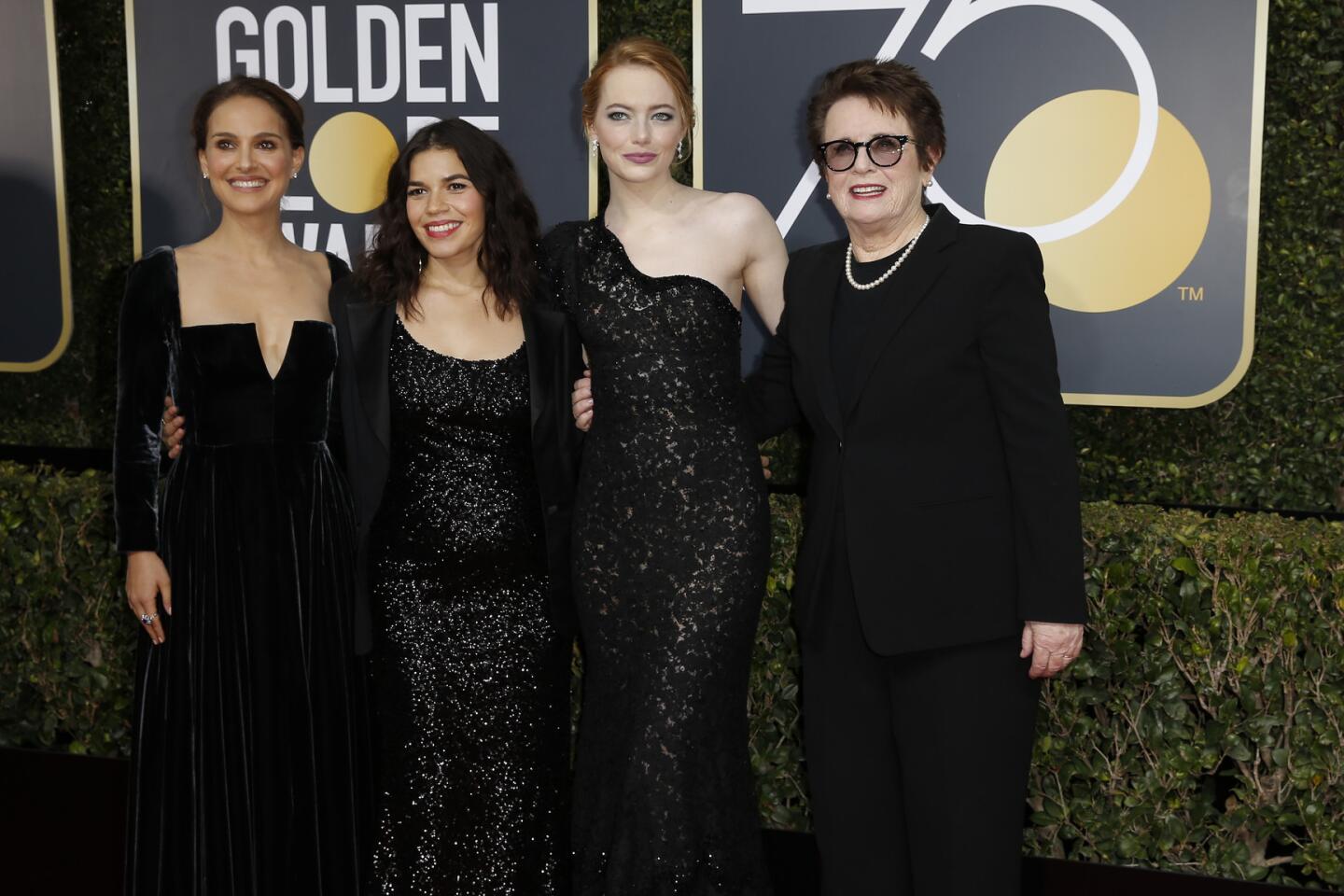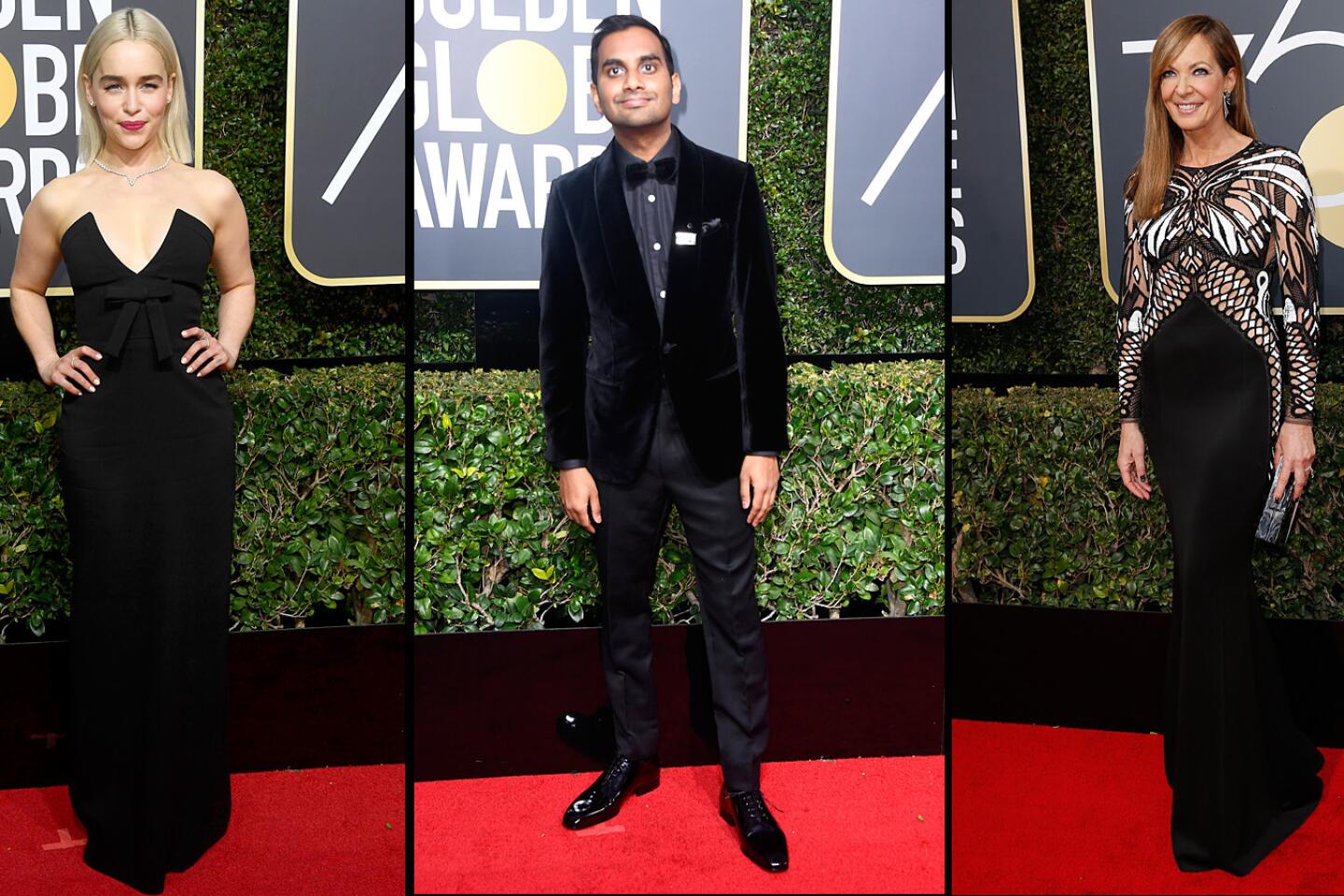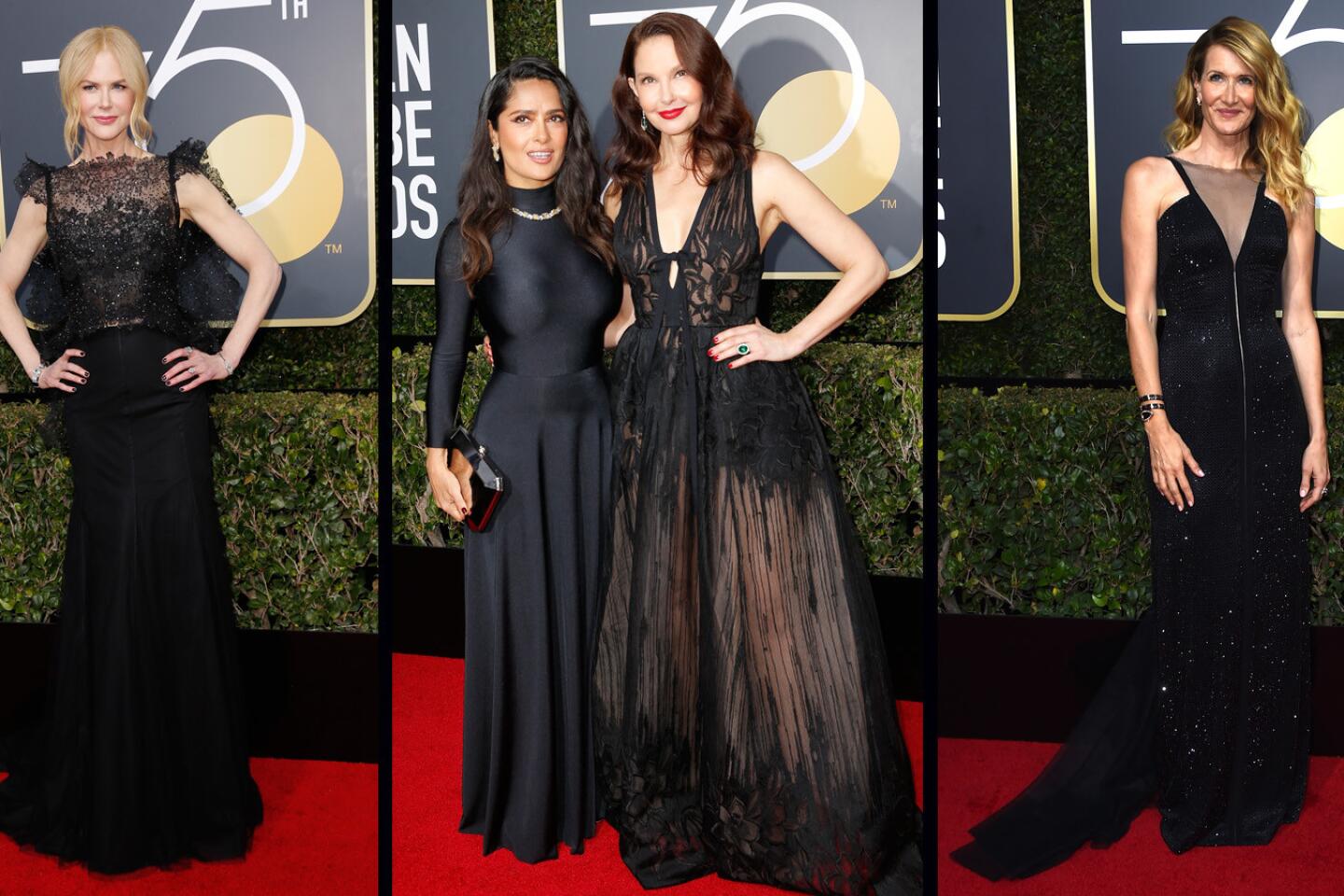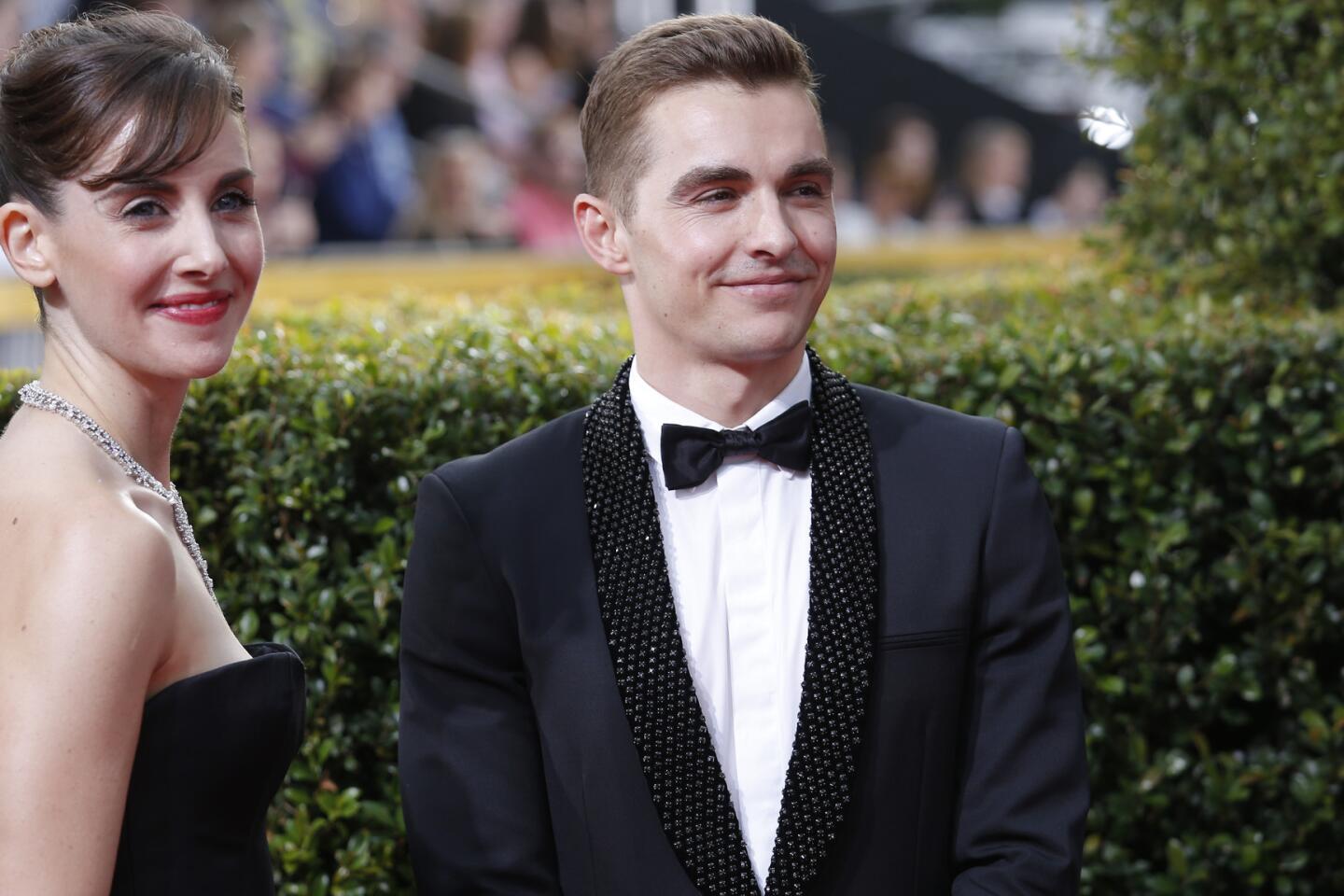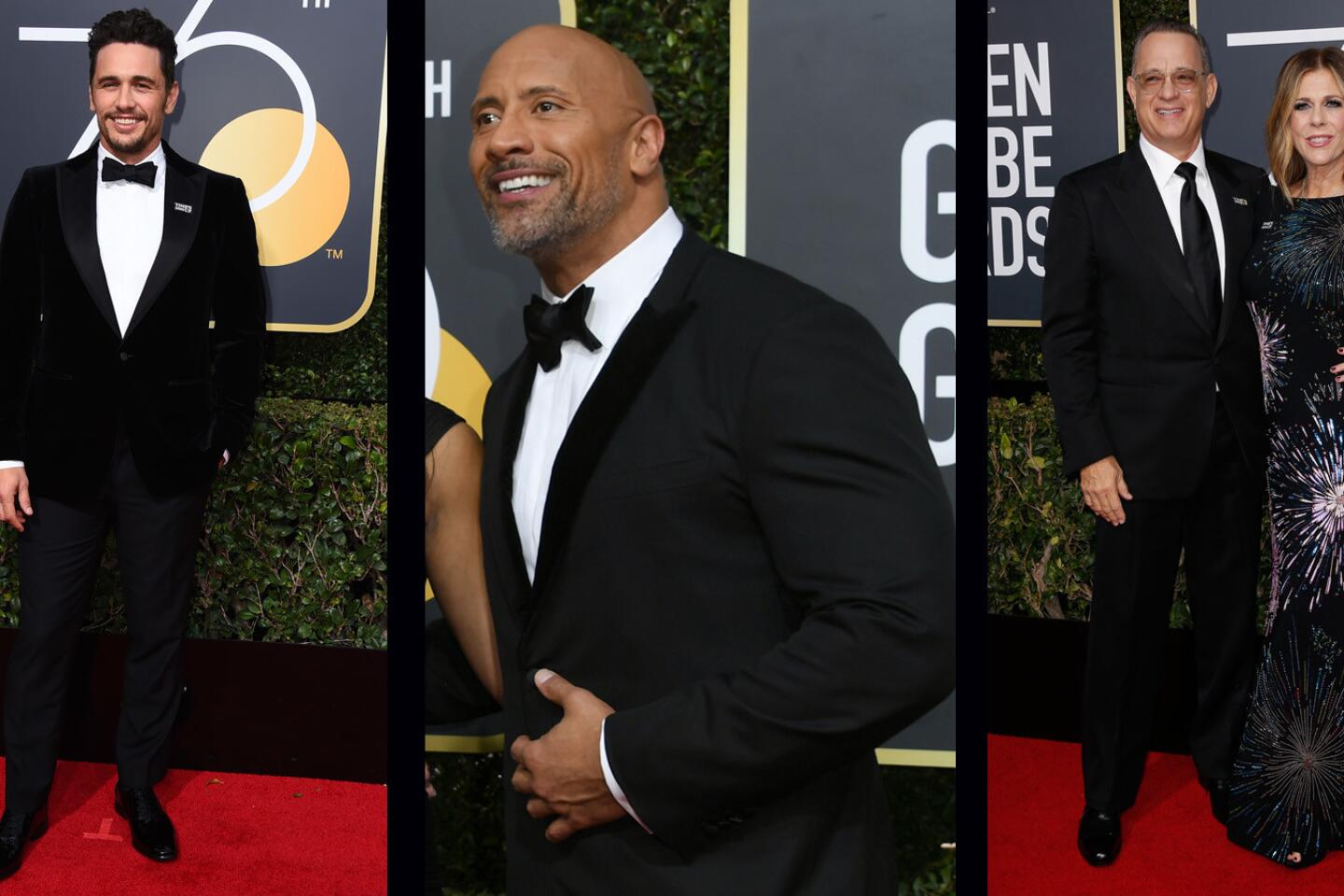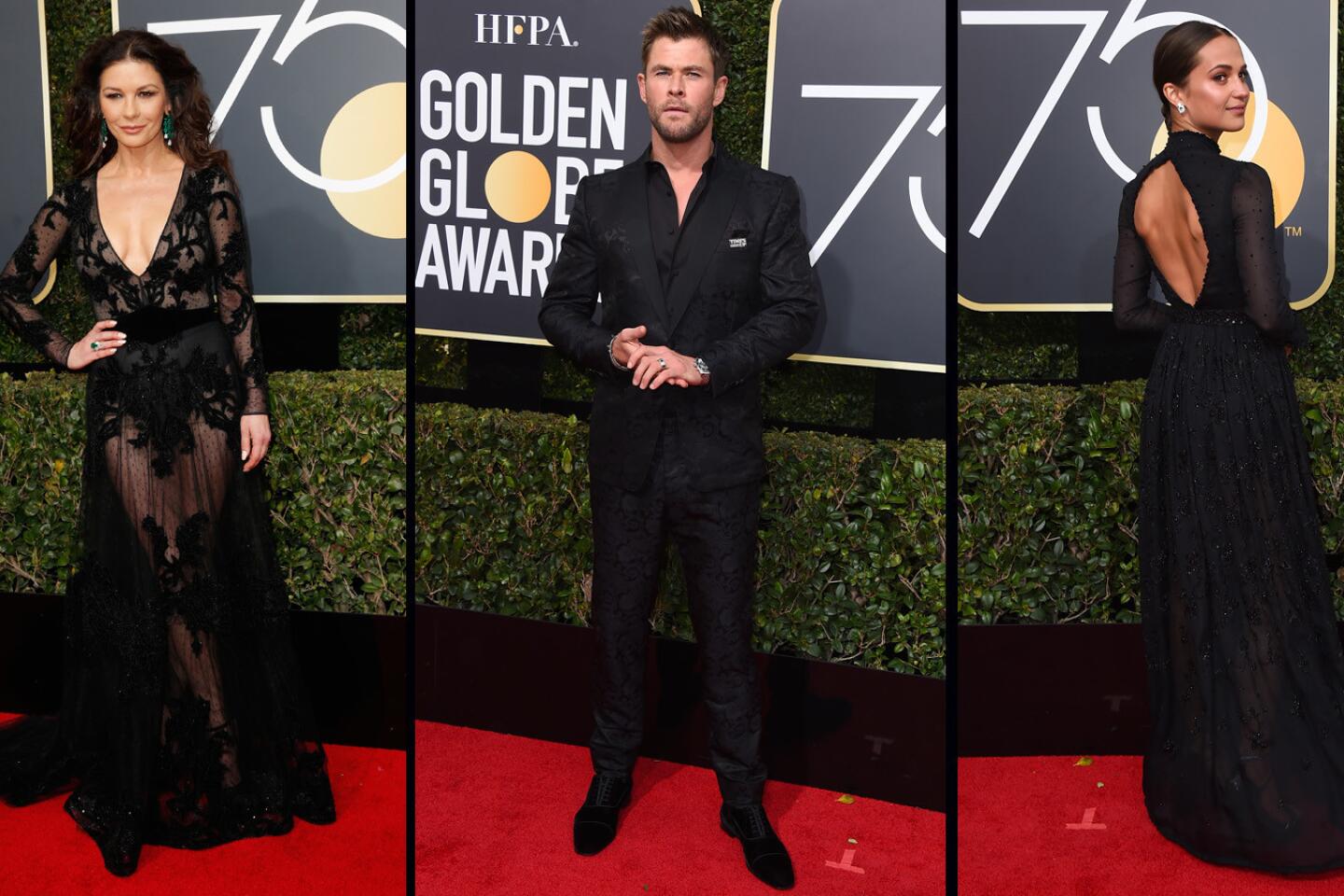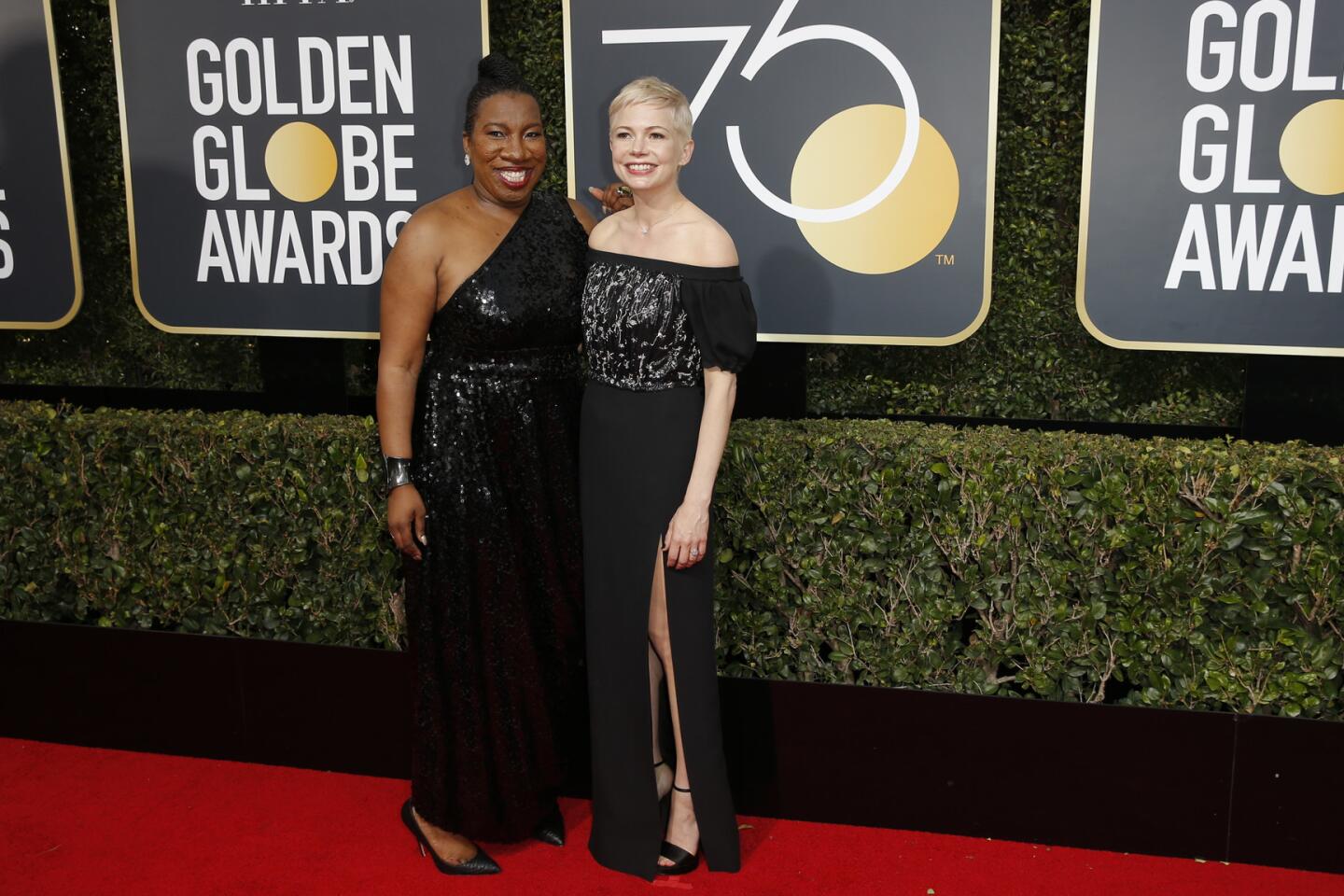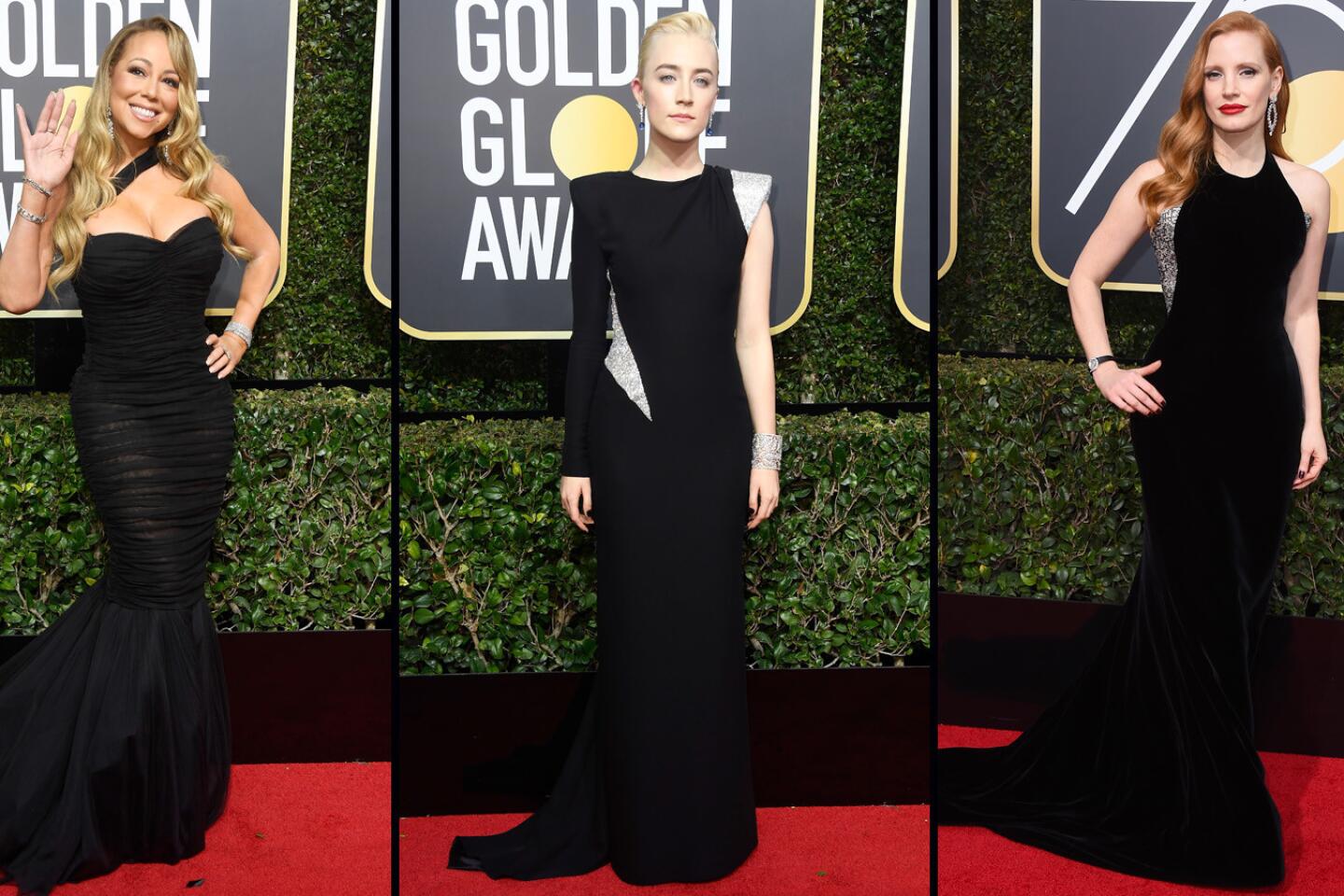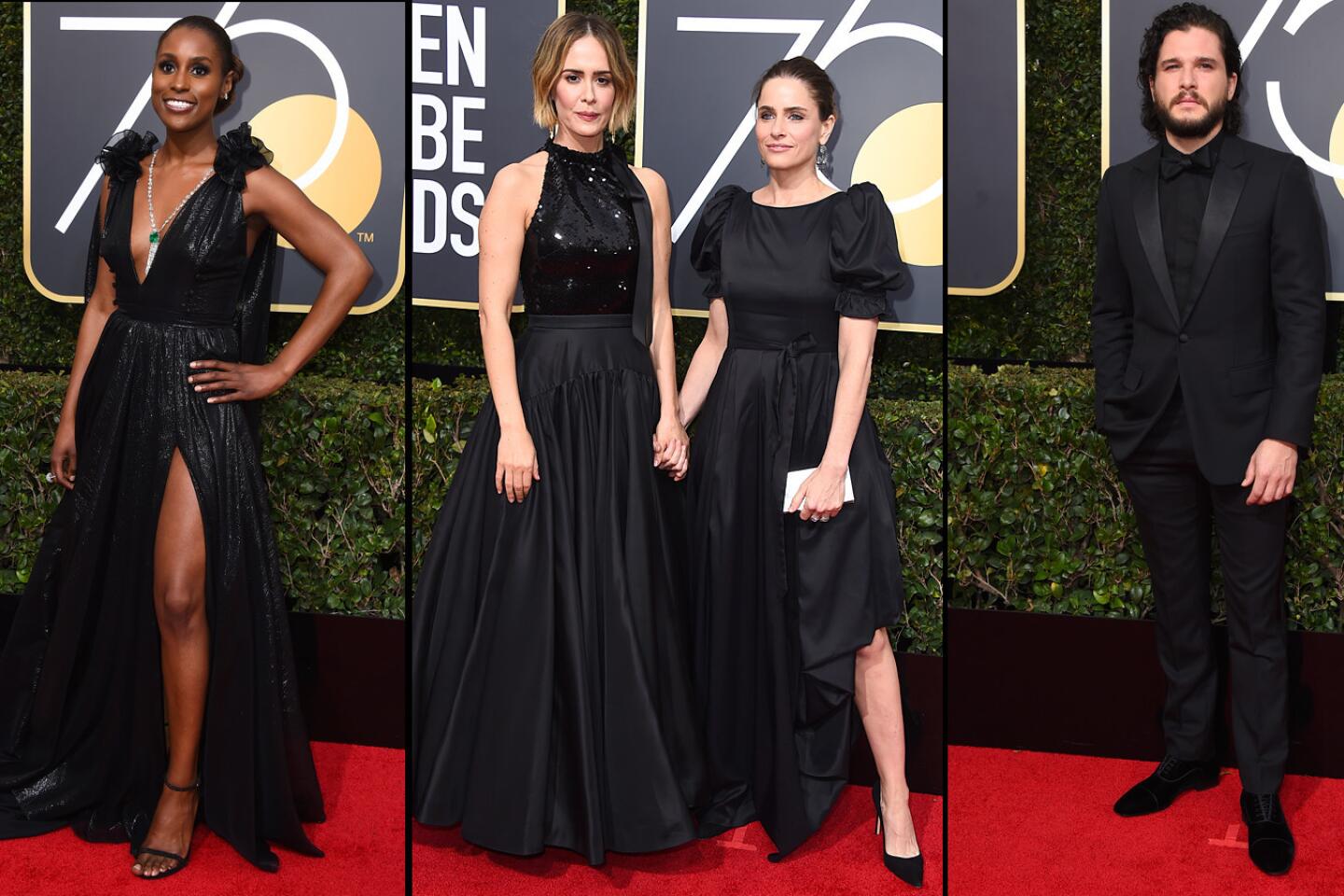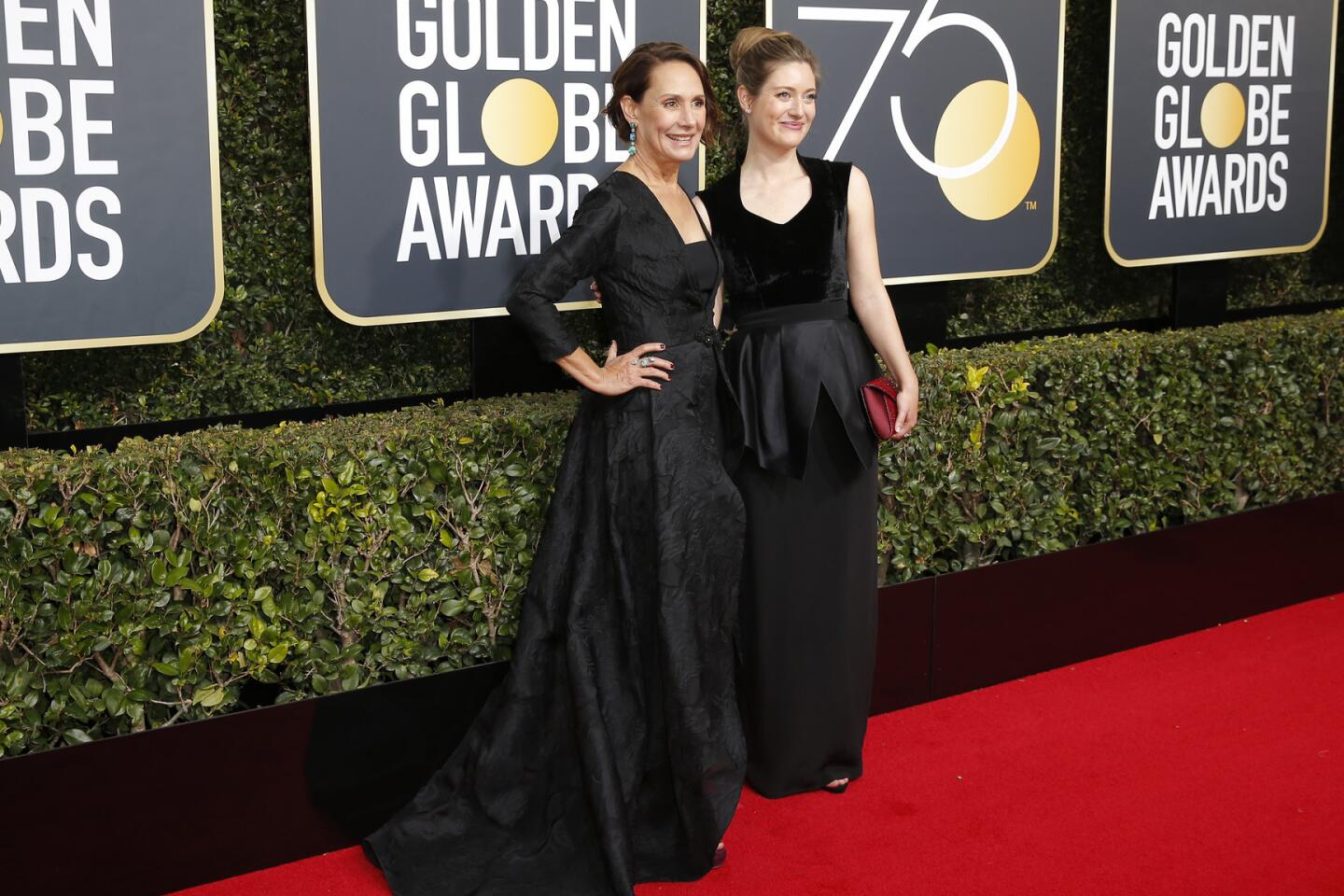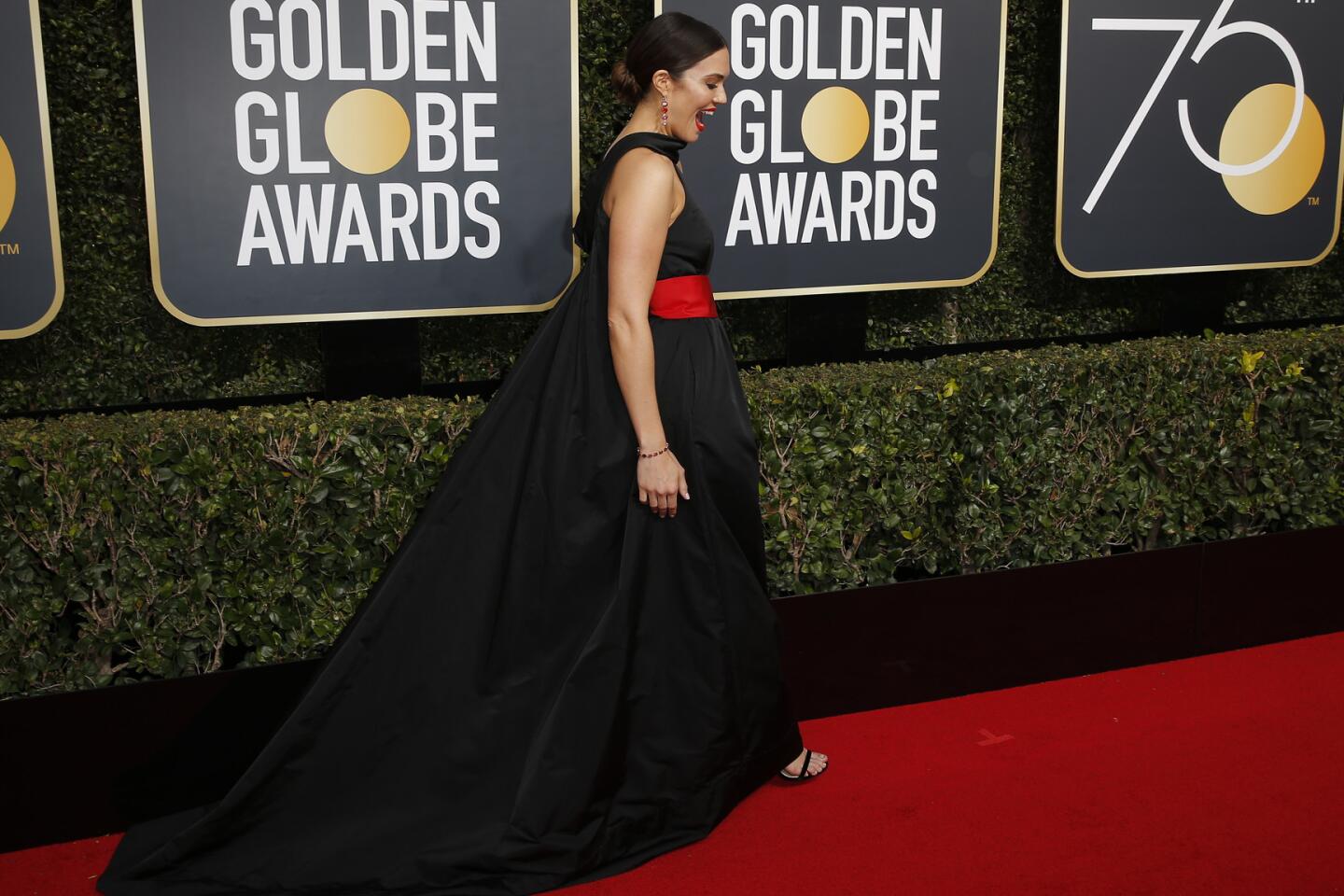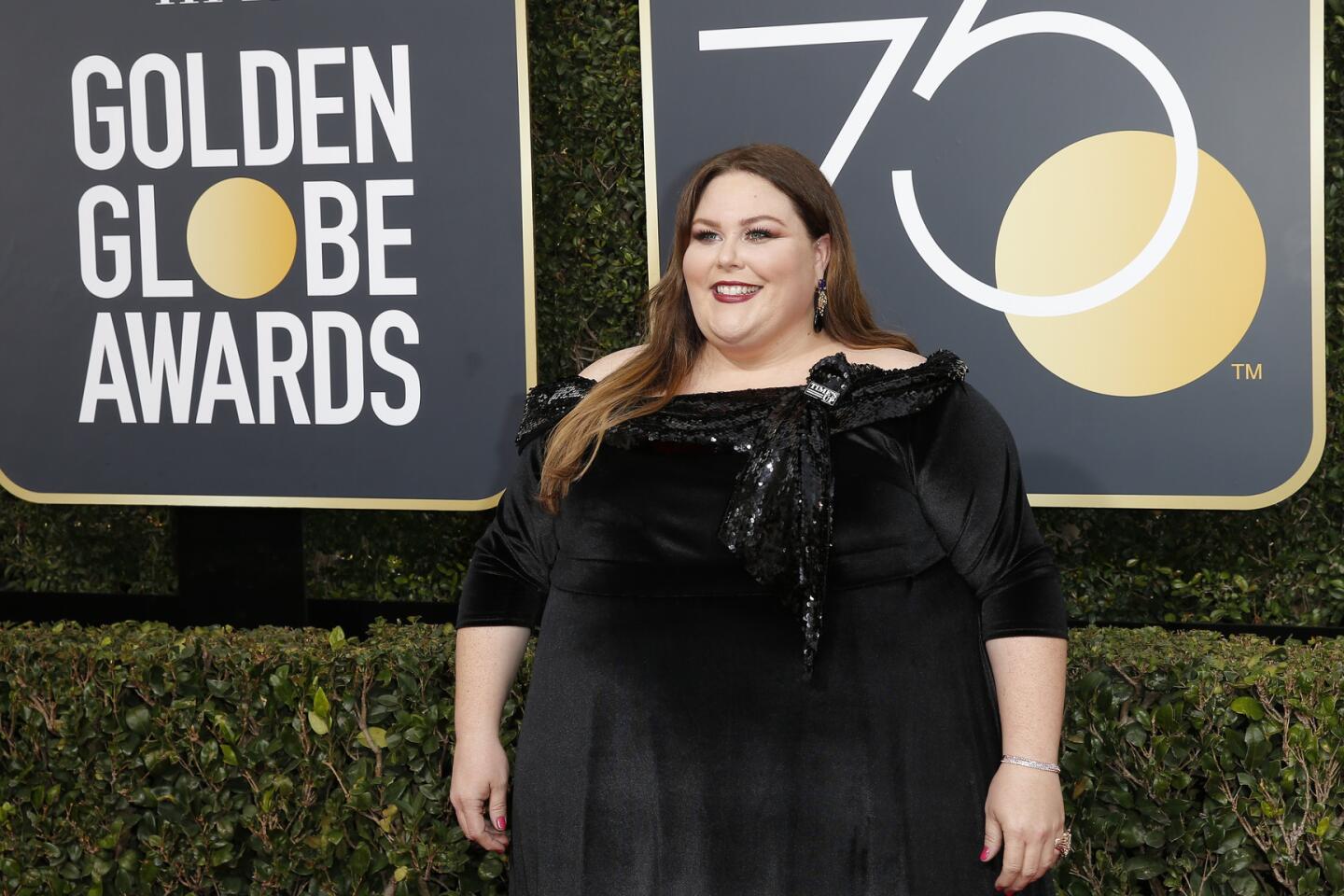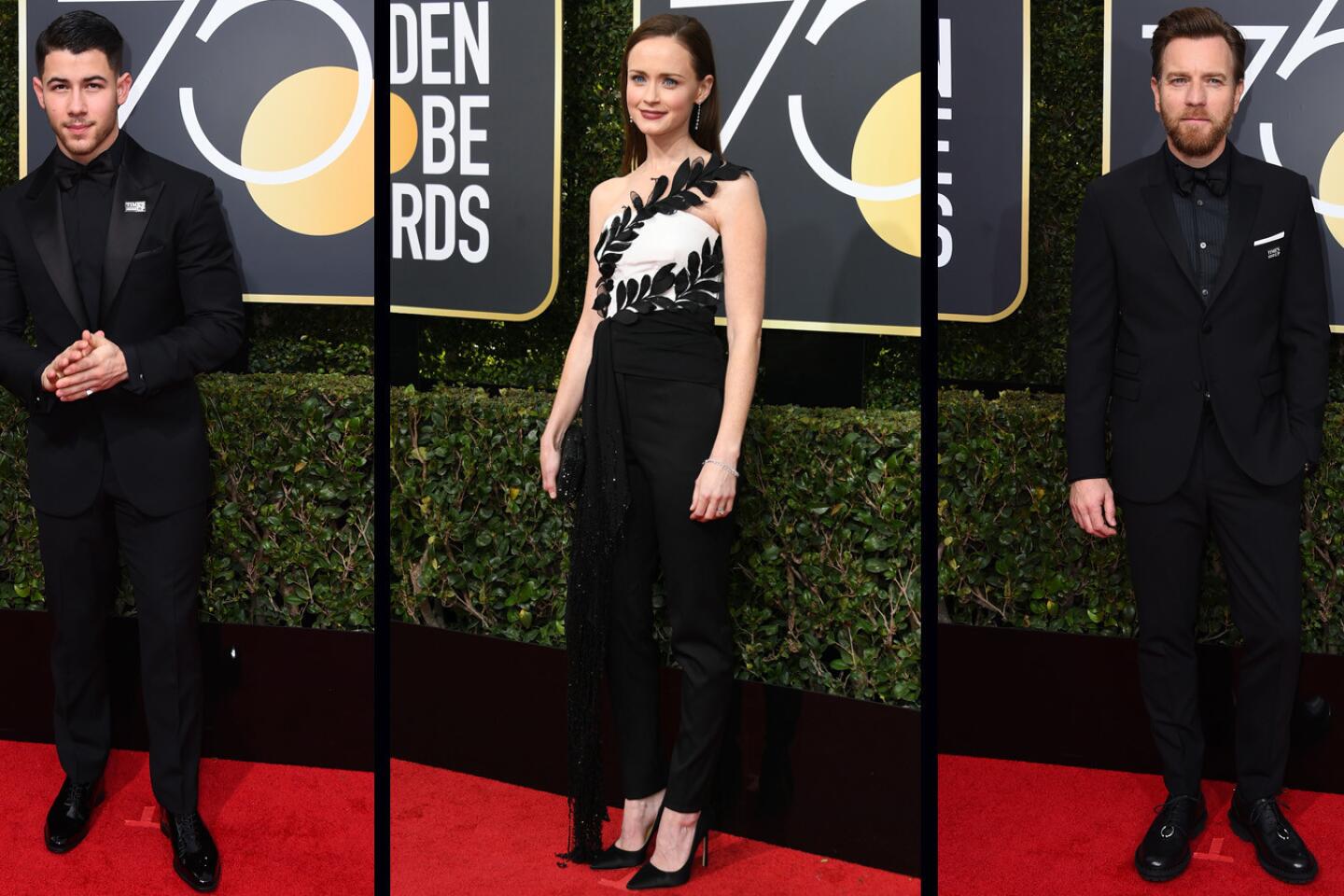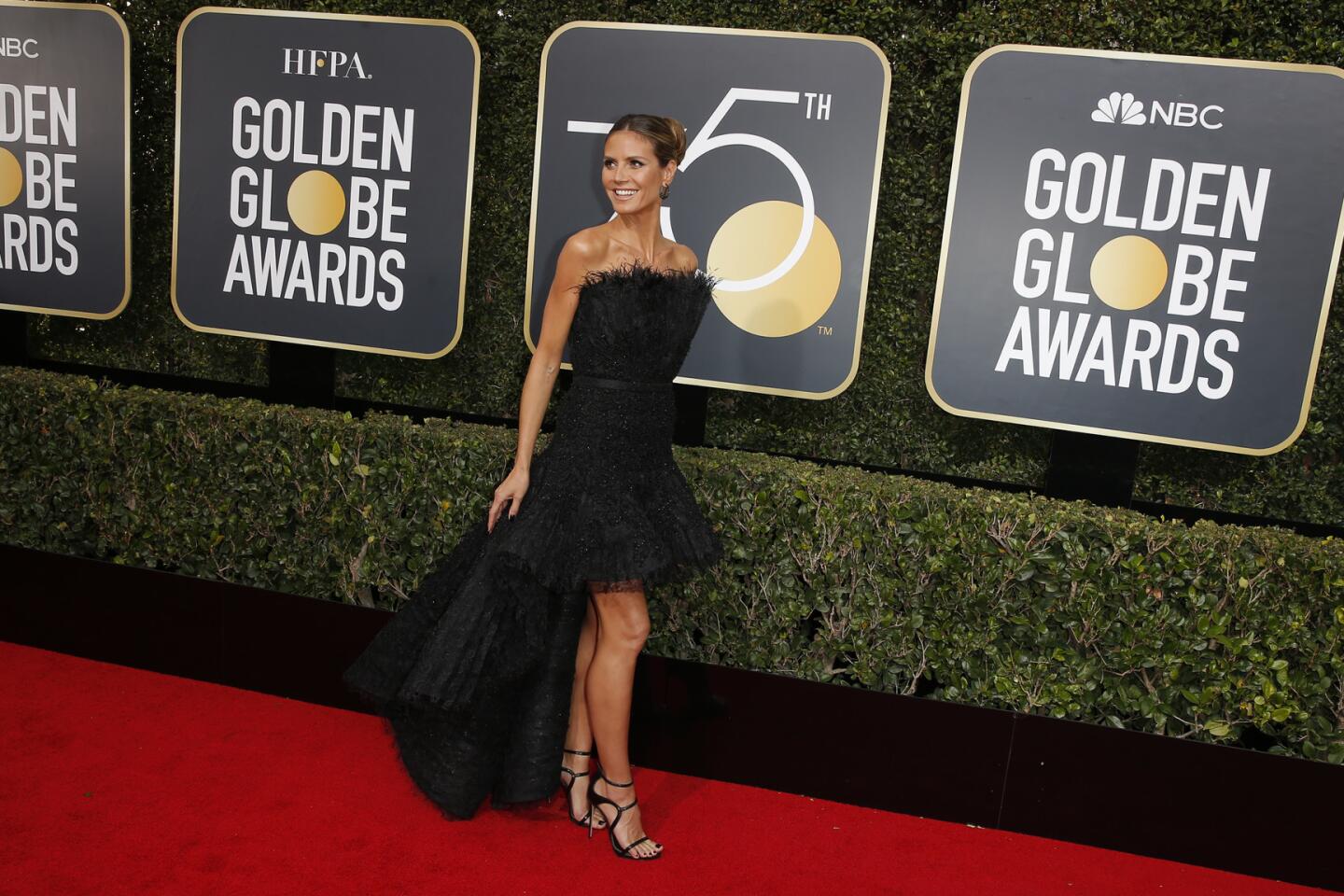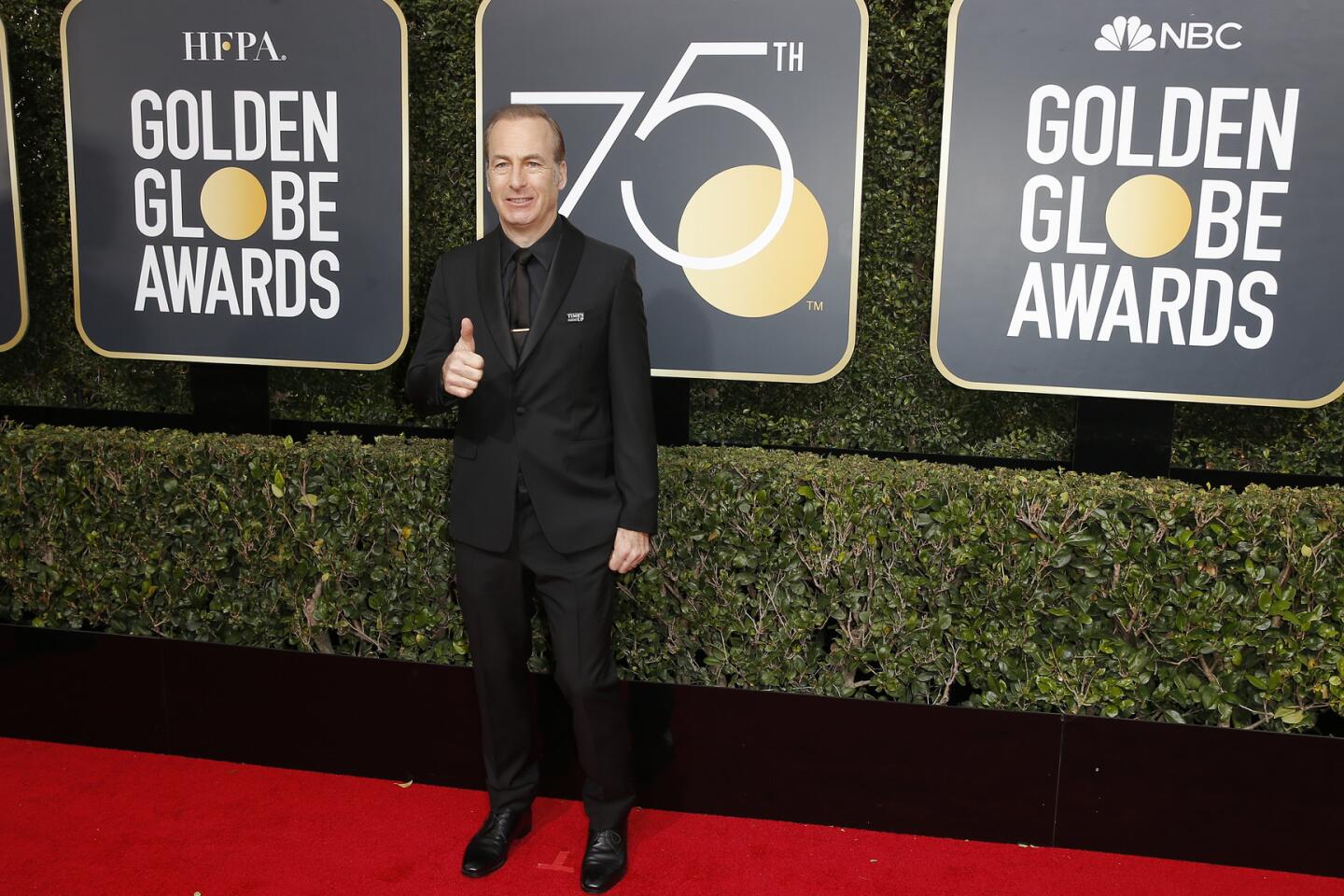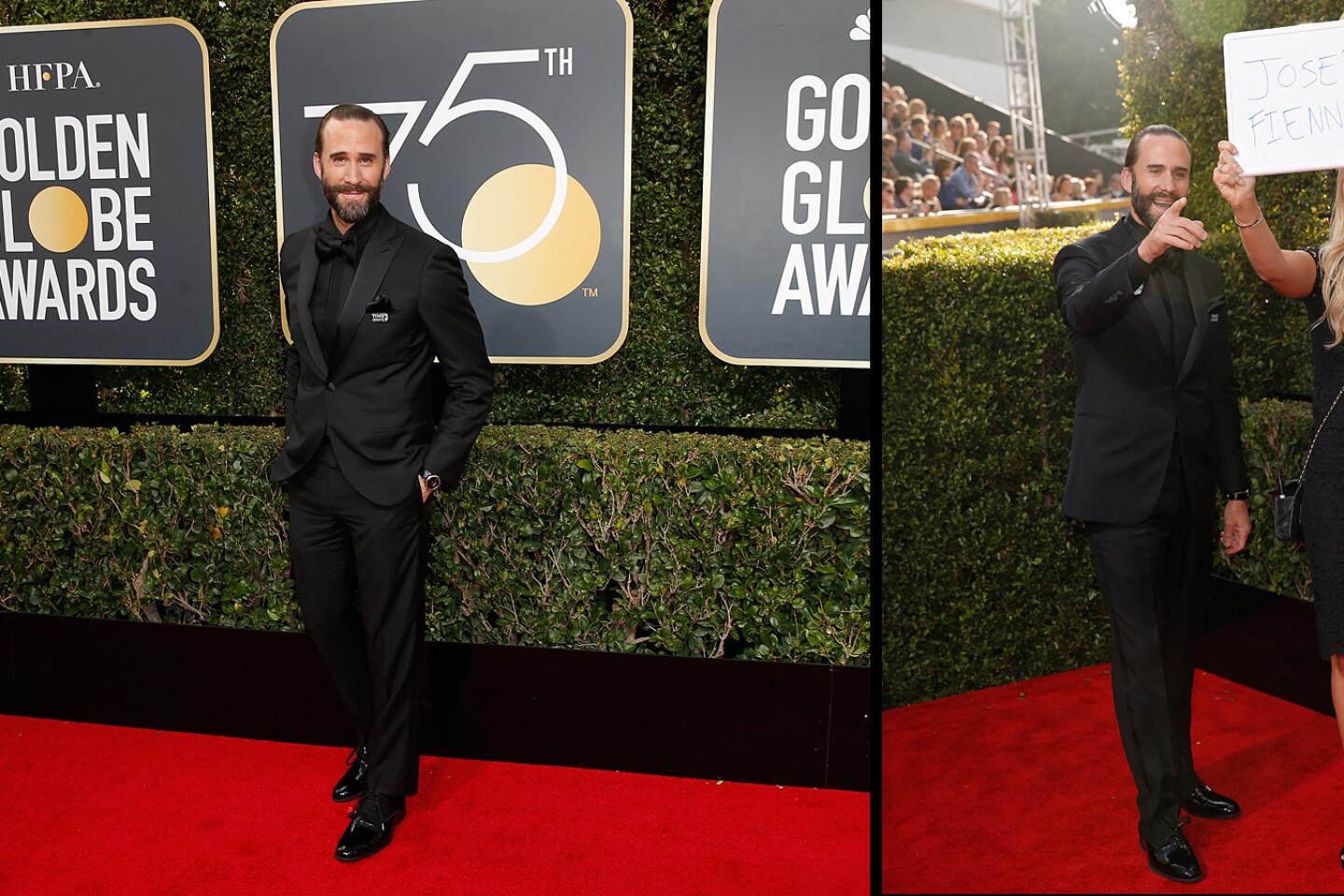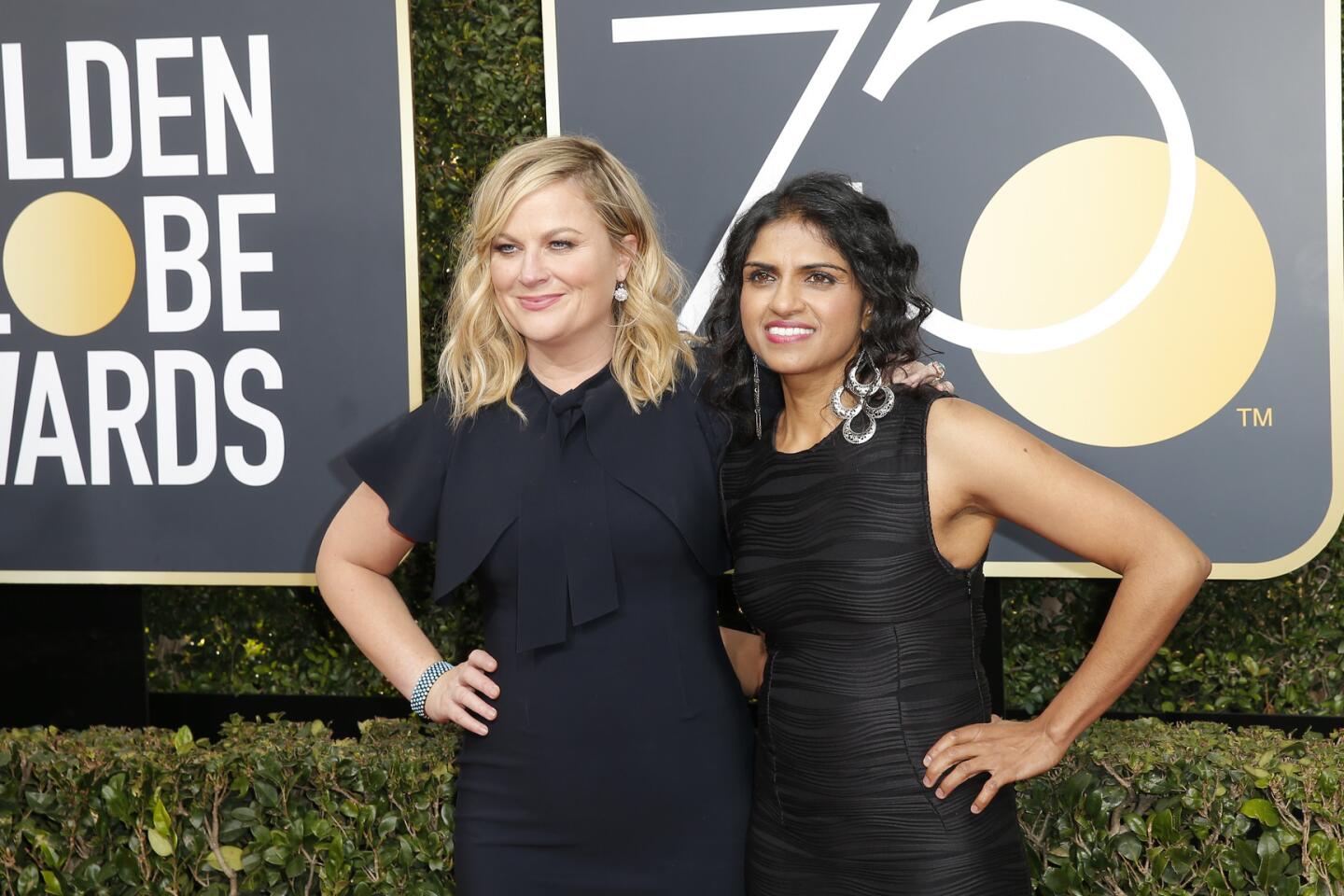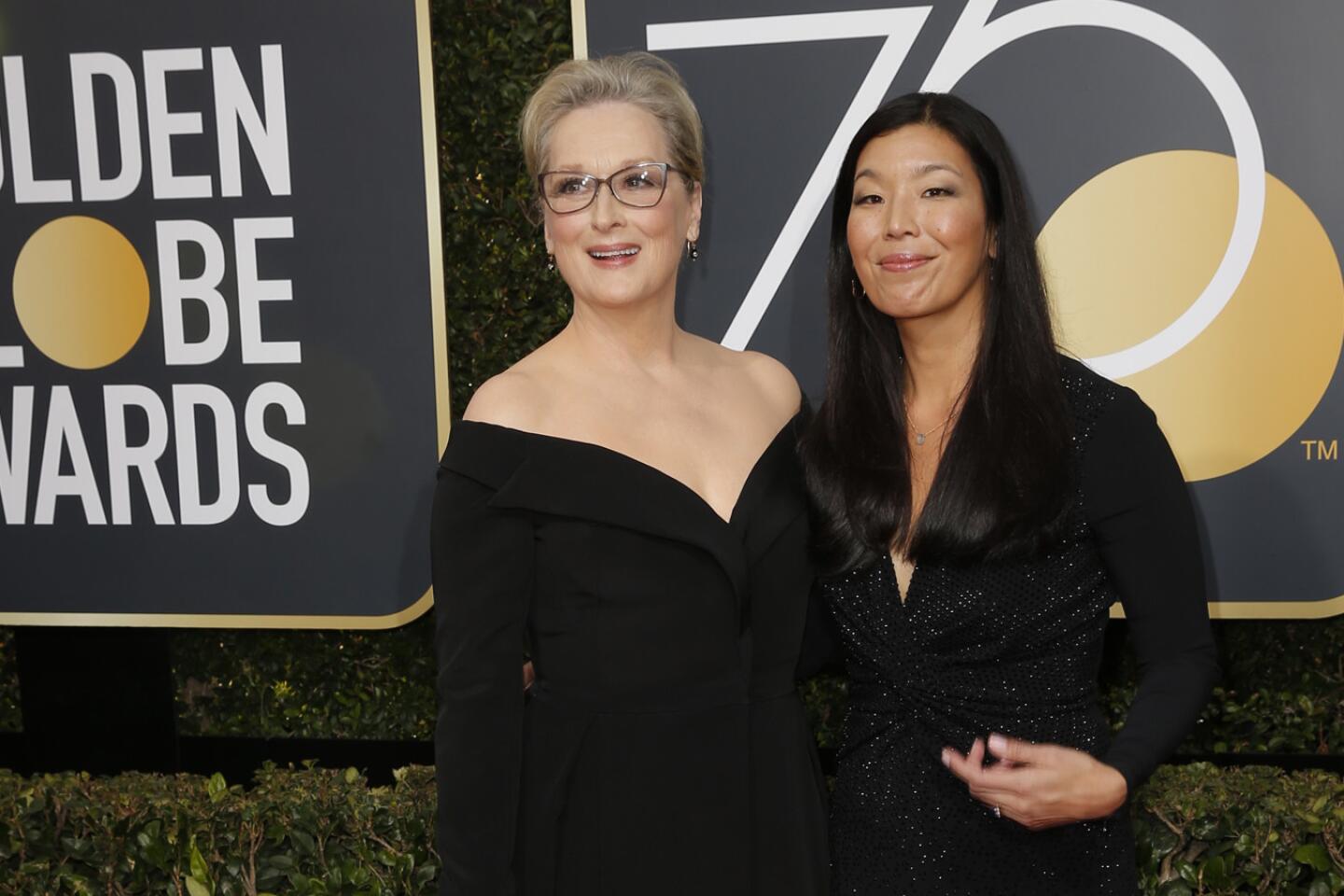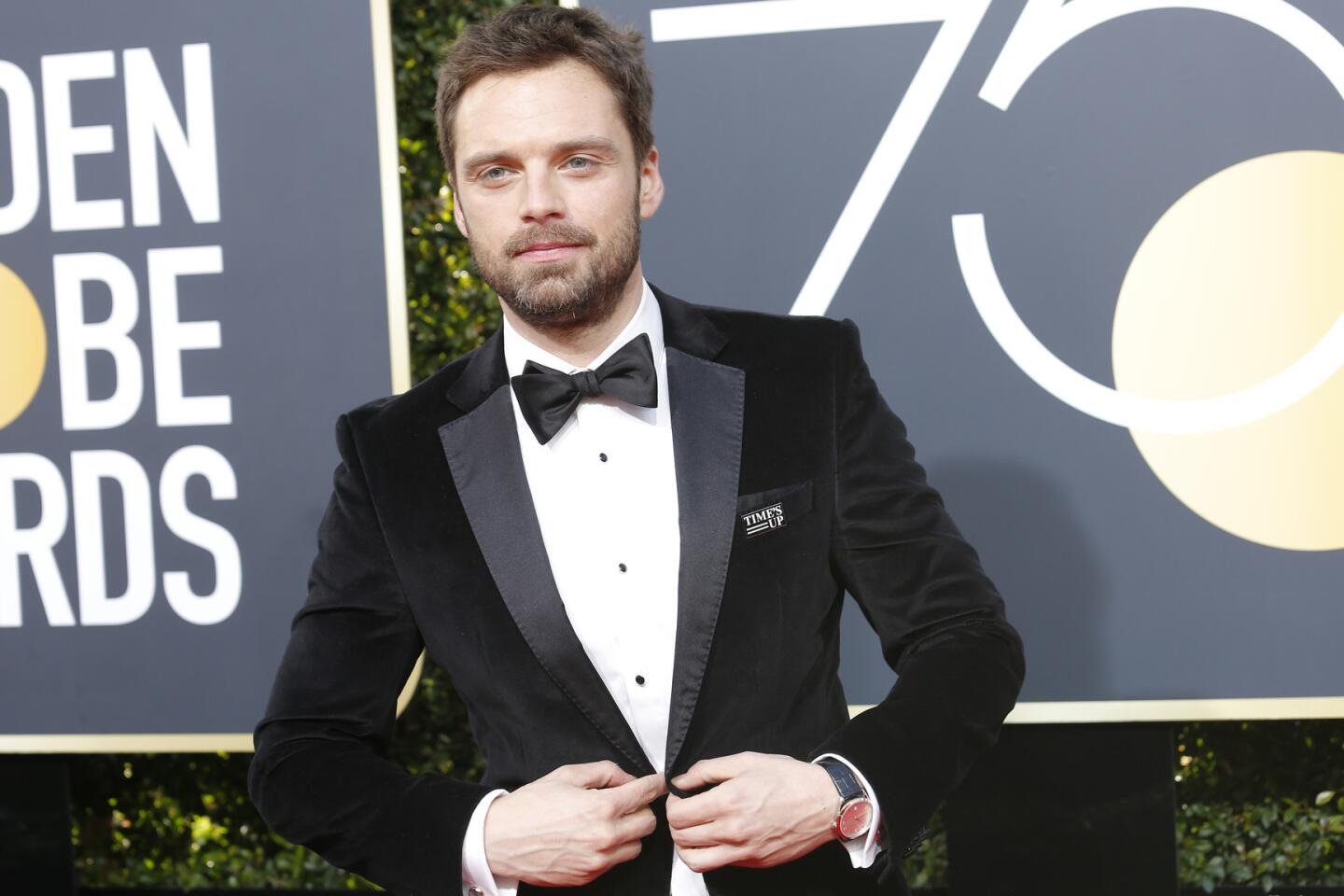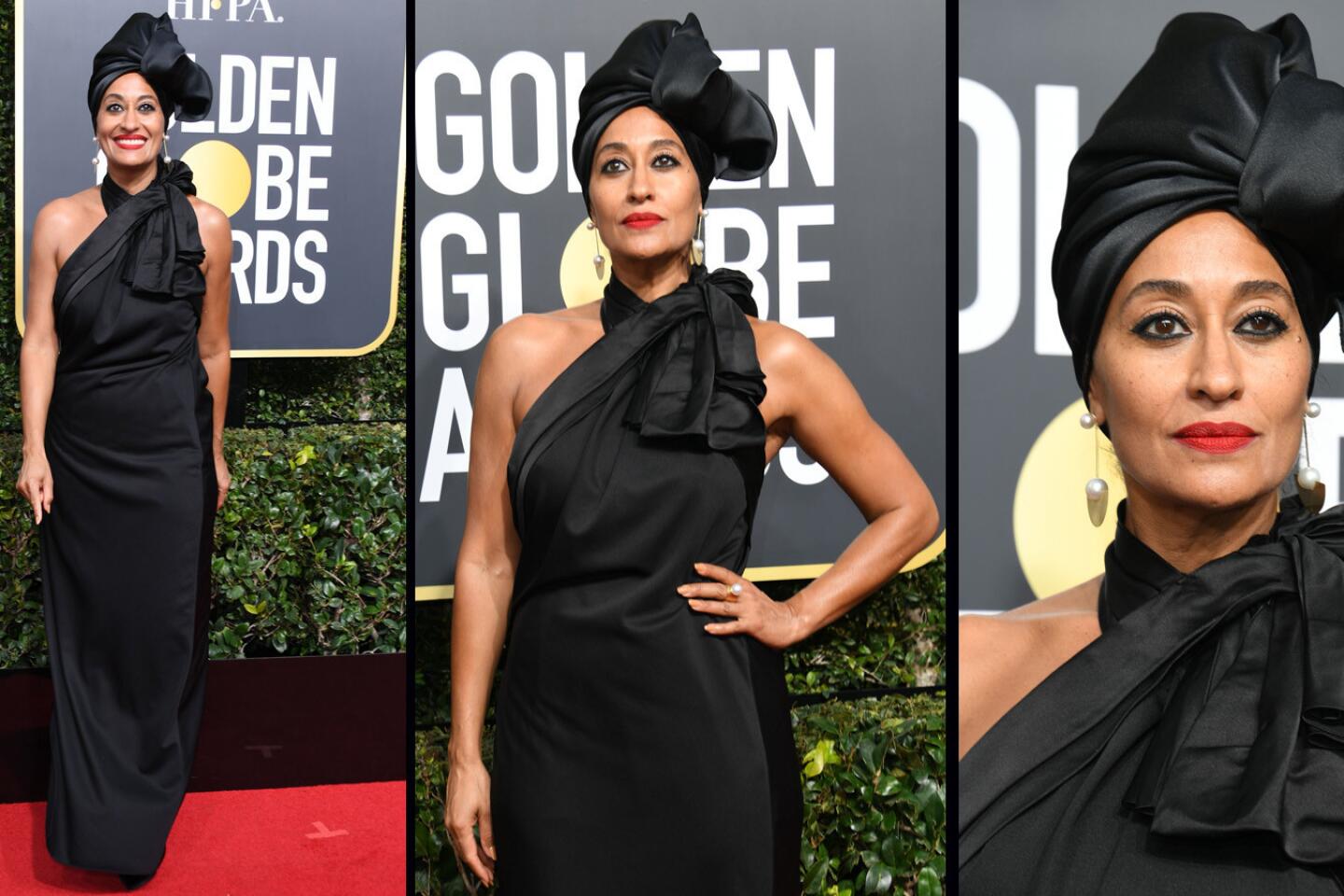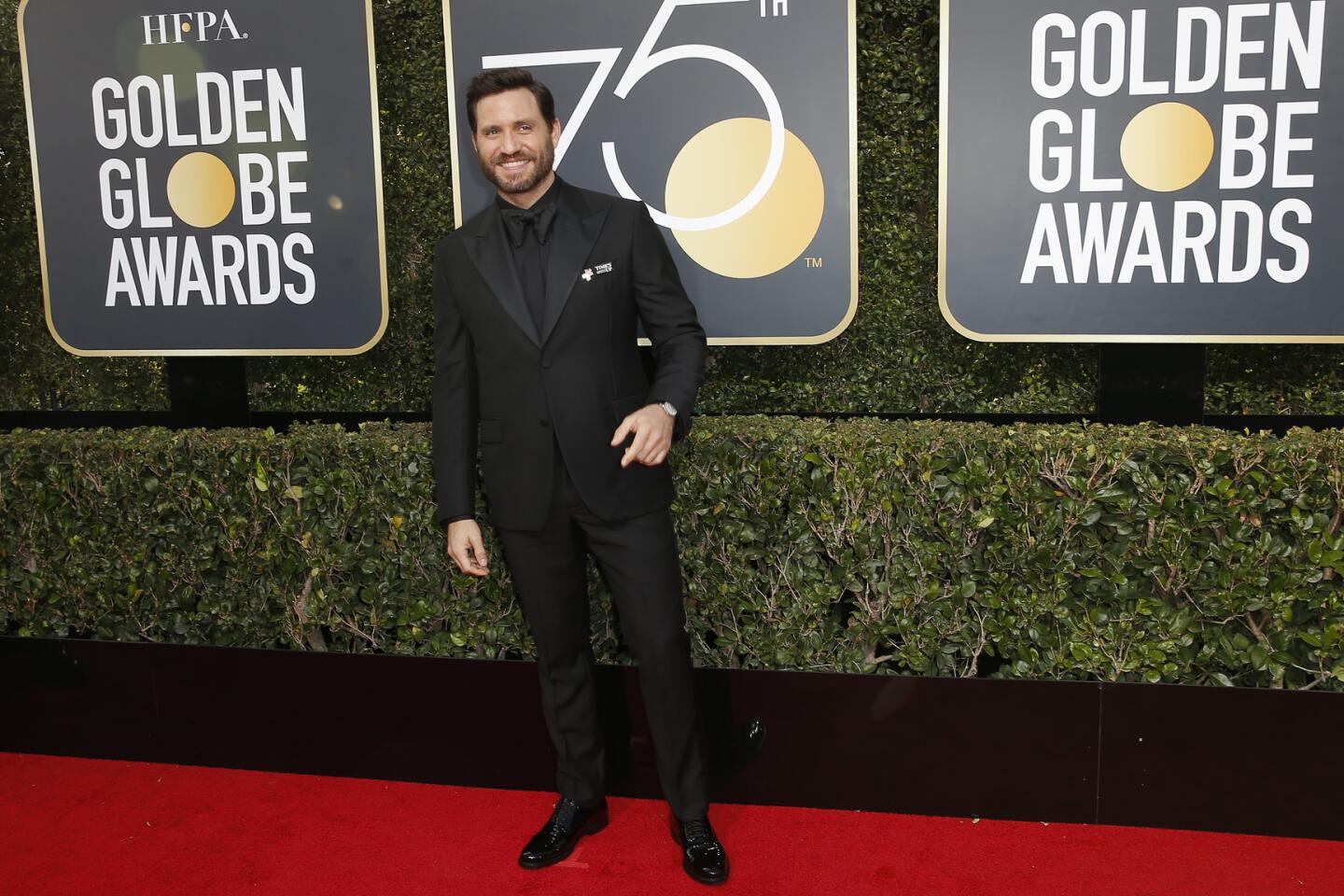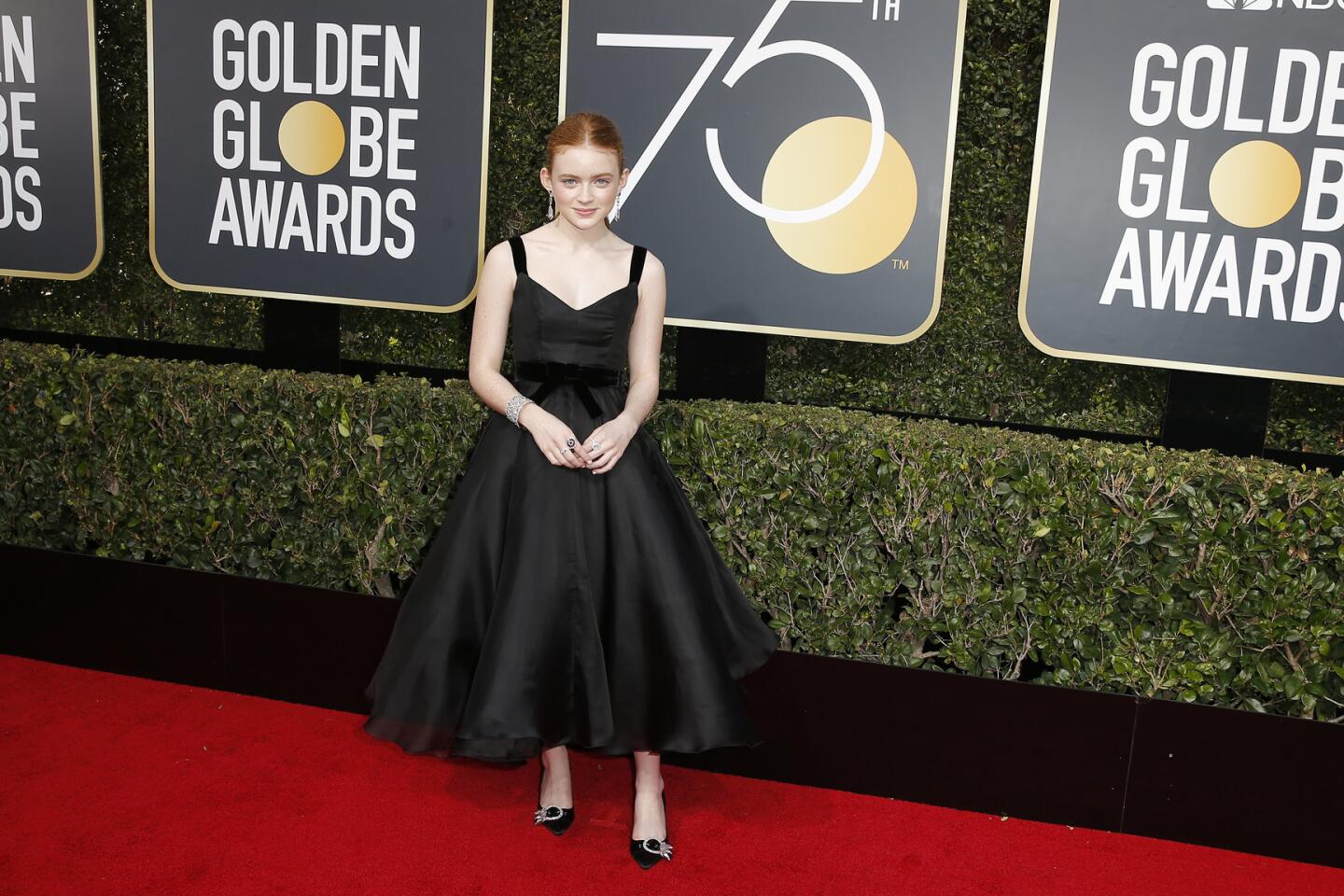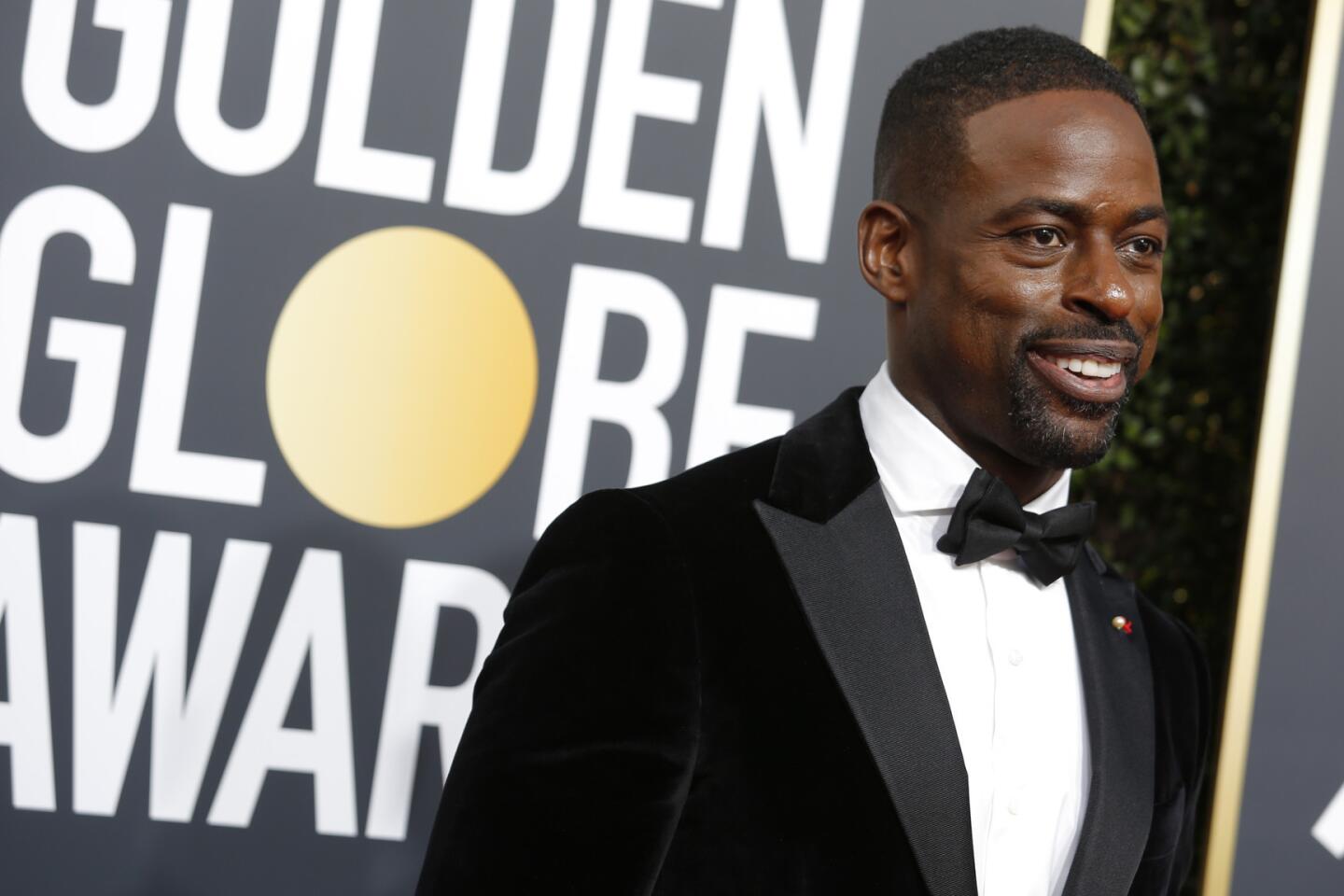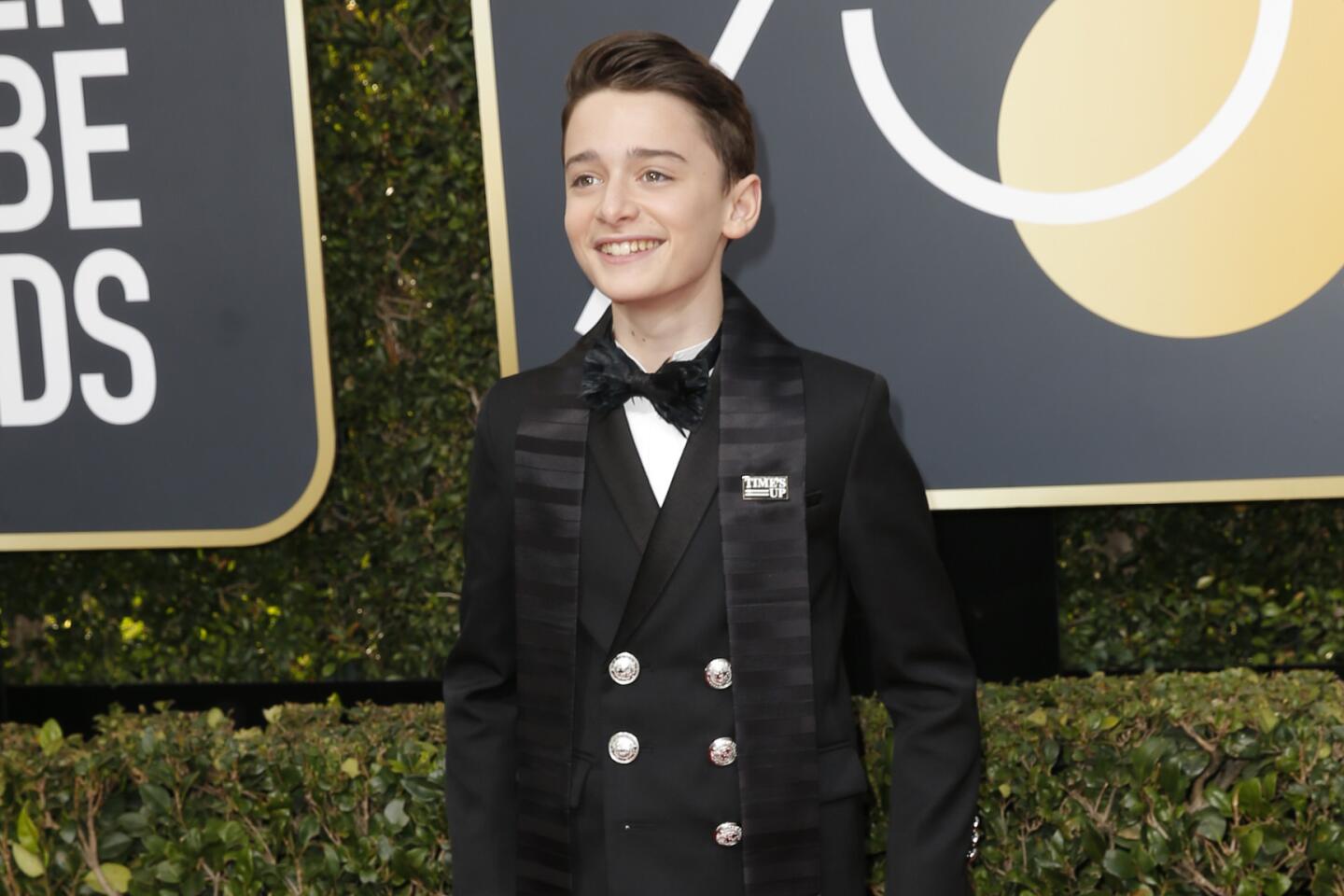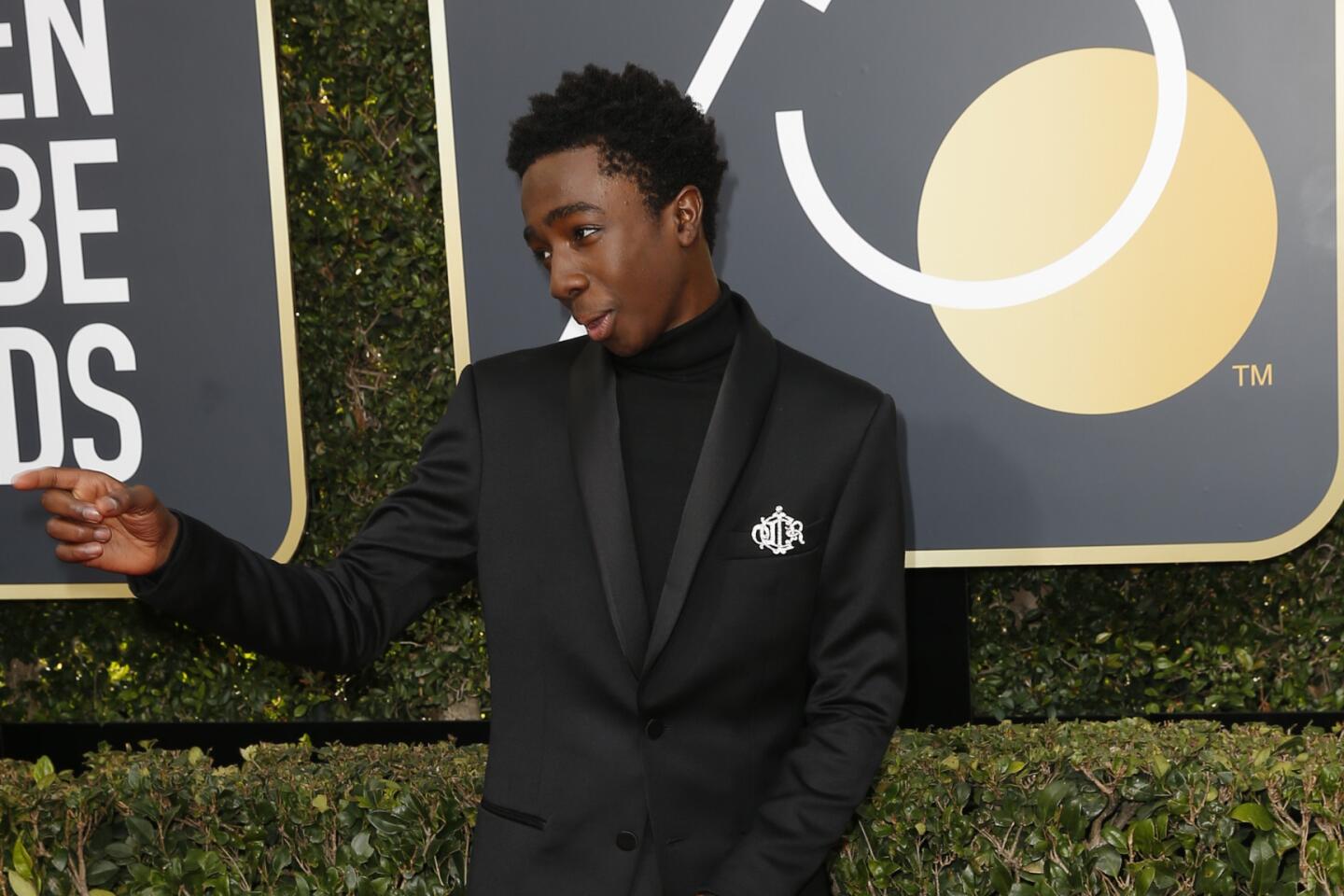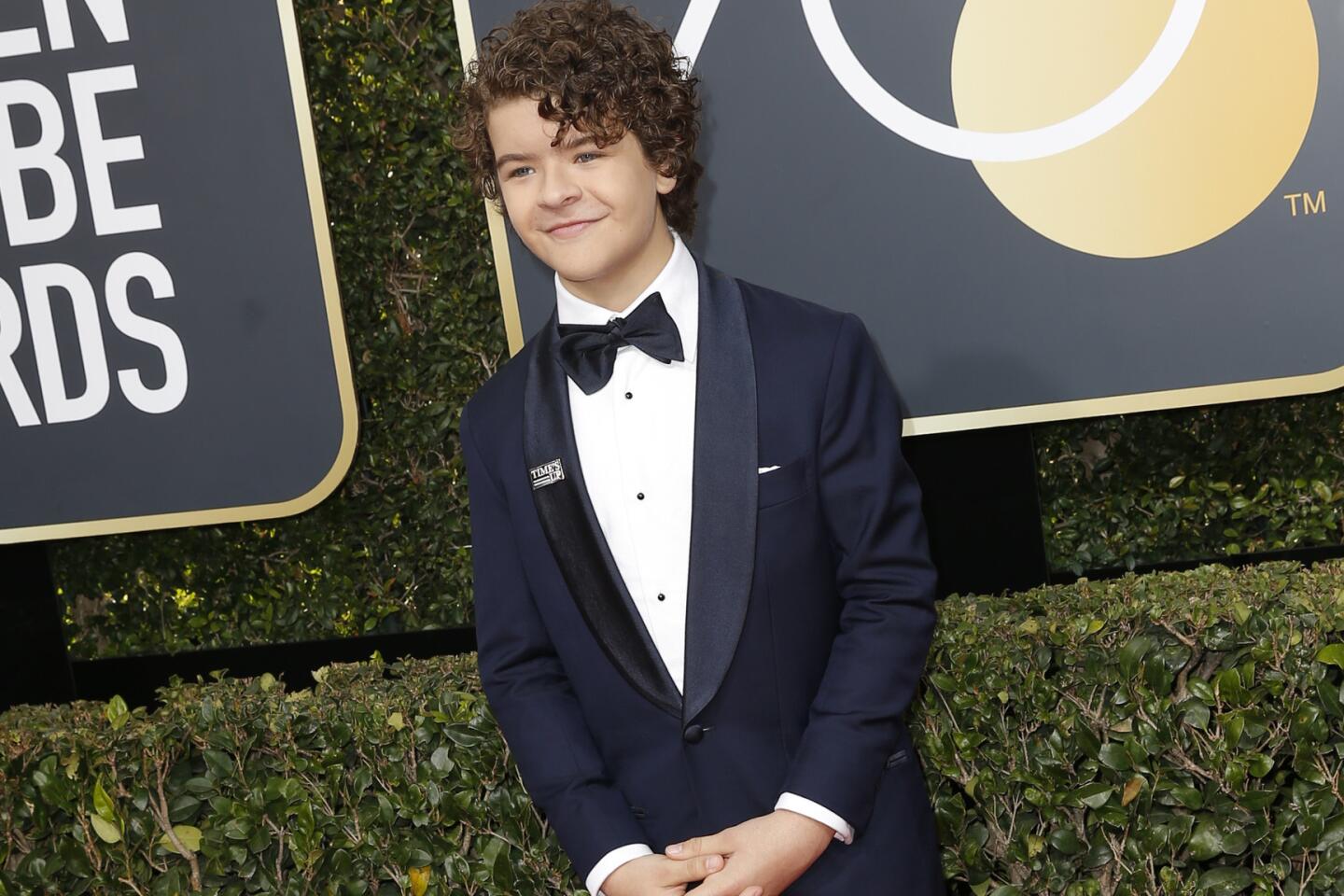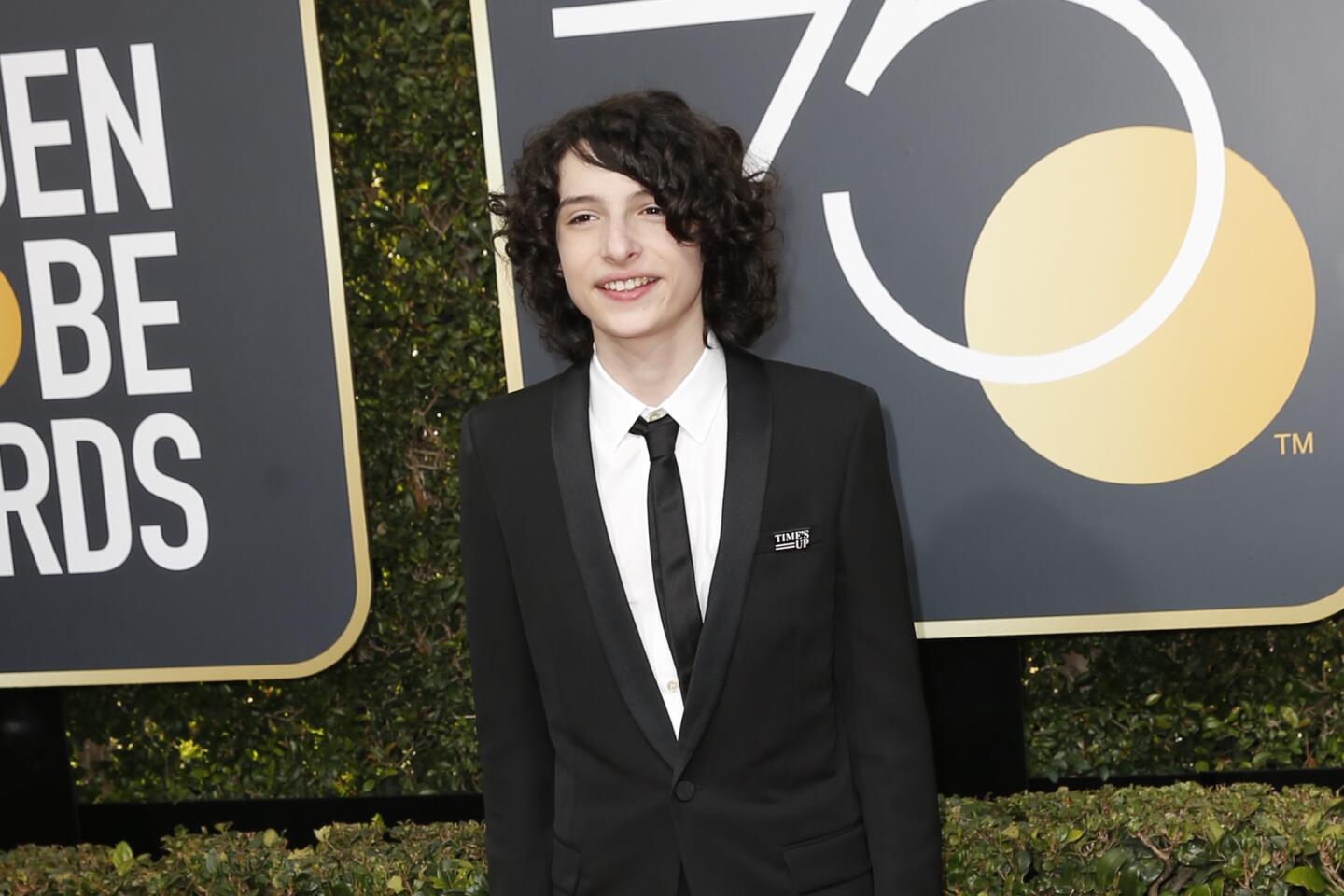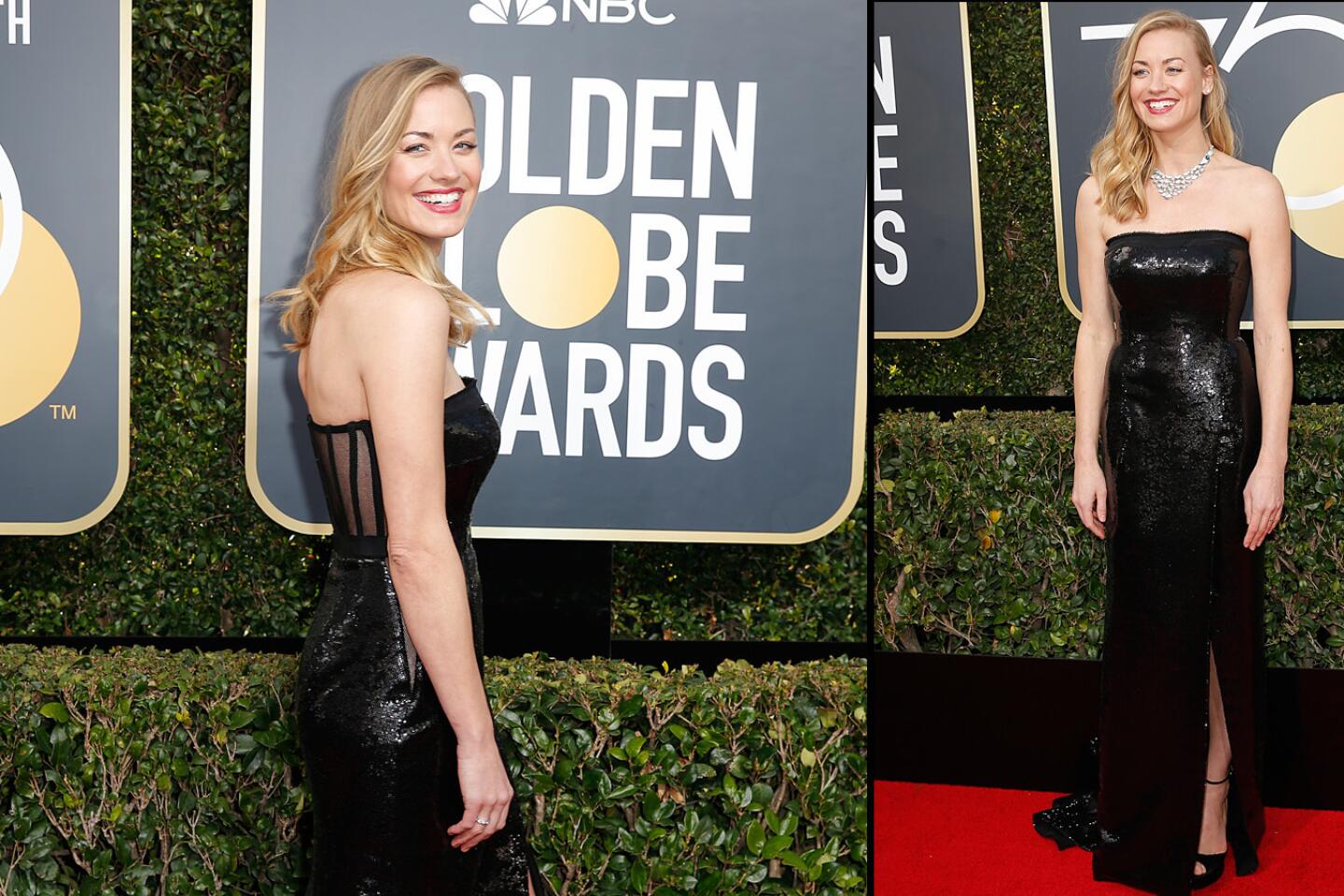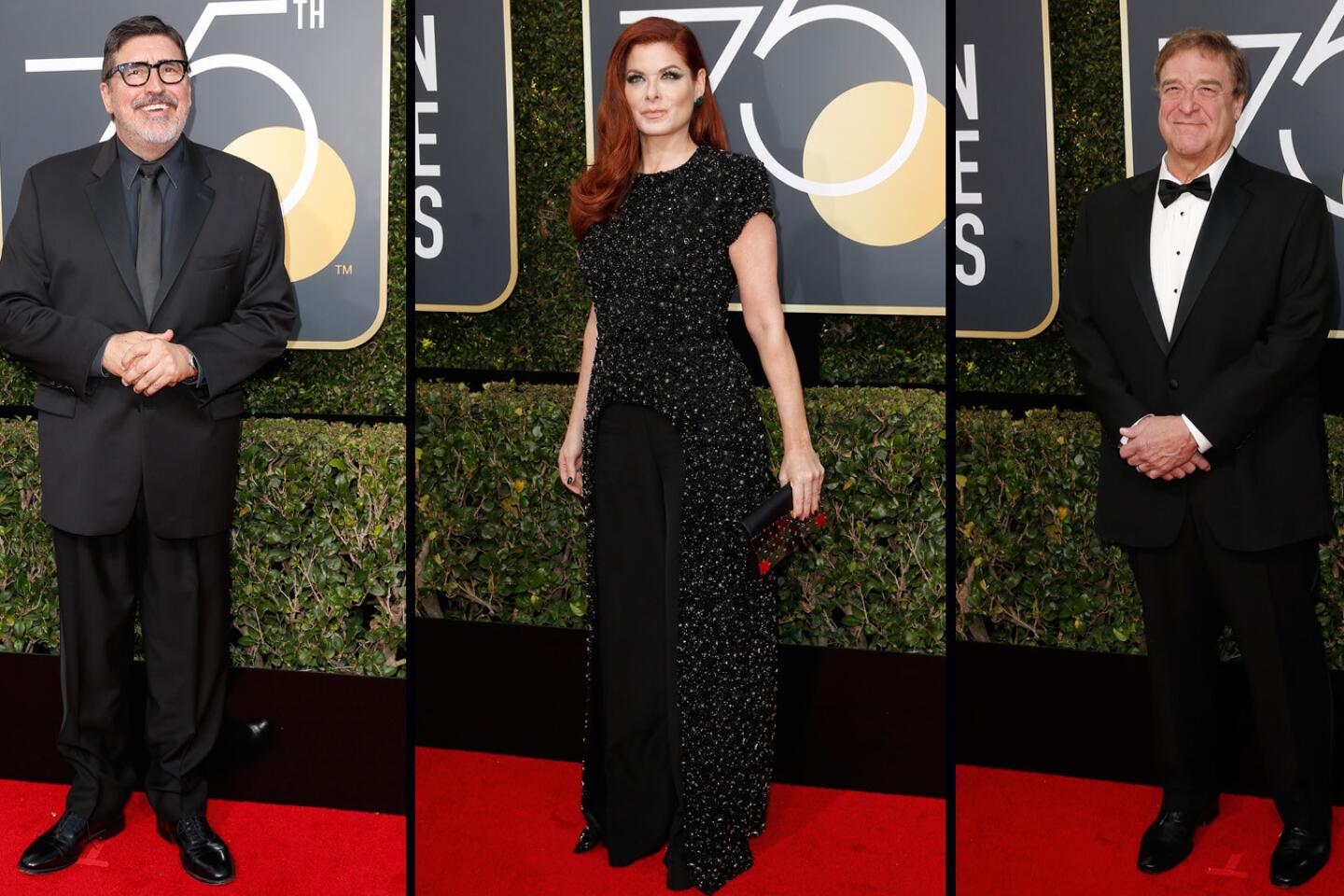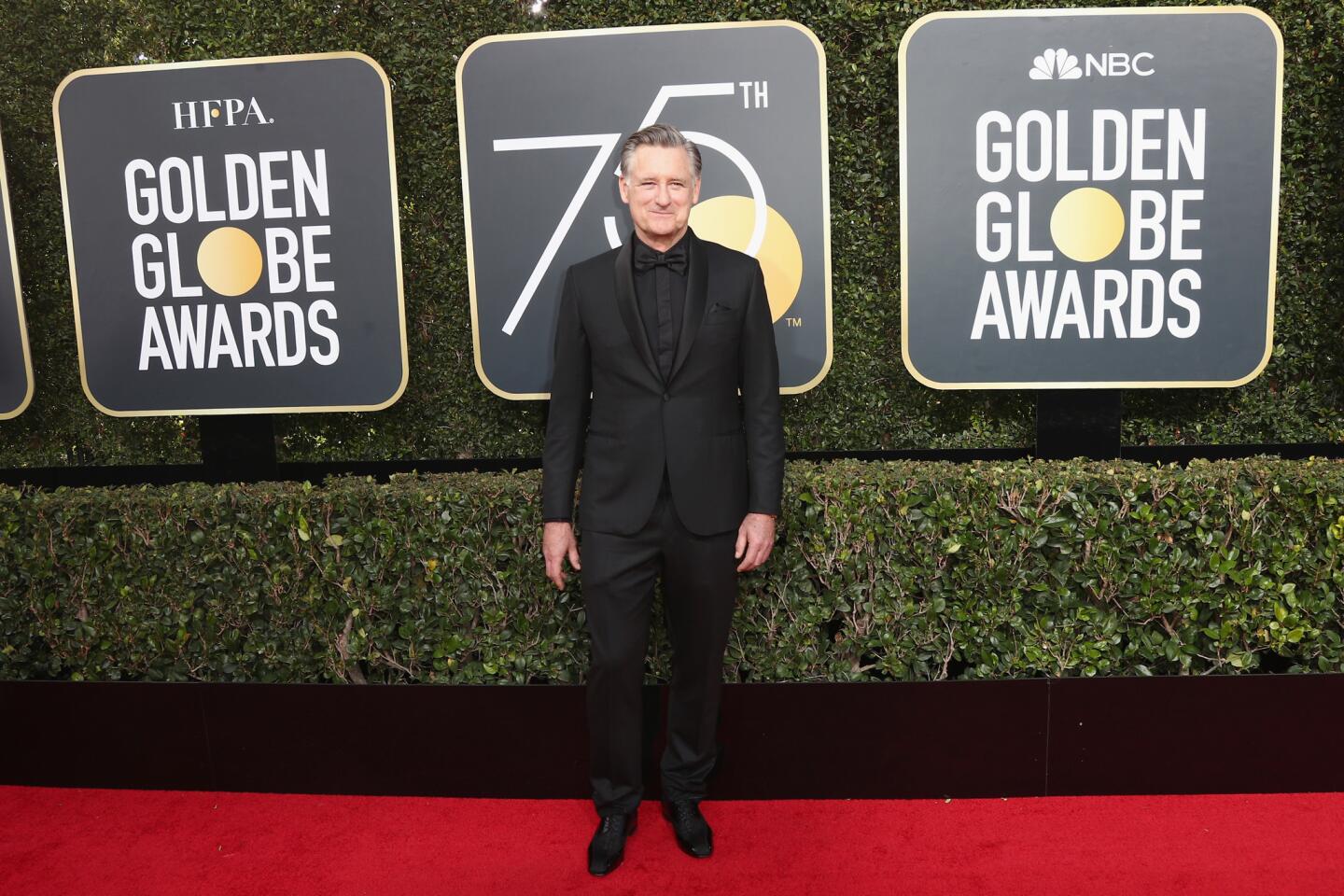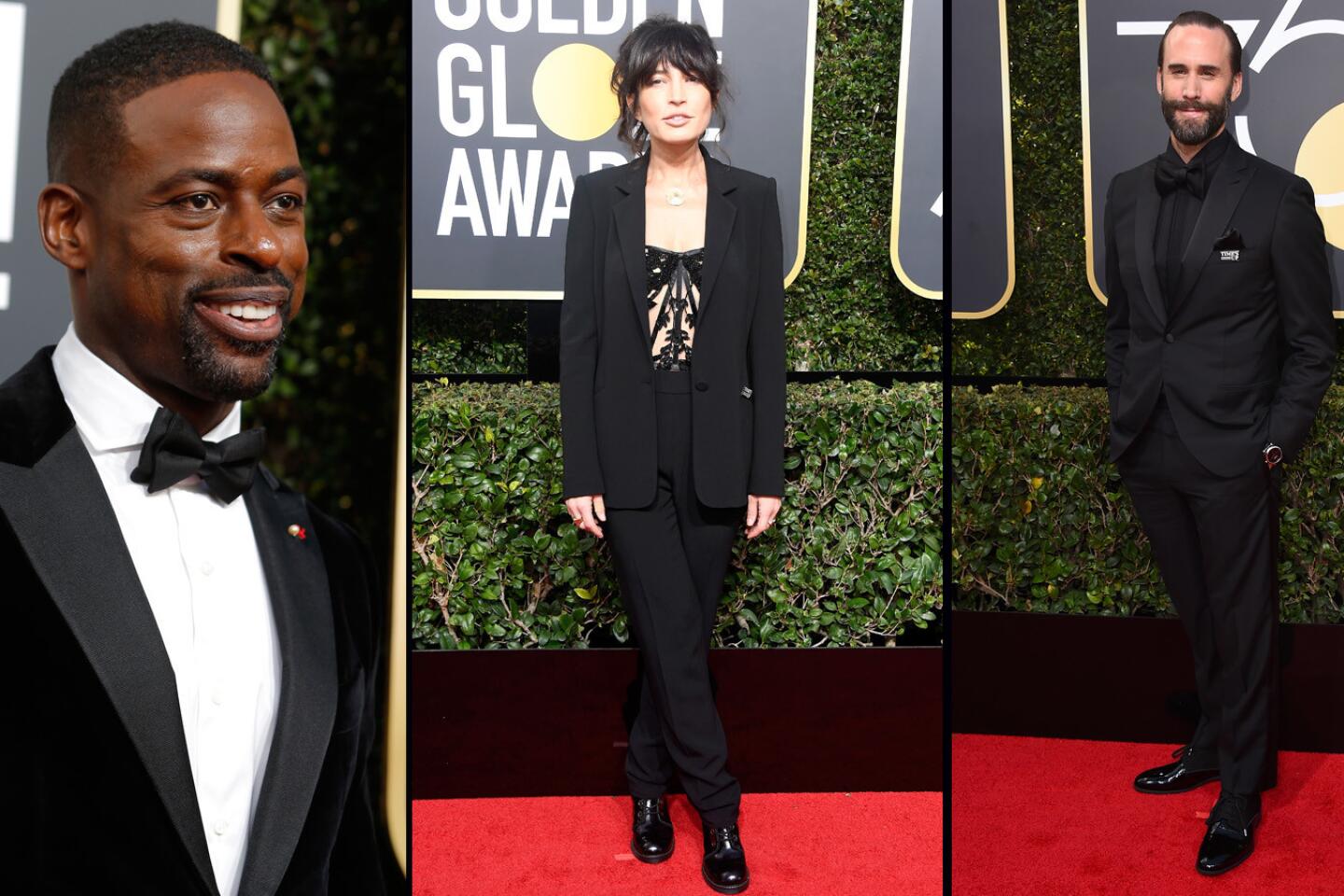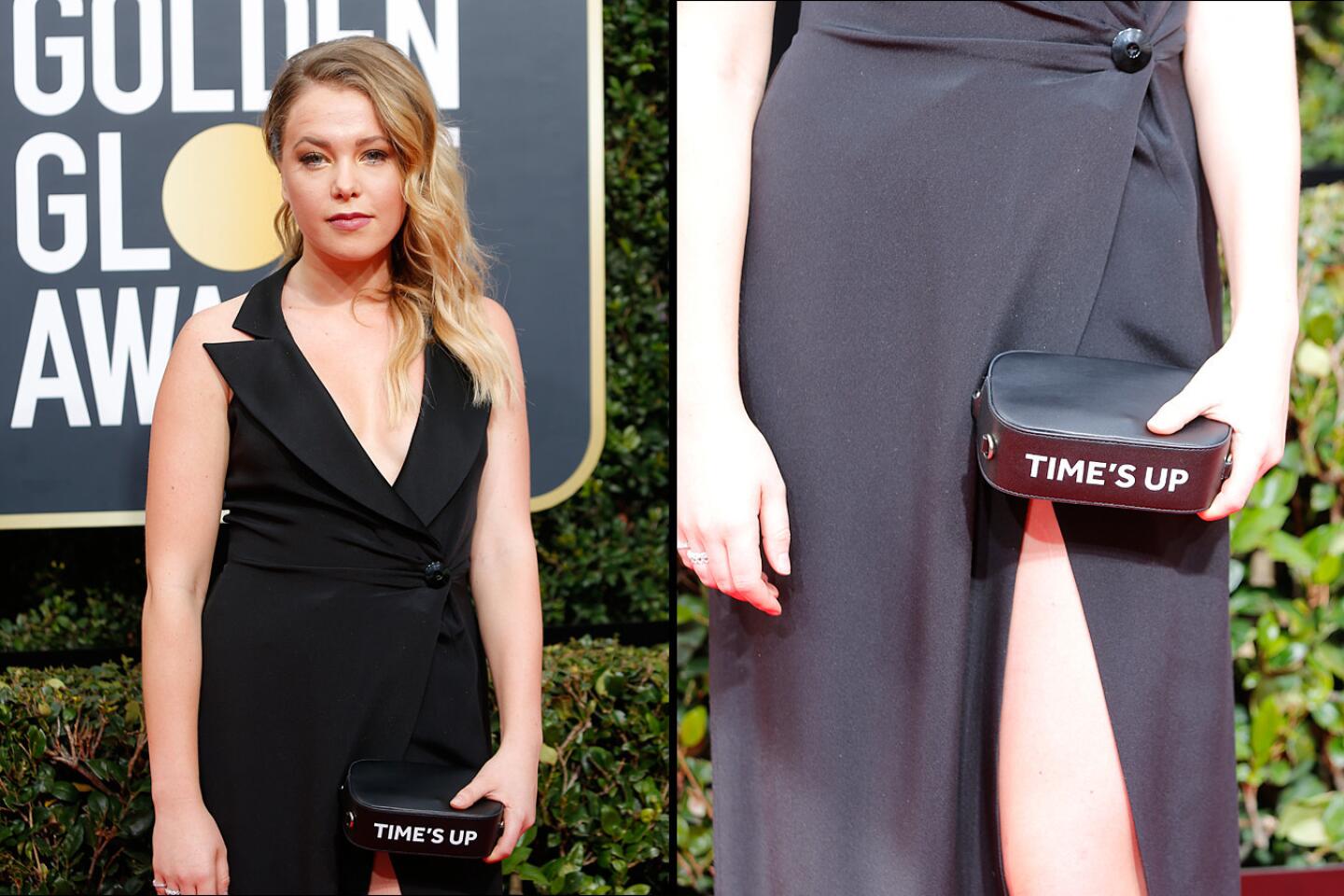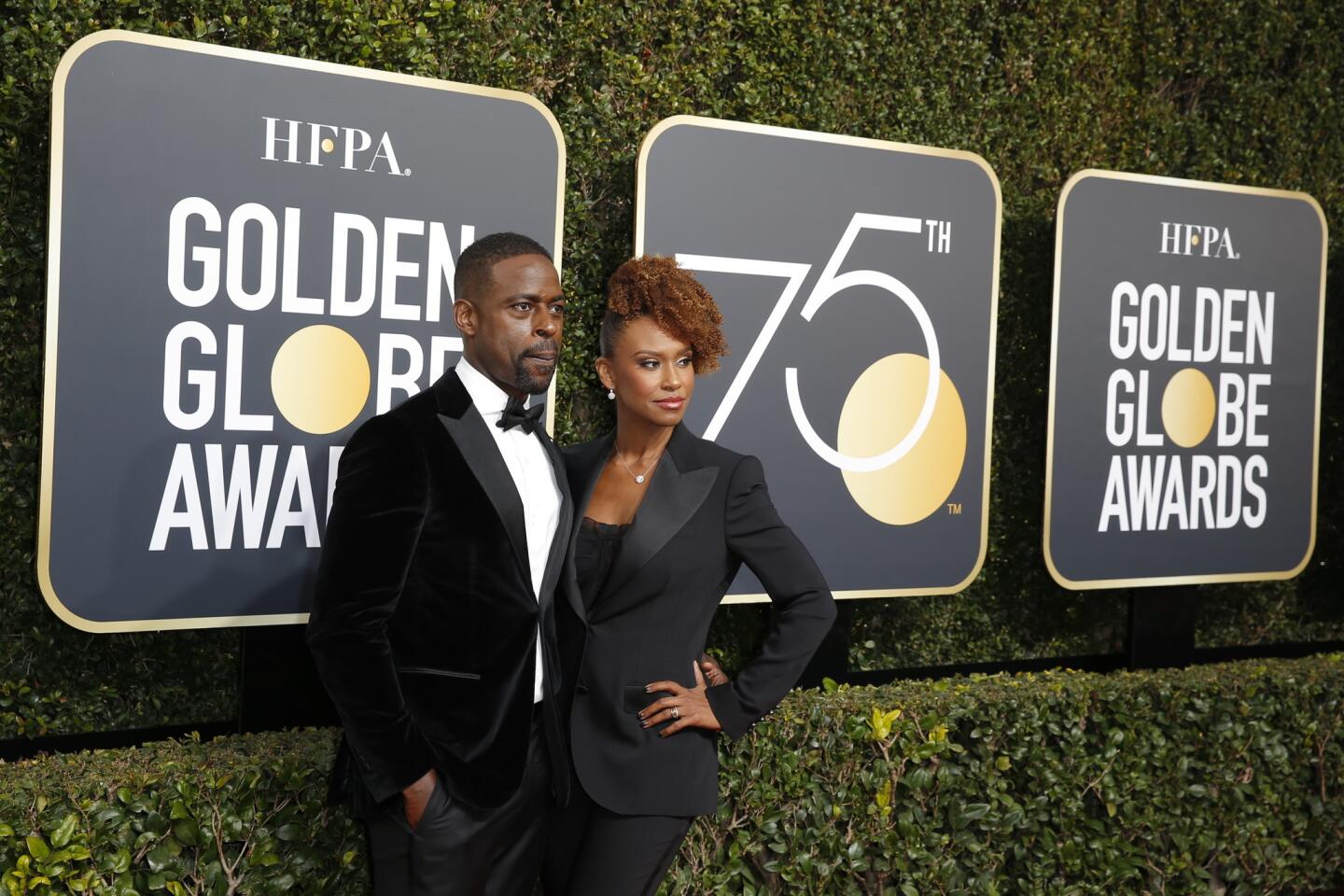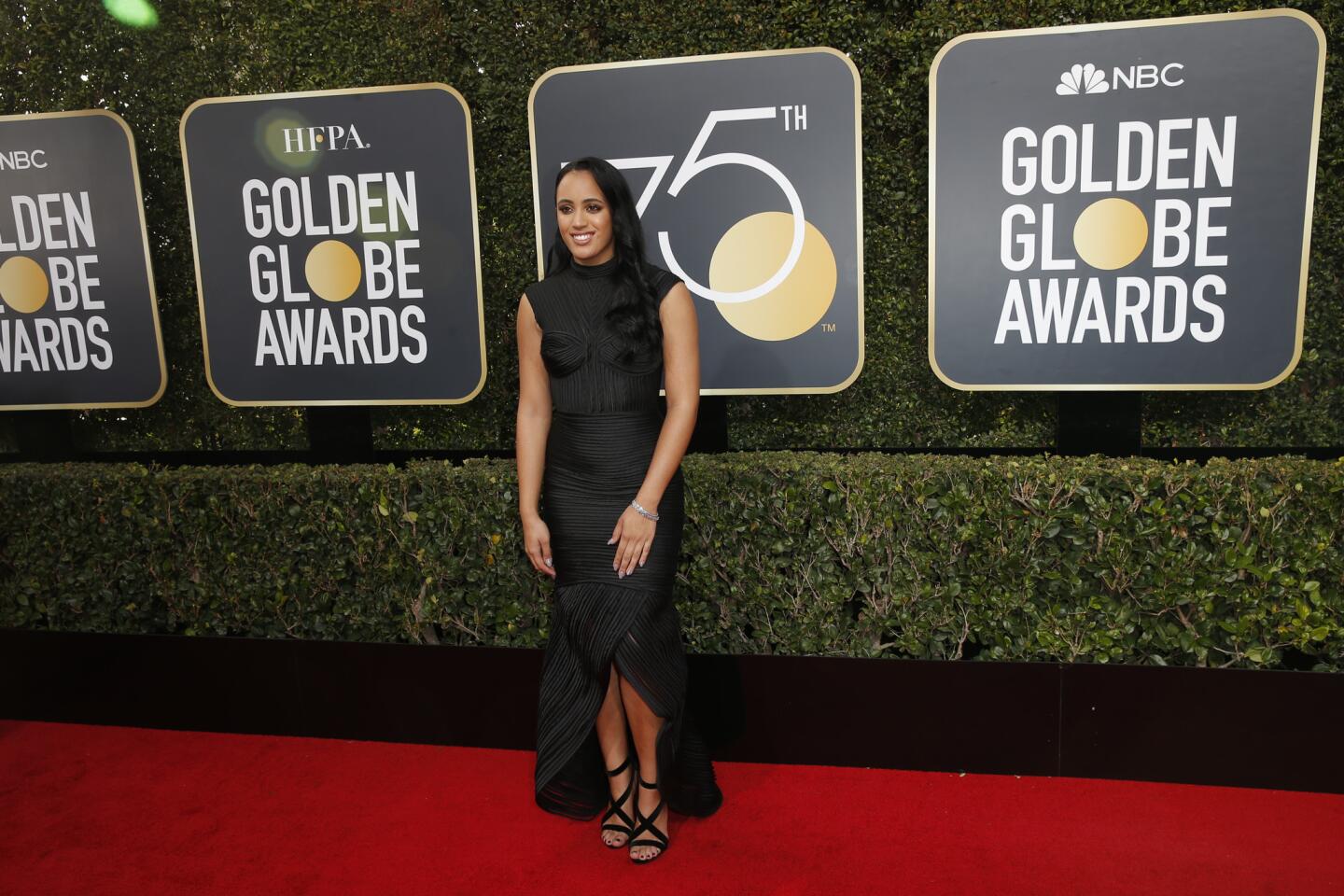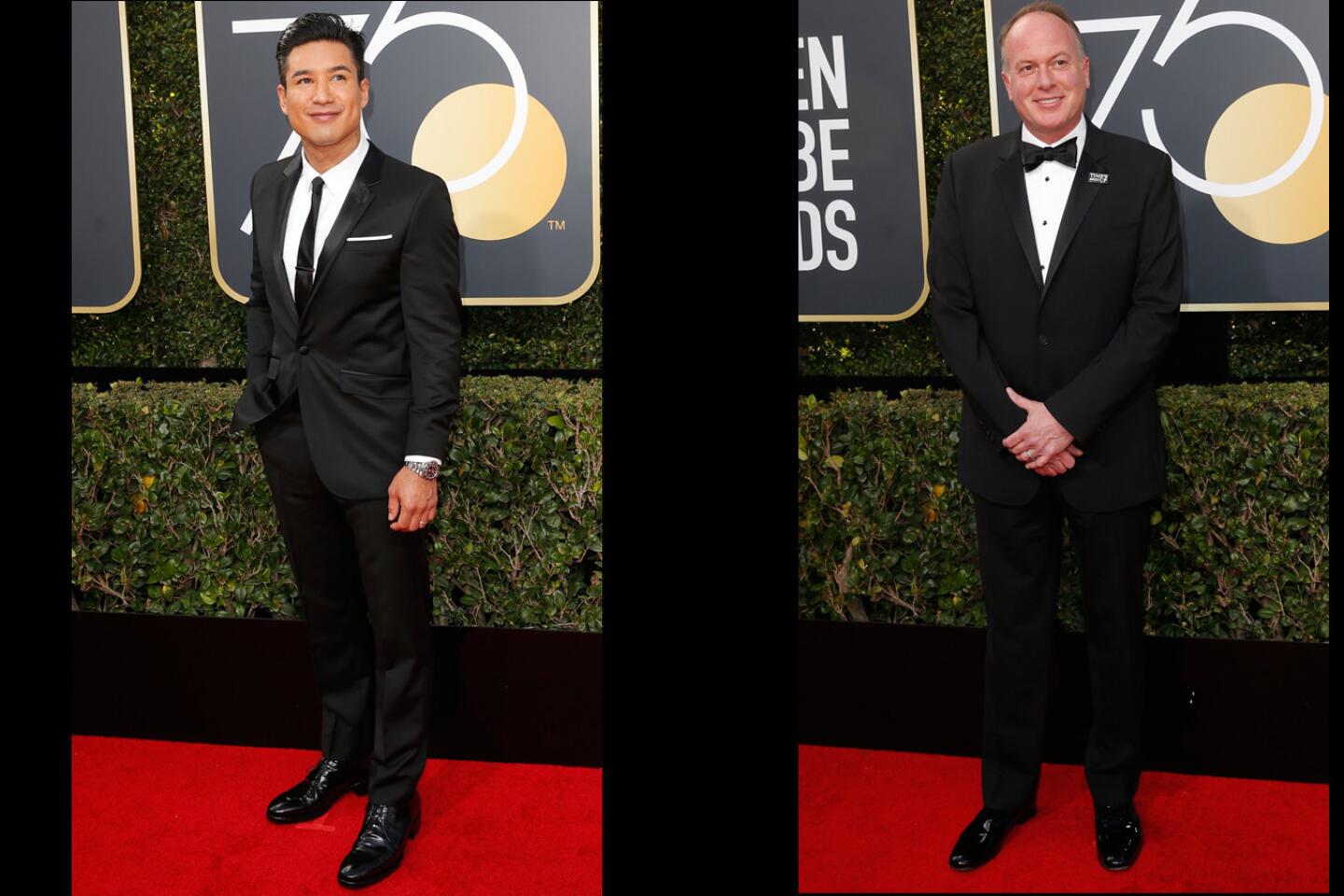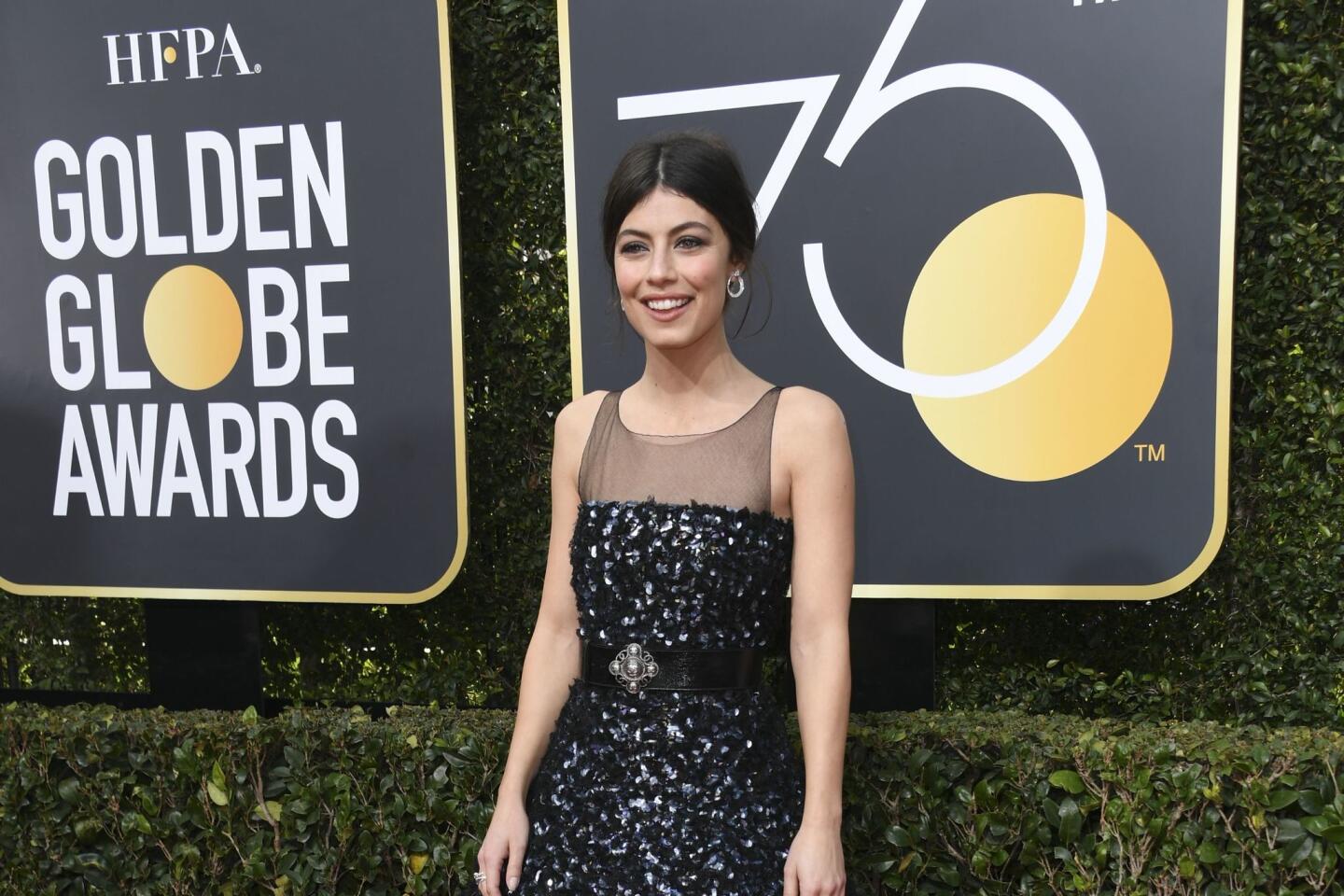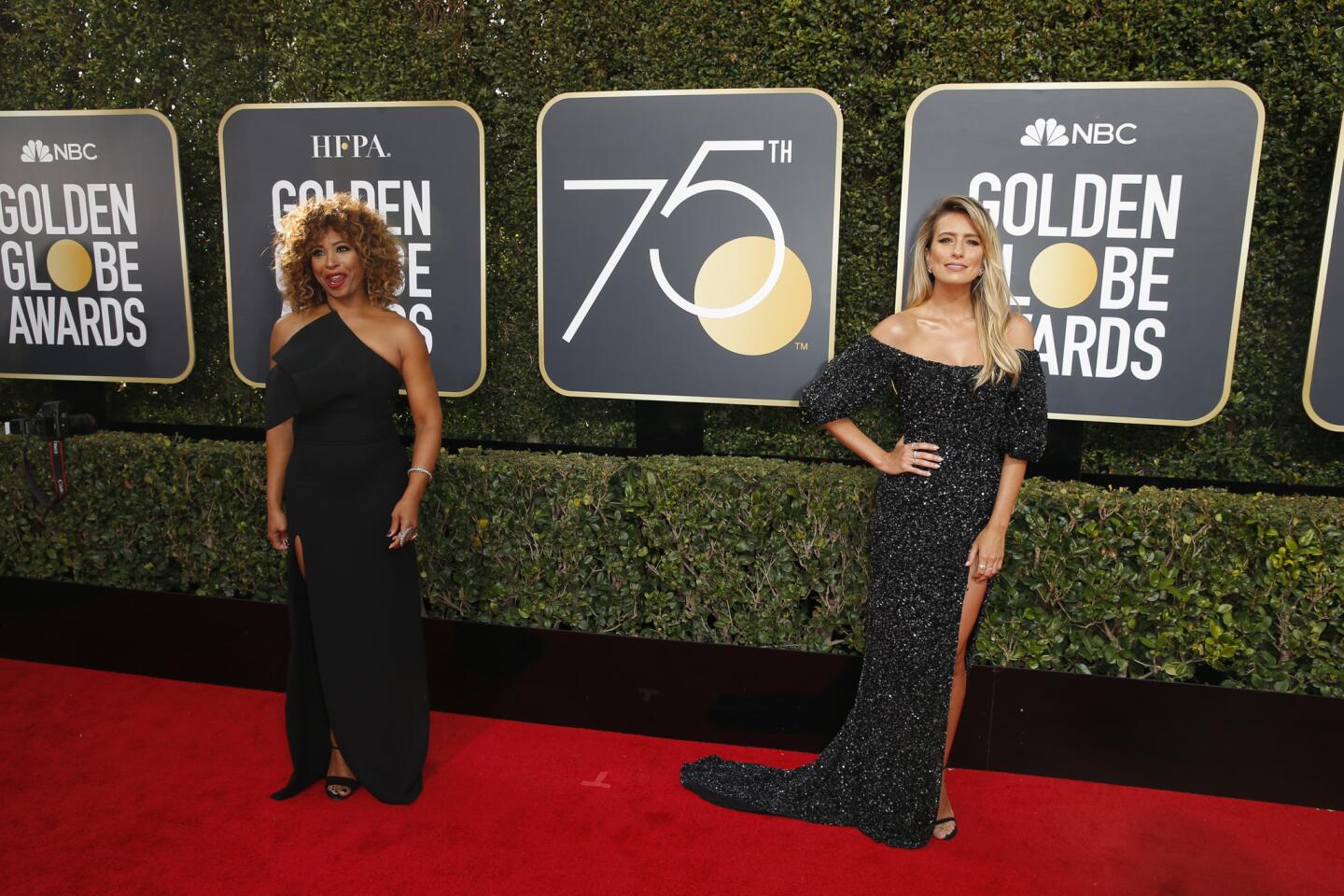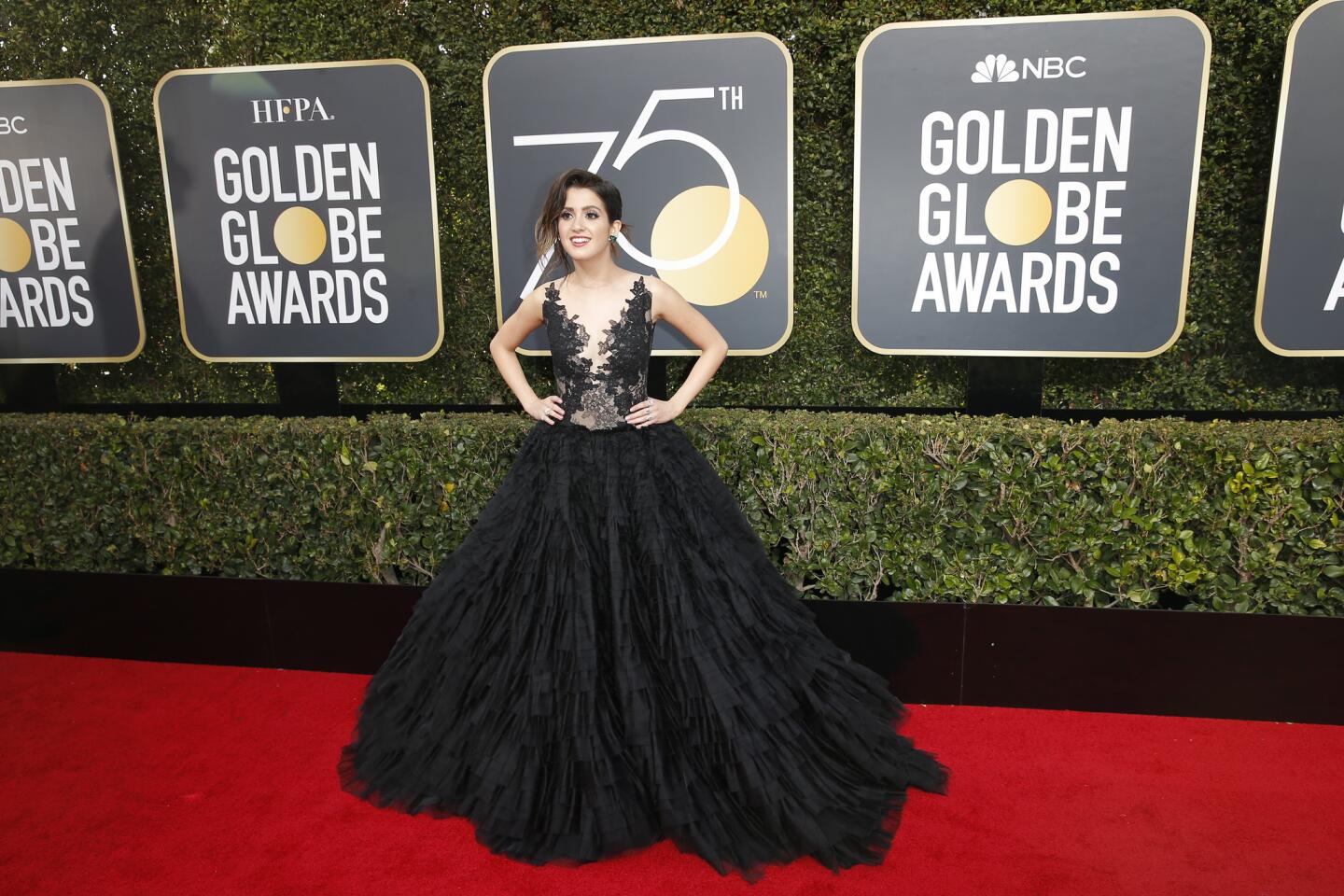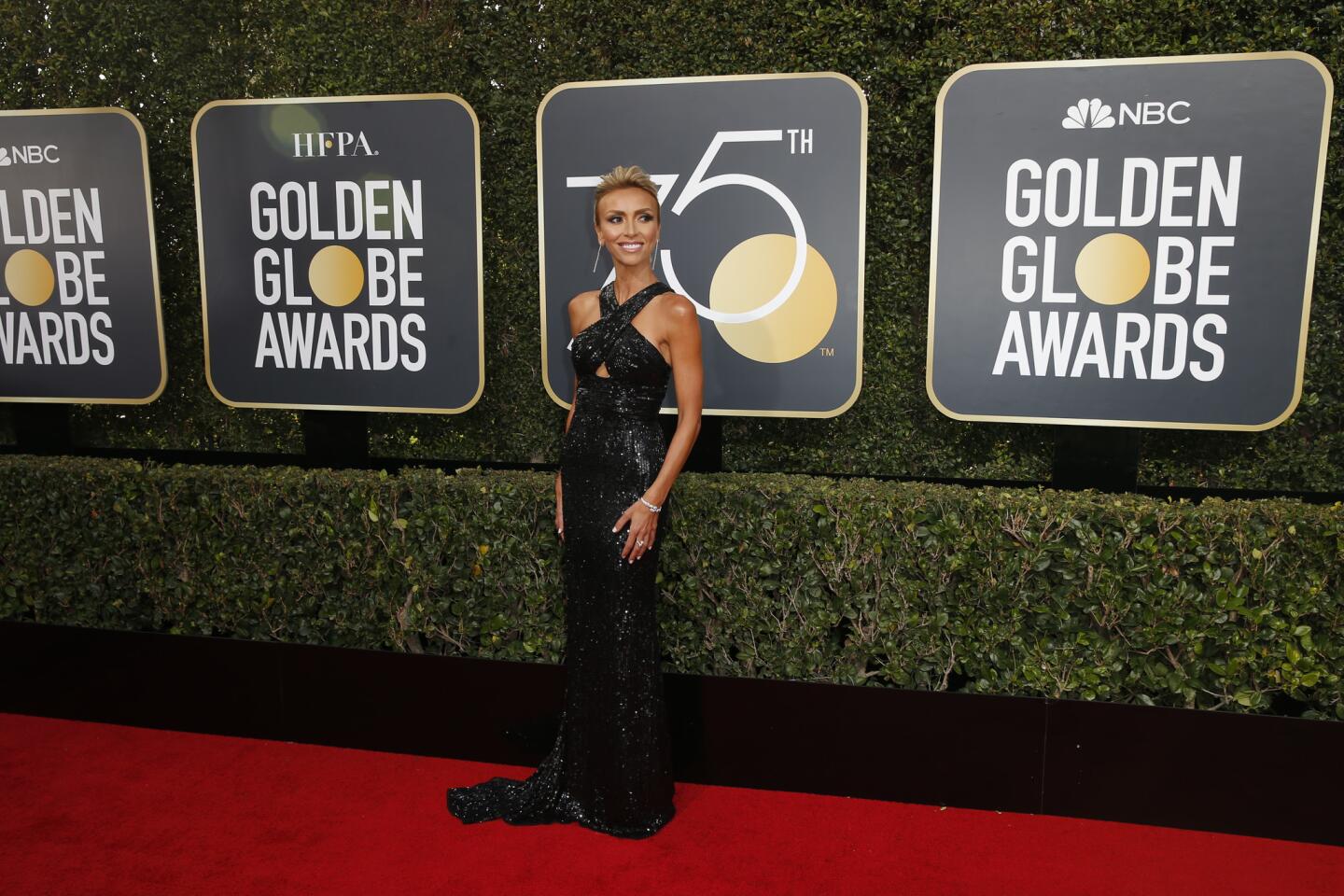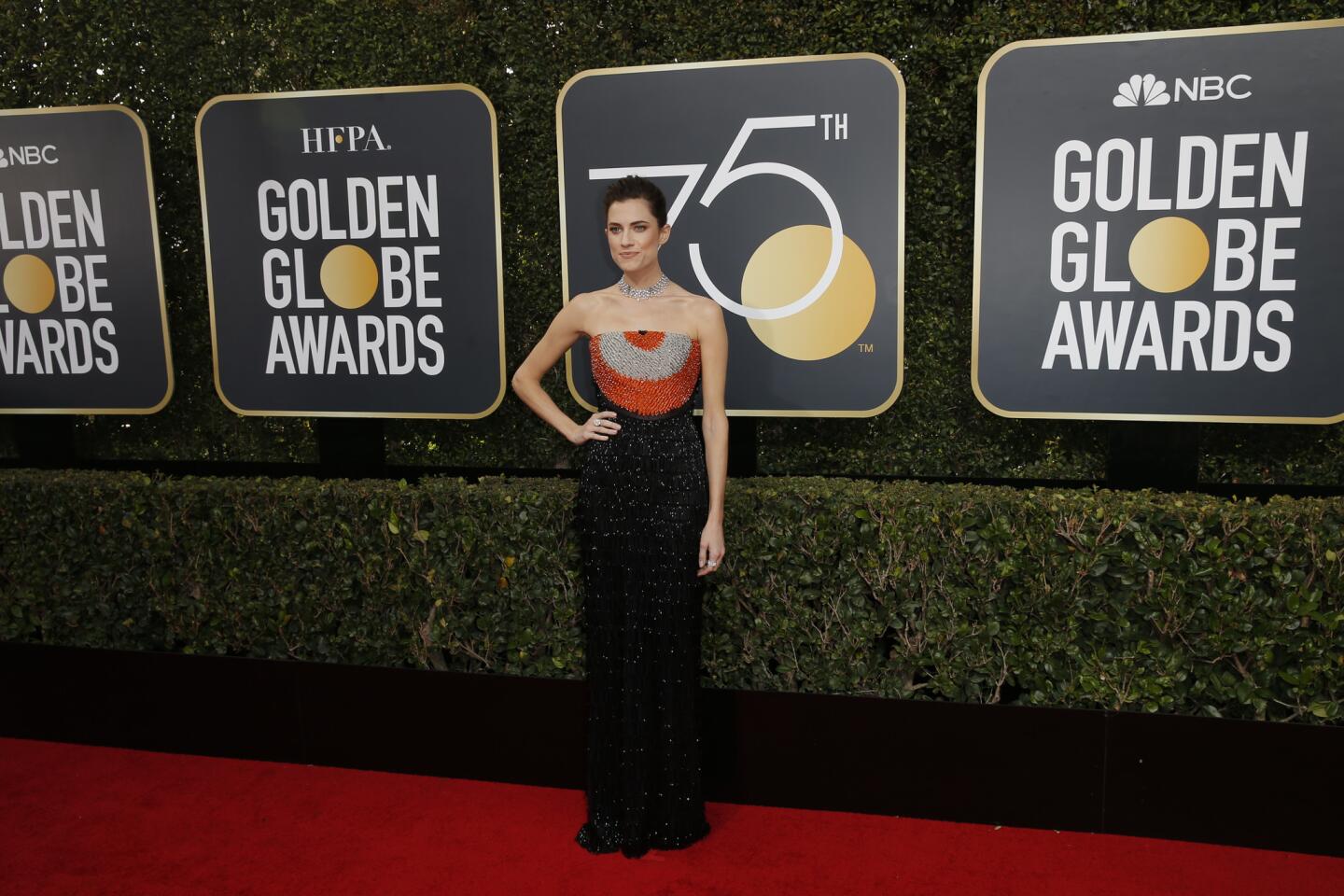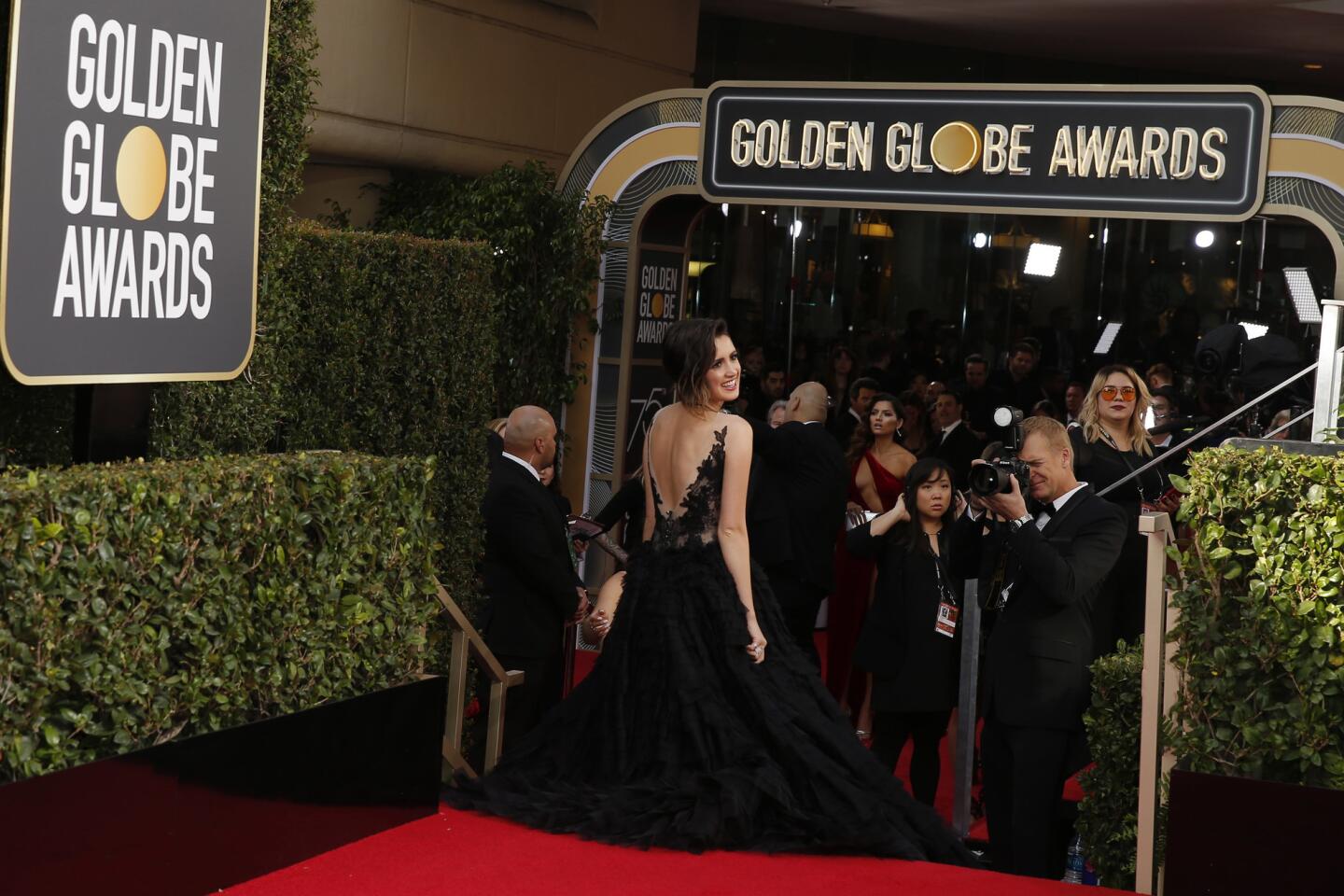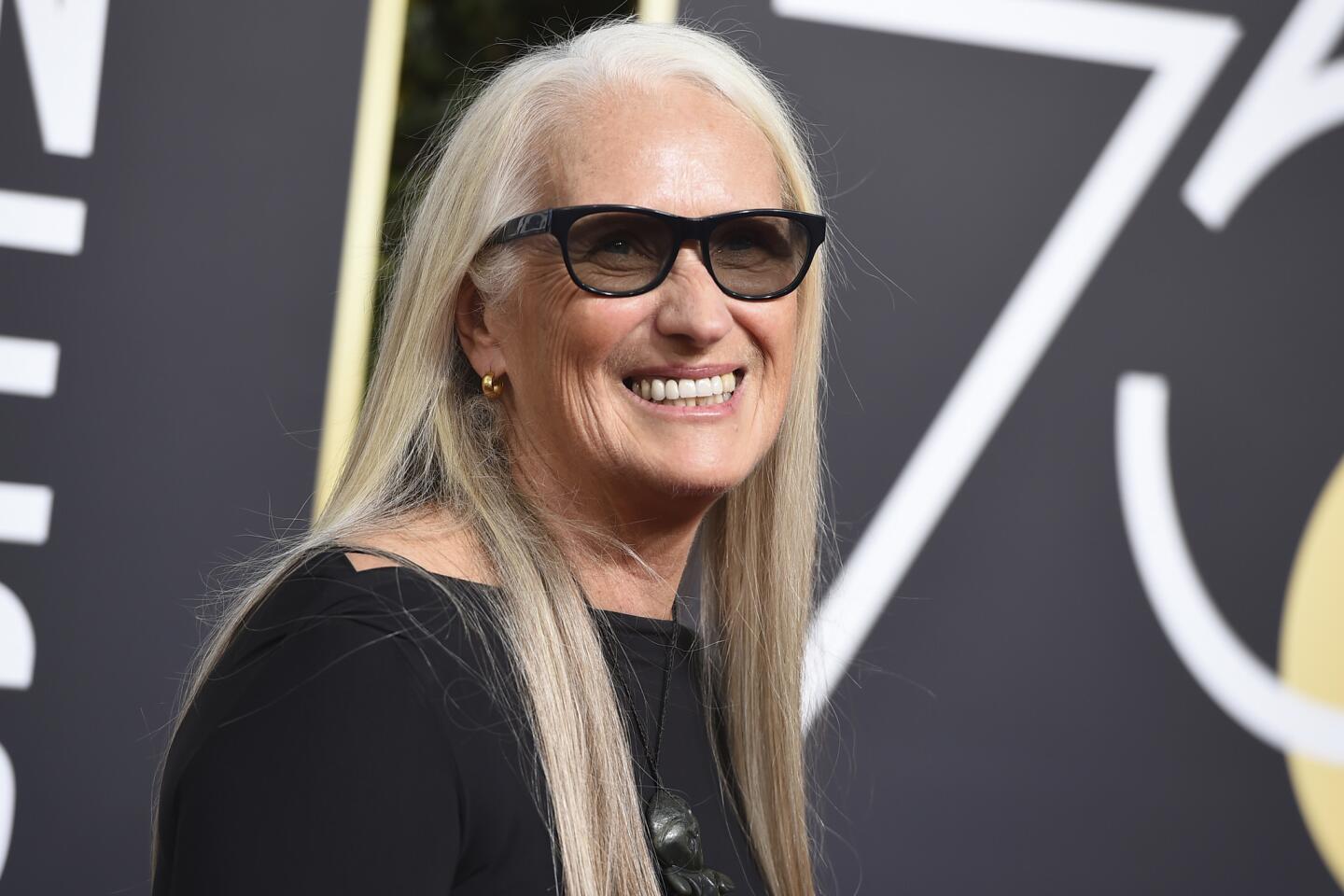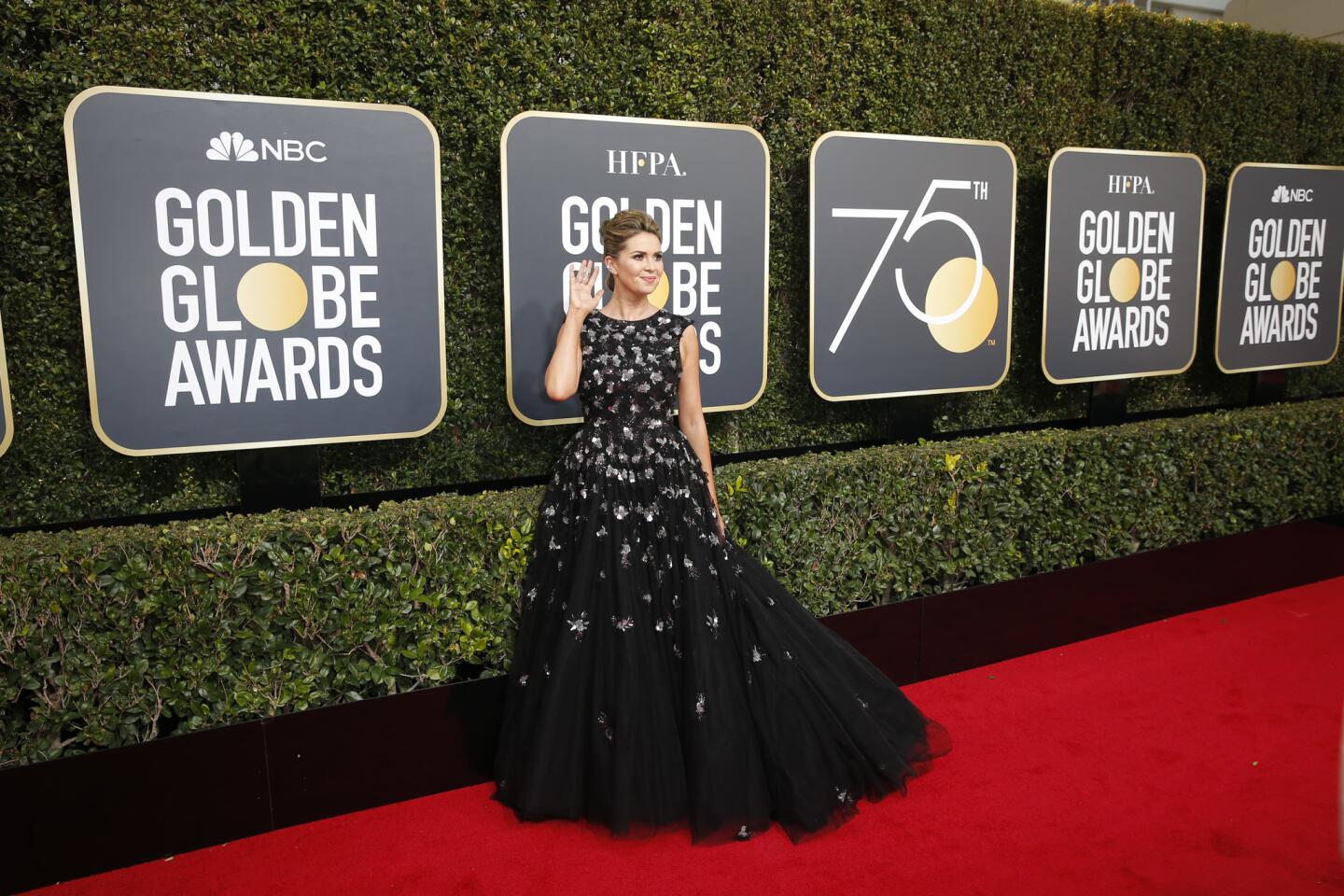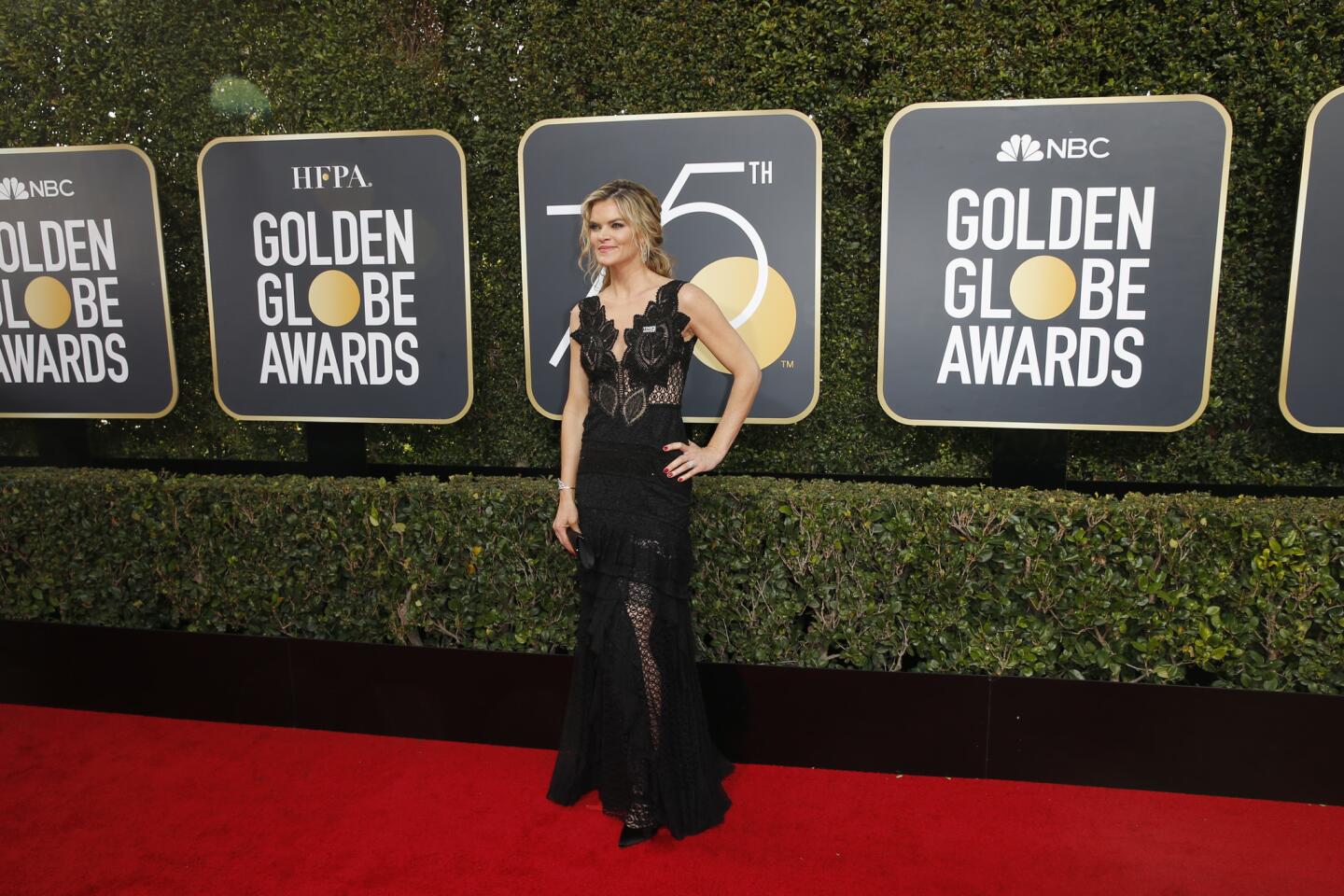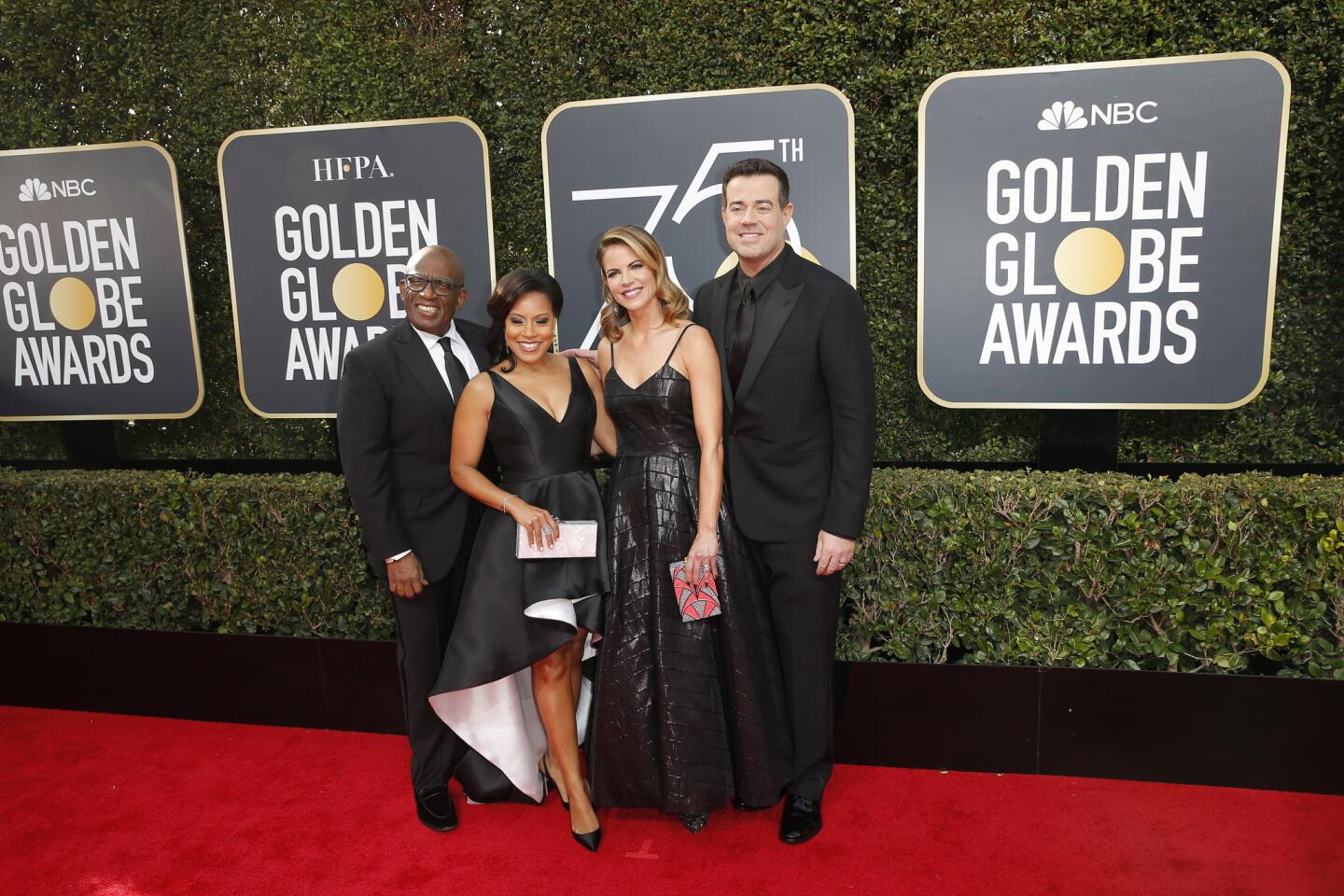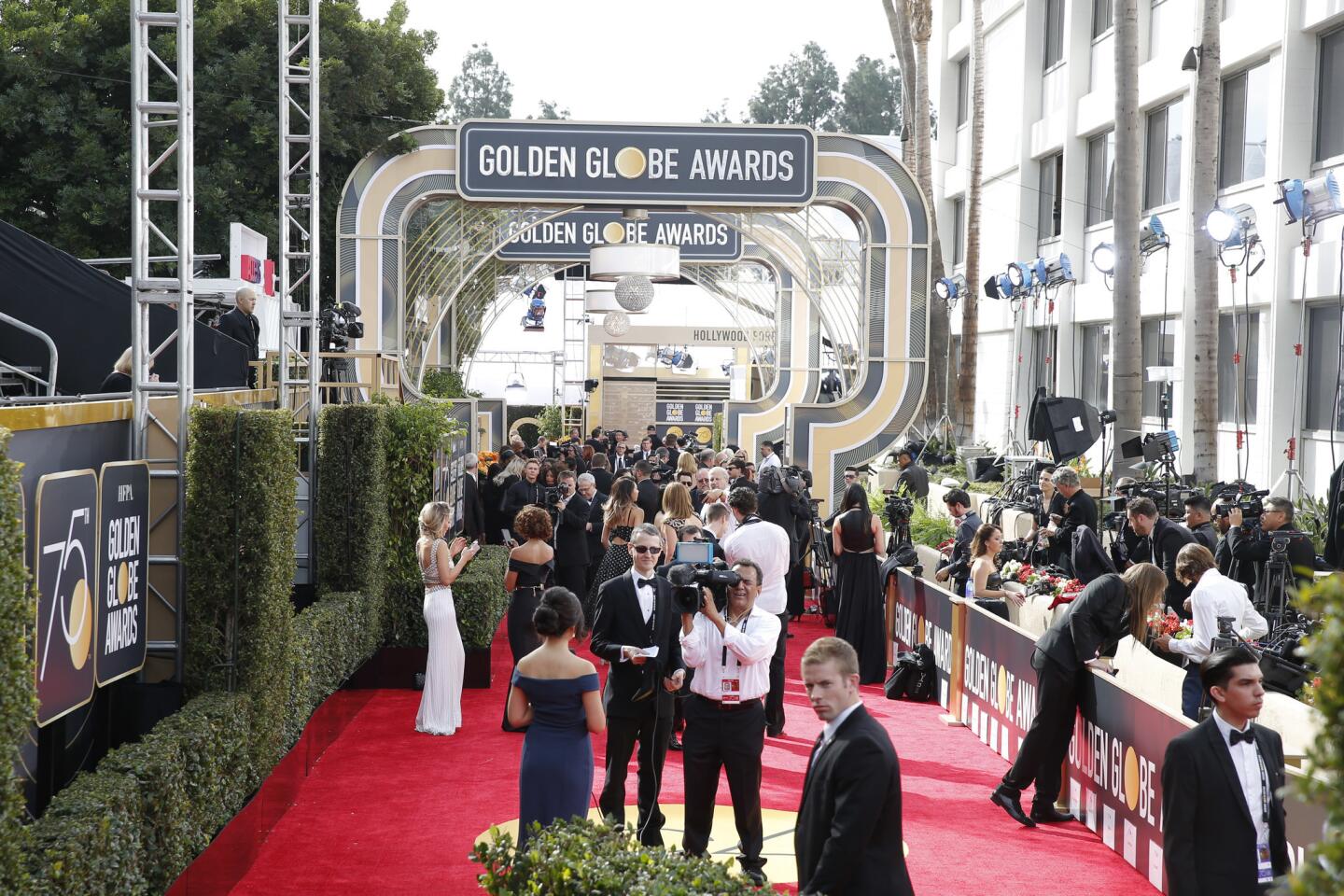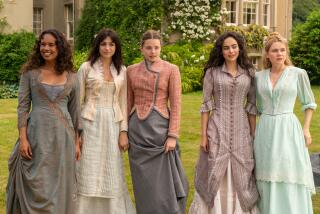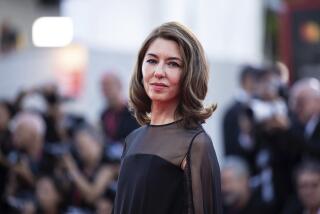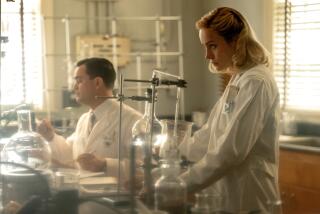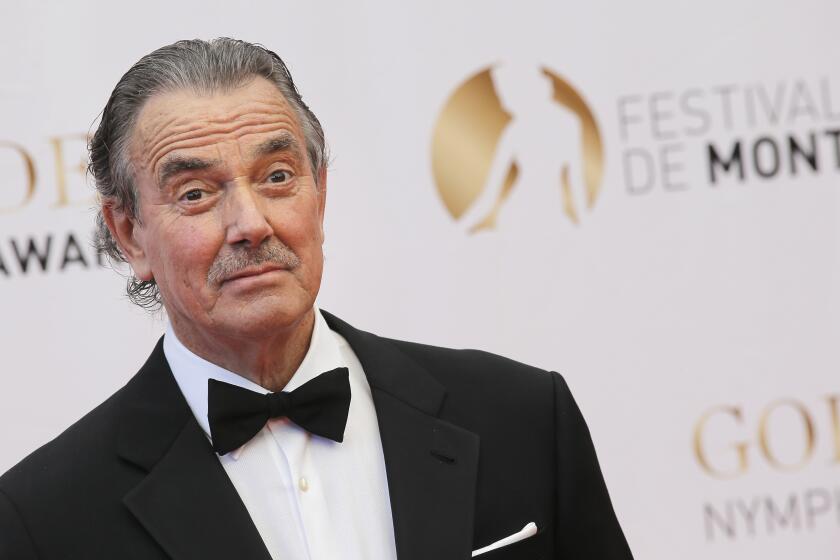Elisabeth Moss gets dystopian in ‘The Handmaid’s Tale’
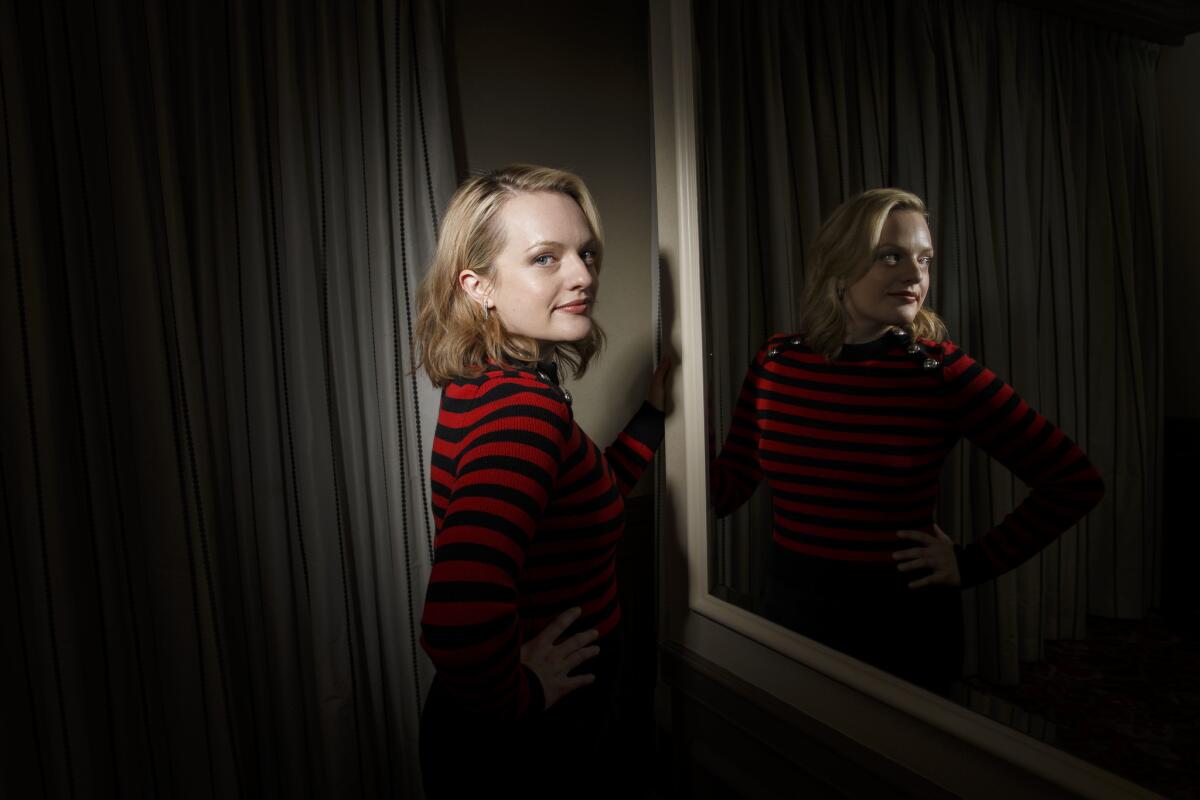
If Elisabeth Moss were a character in a network pilot, she’d win high marks for her relatability.
On a sludgy late-winter evening, the actress shows up at a restaurant near Lincoln Center looking casually stylish in an embroidered bomber jacket and motorcycle boots. Even though she’s been holed up sick in her apartment for days, she orders a Moscow Mule. “It has ginger in it, so it’s actually good for you,” she reasons.
Moss, 34, is the right kind of enabler, gushing about the burrata on the menu and her favorite line of “fancy sweats.” She’s a fan of all “The Real Housewives,” but especially Lisa Vanderpump, and is obsessed with “This Is Us.” In other words, she’s just your average seven-time Emmy nominee next door.
Full Coverage: Golden Globes 2018
Given her affinity for material that essentially defines “brooding” — think “Mad Men” or “Top of the Lake” — Moss’ sunny demeanor can seem surprising.
“I appreciate in my own life having things not complicated. But in my work, that’s boring,” she says. “I’m happiest if I’m on the ground crying or yelling at somebody.”
Presumably, then, she was on cloud nine making “The Handmaid’s Tale,” premiering April 26 on Hulu. Based on Margaret Atwood’s celebrated dystopian novel, the series is set in a near future in which, amid plummeting birth rates, the United States has been commandeered by a theocratic regime hostile to women’s rights. Moss plays the narrator and protagonist, a still-fertile woman known as Offred (“Of Fred”), who is separated from her family and forced into procreative slavery as a “handmaid.”
Early episodes depict torture, gruesome public executions, and some of the most unsexy sex ever captured on film. (There’s also some mordant humor.) In other words, it’s right up Moss’ alley.
Still, it took a month of mulling before she accepted the role. Moss hadn’t planned to return to television so soon, but “the idea of them casting somebody else made me so upset and jealous,” she says.
Moss also took the opportunity to ramp up her career as a producer on the series, inspired by actresses like Drew Barrymore and Reese Witherspoon — “women who have taken their careers into their own hands.”
Though the L.A. native has acted professionally for most of her life — she played Sandra Bullock’s daughter in the 1990 miniseries “Lucky Chances” — this is the first time she’s been attached to an adaptation from such a well-known source.
And to say readers have strong feelings about “The Handmaid’s Tale,” a controversial modern classic that’s been banned numerous times, is, well, a massive understatement. Case in point: the minor uproar that ensued when a man, Bruce Miller, was named show runner.
Unlike the largely forgotten 1990 film starring the late Natasha Richardson, this adaptation appears to have the makings of a breakout hit. Hulu has been promoting the series heavily, starting with a trailer that debuted during the Super Bowl — usually the domain of commercials for cars and beer rather than works of speculative feminist fiction implicitly critical of America’s Puritan origins.
But the news itself has done perhaps more to boost interest in the series (and its source material) than any ad campaign. “The Handmaid’s Tale” arrives at what is probably the most politically fraught moment since the book’s release in 1985.
Sales of the book have surged since the election. In February, it topped the Amazon bestseller list, where, in a perfect snapshot of the United States in 2017, it sat alongside Milo Yiannopoulos’ not-yet-released (and now canceled) memoir and George Orwell’s “1984.”
Like Atwood’s novel, which referred to historical events in order to make the nightmare more plausible, the series makes mention of Islamic State, the suspension of constitutional rights in the name of fighting terror and scenes of disarray at airports. Sound familiar?
Moss’ inherent relatability is essential to the it-could-happen-here message of “The Handmaid’s Tale,” says Atwood, who served as a consulting producer on the series and can be seen slapping Offred in a cameo in the pilot. (Naturally, Moss urged Atwood to hit harder.) “[Offred] should have an everywoman look,” says the author by phone. “This is not some outstanding Amazonian superstar. This is not Wonder Woman here. It’s somebody who could be you or me.”
Given that Offred is primarily seen in her handmaid costume — a floor-length red dress and white bonnet — and is living under a brutally repressive regime, it was essential to find an actress who could express a lot with very little, says show runner Miller. “I was looking for someone who has a main circuit cable that connects their heart to their face. I couldn’t have found a better match than Lizzie, who can show an astounding range of complicated emotions on her face even whilst feeling like she’s trying not to show anything.”
There are few actresses as well-equipped for bonneted emoting as Moss, whose highly expressive features have inspired many of her collaborators. Director Alex Ross Perry, who first collaborated with Moss on 2014’s “Listen Up Philip,” chose to open his 2015 film “Queen of Earth” with a long, uninterrupted close-up of Moss’ mascara-streaked face as her character was getting dumped. Perry describes her face as a “secret weapon.”
“It was something we tried to lean into as much as possible,” he says, “by putting the camera a foot or so away and forcing viewers to see the eye twitches and the mouth quivers.”
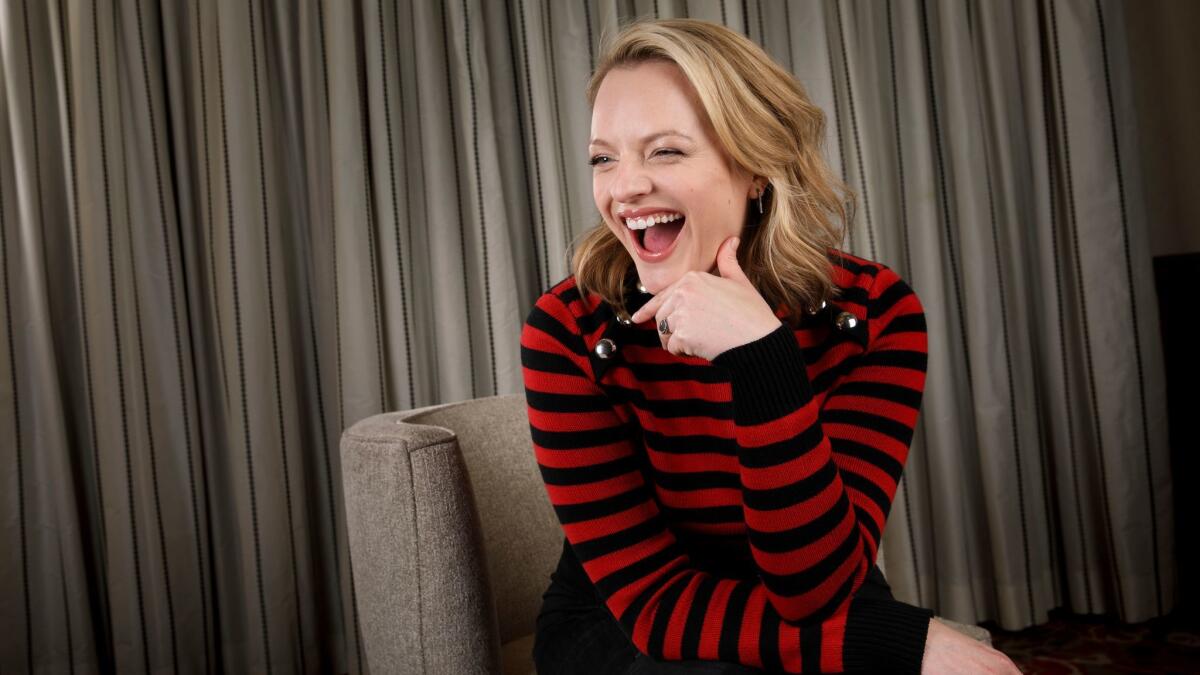
But for all the awe her performances inspire, Moss describes her craft in a way that is refreshingly demystifying. “Everything I do, somebody writes and imagines, and then I do it,” she says at one point. “It’s a silly thing to take too seriously, I think.” Moss considers herself the opposite of a Method actor and takes pride in the ease with which she switches in and out of character.
She recalls watching some dailies of a dramatic, tearful scene from “The Handmaid’s Tale.” “Right before they say ‘action,’ I was recommending places for the DP to go on vacation with his family.”
It’s possible to see Offred as a sister of sorts to the defiant female roles Moss is already known for — perhaps none more so than secretary-turned-accidental trailblazer Peggy Olson on “Mad Men,” a character who has become a latter-day feminist folk hero inspiring Etsy crafts and countless Internet memes.
Moss remarks on the number of times she’s played women who, like Offred and Peggy, have lost or given up their children. Moments later, a boy — perhaps 7 or 8 — wanders up to the table, says hello, then walks away. Moss doesn’t miss a beat: “This is my son. Didn’t I tell you?” (She’s joking.)
Peggy’s status as a cultural icon “is still weird to me,” says Moss, recalling how she once accidentally pulled up a GIF version of herself as Peggy on her phone. “It seems slightly outside of me. At the same time, it was also the thing that interested me the most as an actor, the feminist story. ... What I loved the most was when women in their teens, 20s and 30s and 40s would be like, ‘That’s me now.’”
Nearly as indelible was her performance as Robin Griffin, a cop investigating the disappearance of a pregnant 12-year-old in the Sundance miniseries “Top of the Lake.” And after “Mad Men,” she jumped into the Peggy-esque title role in the Broadway revival of “The Heidi Chronicles,” Wendy Wasserstein’s Pulitzer Prize-winning play about a feminist art historian’s journey from the ’60s to the ’80s and eventual embrace of motherhood.
Moss, who will also be seen opposite Liev Schreiber in May in the film “Chuck,” about boxer Chuck Wepner, technically calls Manhattan home but work has turned her into a bit of a nomad. Before filming “The Handmaid’s Tale” in Toronto, she was in Sydney making “Top of the Lake: China Girl” with writer-director Jane Campion, which will air on Sundance later this year. The actress agreed to another season of the drama on one condition: It had to be even darker than the thoroughly menacing original.
Over the past year or so, Moss has grown more politically outspoken, voicing support for Hillary Clinton, Planned Parenthood and the Women’s March on social media. One suspects that her characters may be rubbing off on her — a contention she doesn’t dispute.
“I feel passionately about my choices in life being protected,” she says. “I think women in my generation have had a real wake-up call: Oh wait, we’re not always going to have the things that our moms and grandmothers fought for? Oh, you mean you can take that away from us?”
Twitter: @MeredithBlake
ALSO:
See the first stylish look at Elisabeth Moss and Joseph Fiennes in ‘The Handmaid’s Tale’
Elisabeth Moss gets dystopian in ‘The Handmaid’s Tale’
See a steely Elisabeth Moss in Hulu’s Super Bowl ad for ‘The Handmaid’s Tale’
More to Read
The complete guide to home viewing
Get Screen Gab for everything about the TV shows and streaming movies everyone’s talking about.
You may occasionally receive promotional content from the Los Angeles Times.
